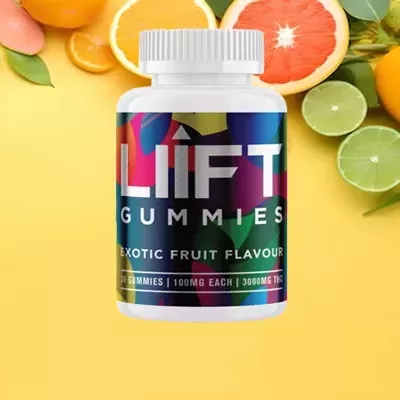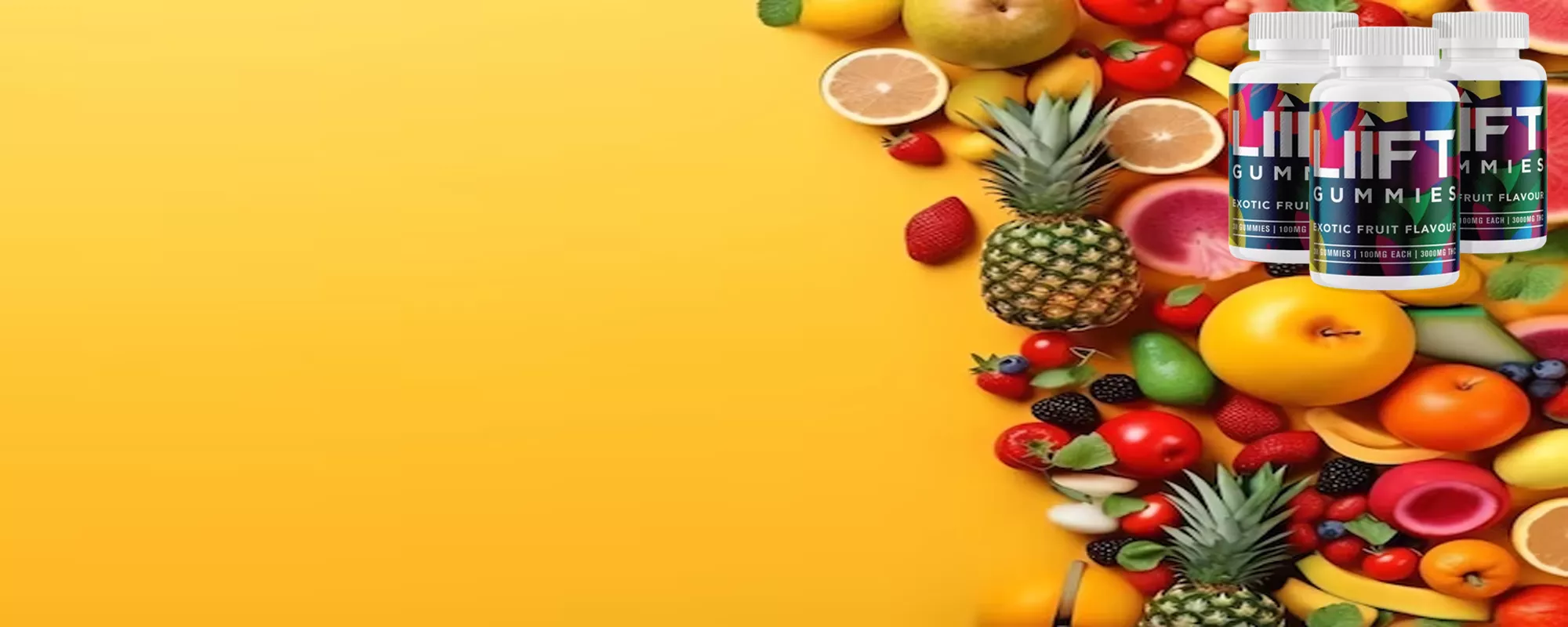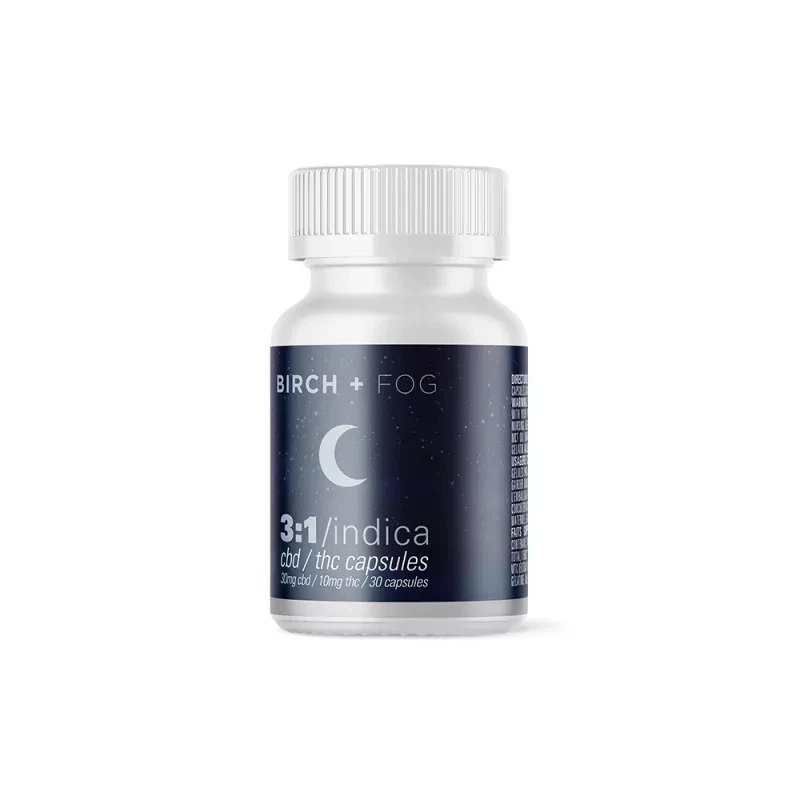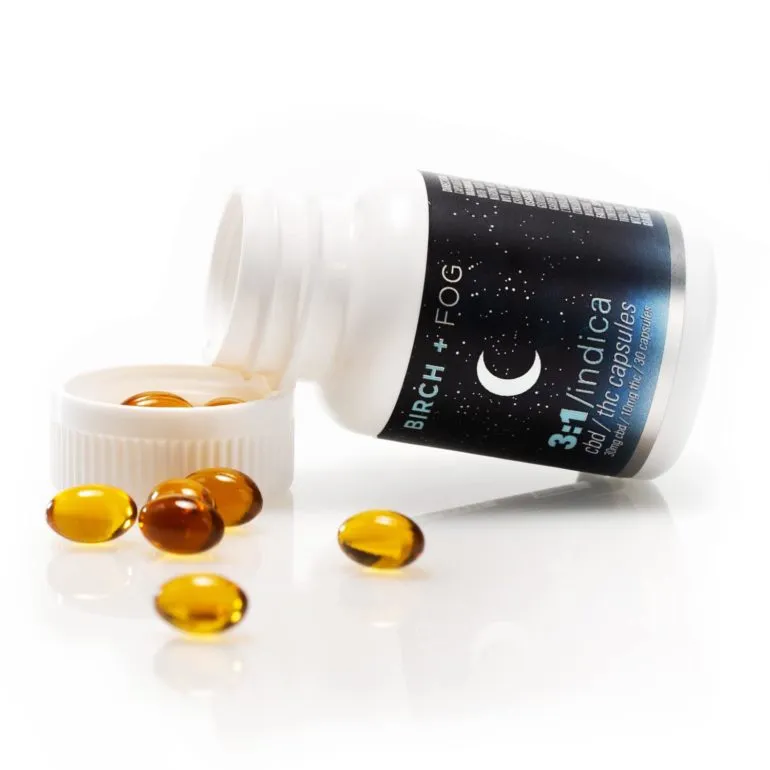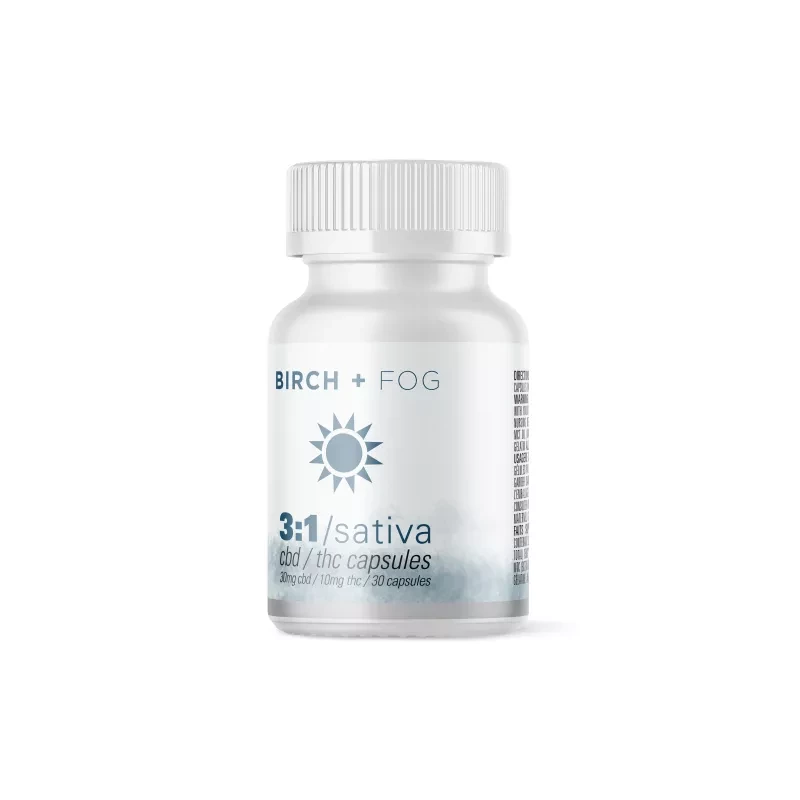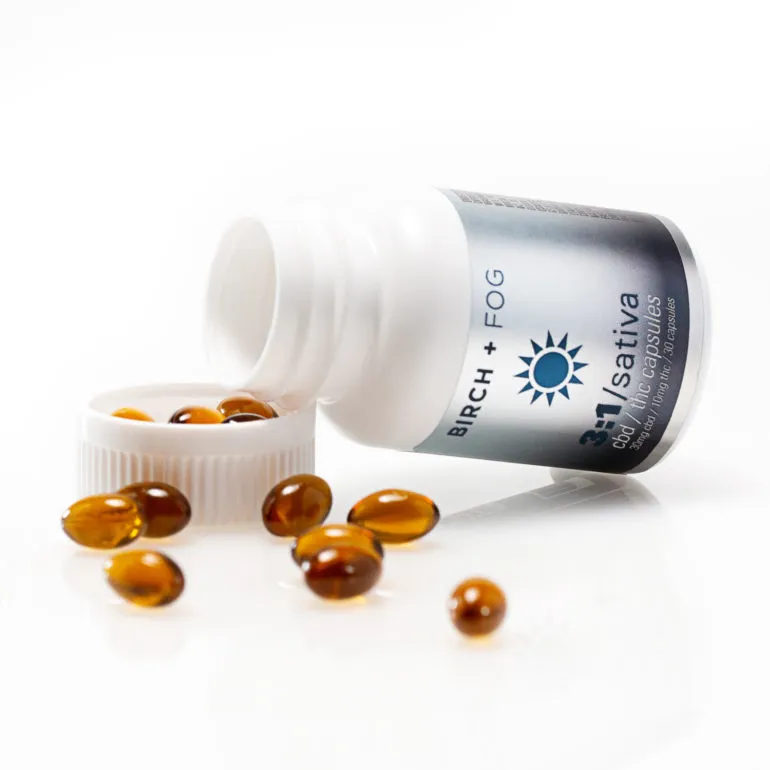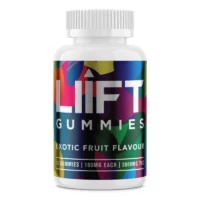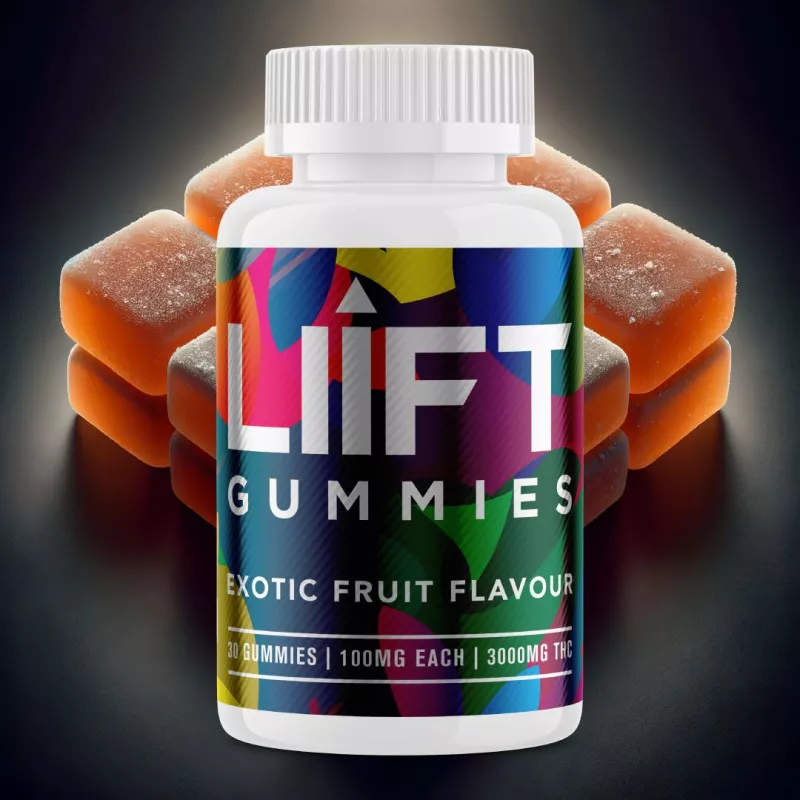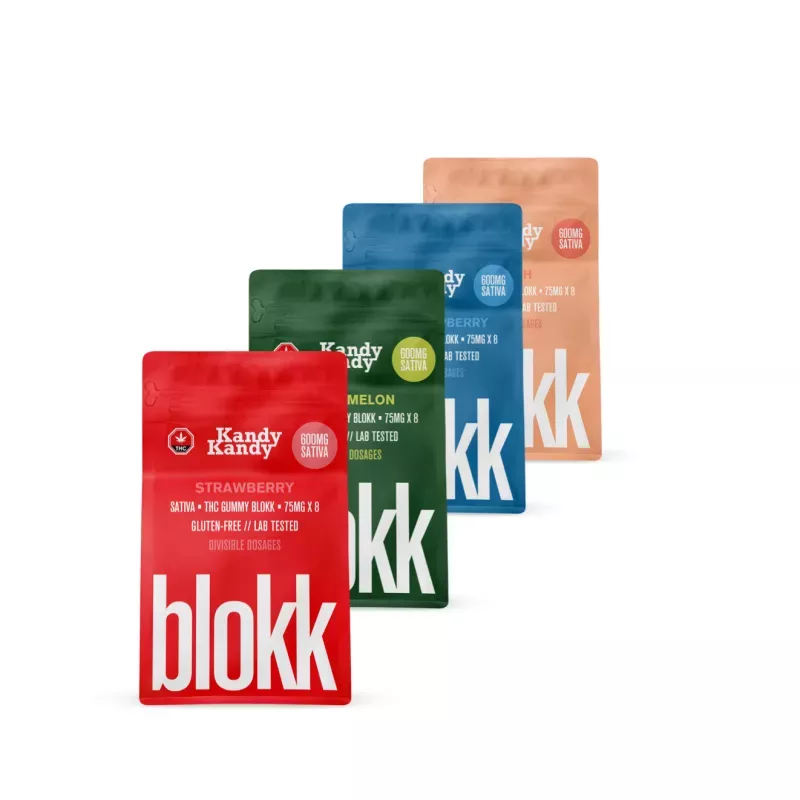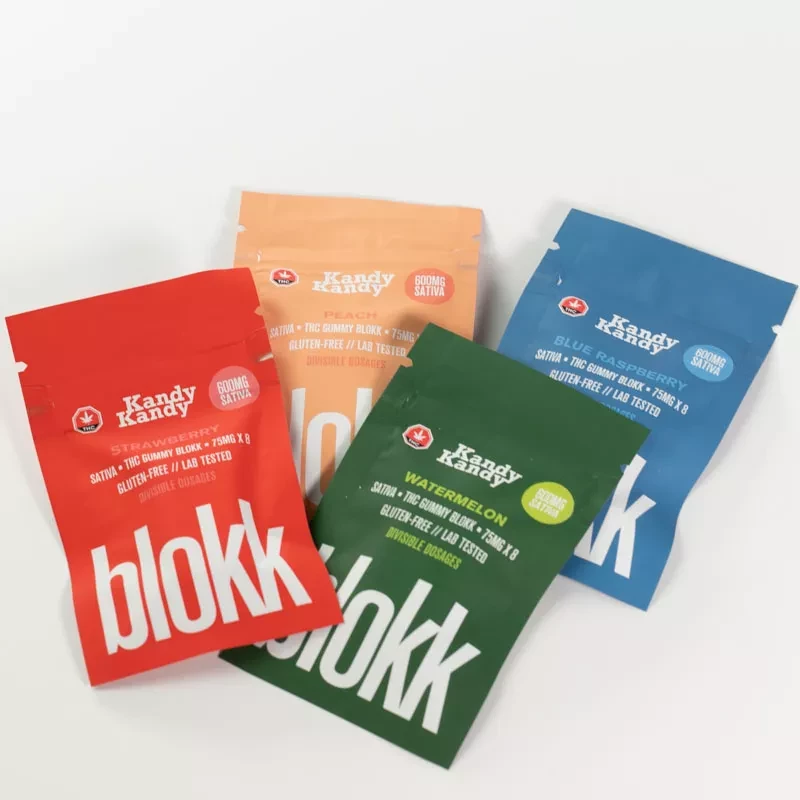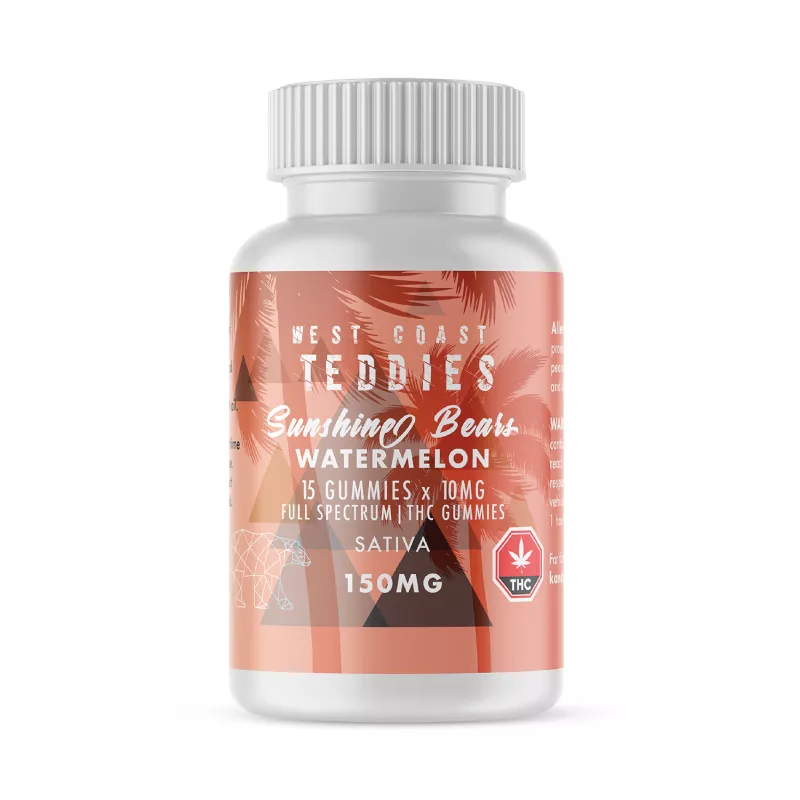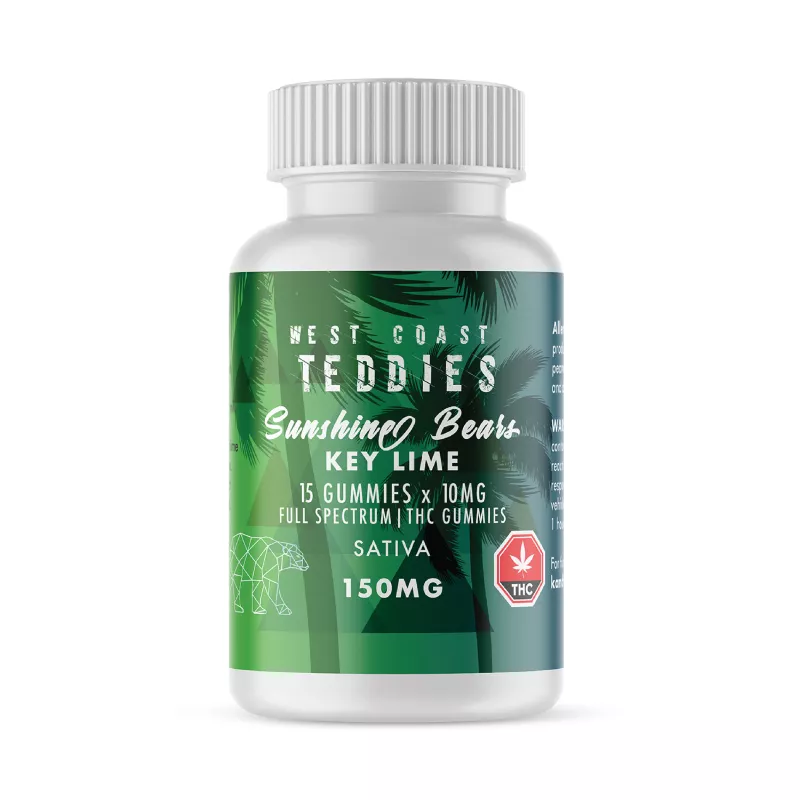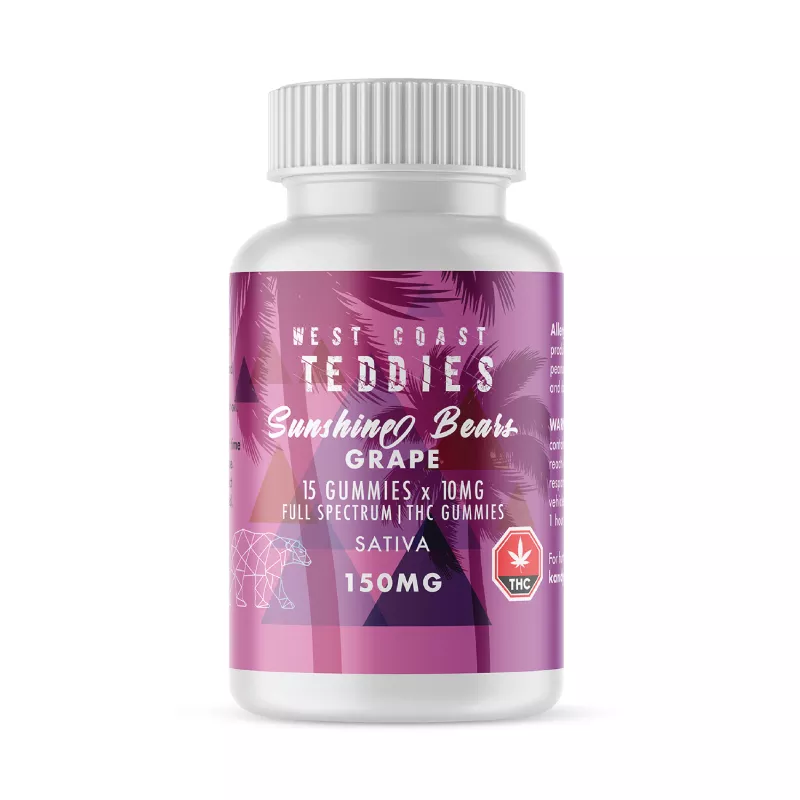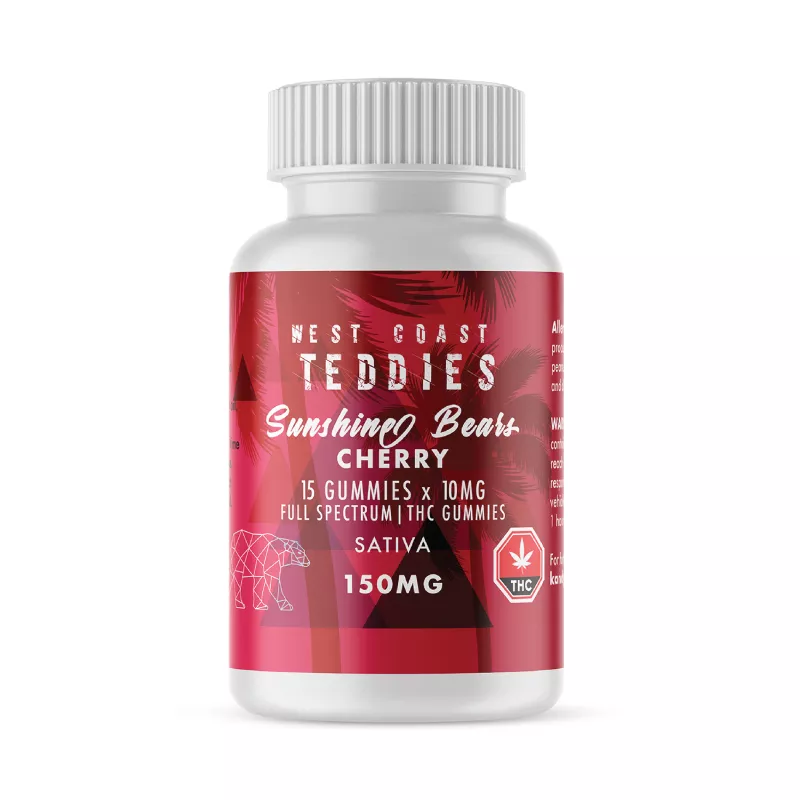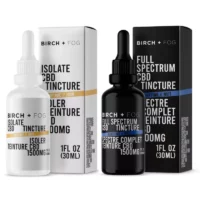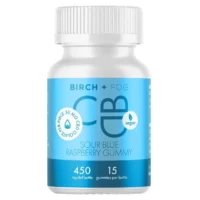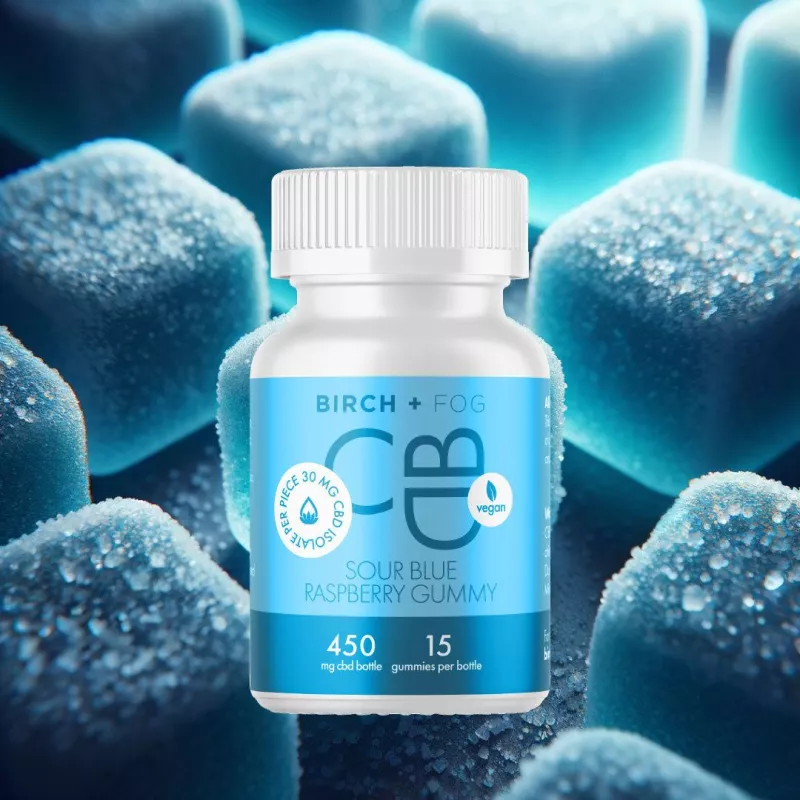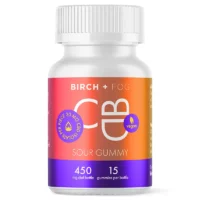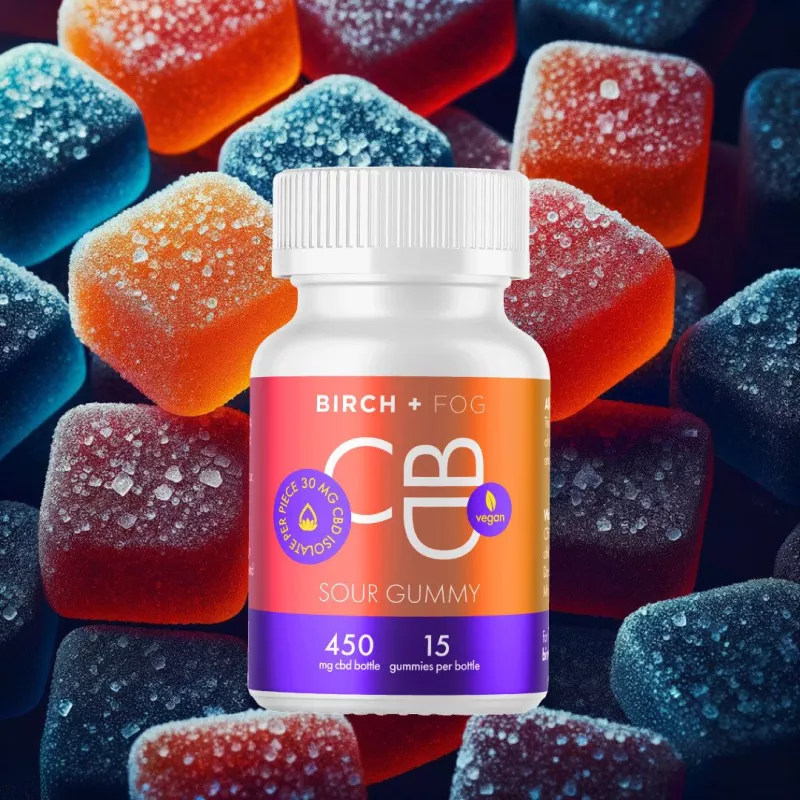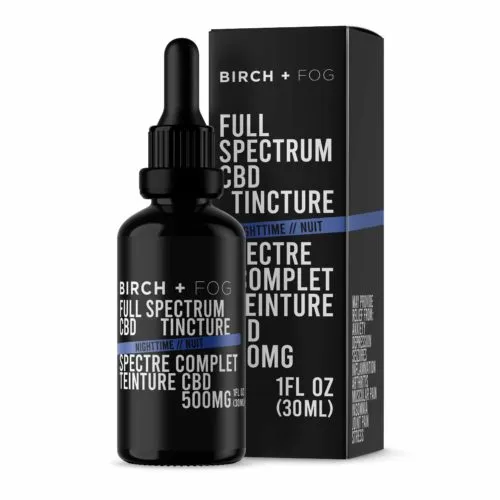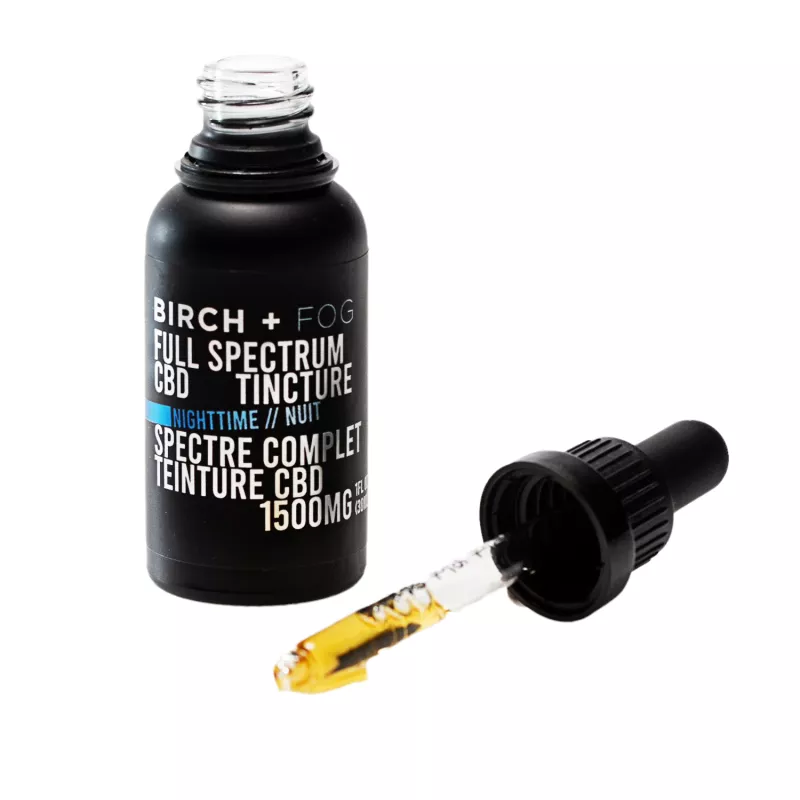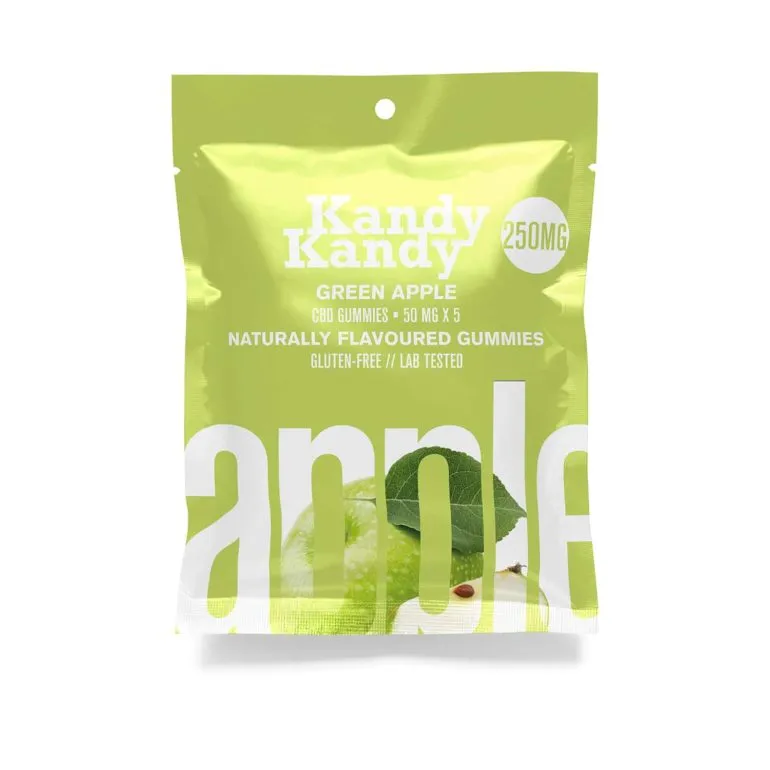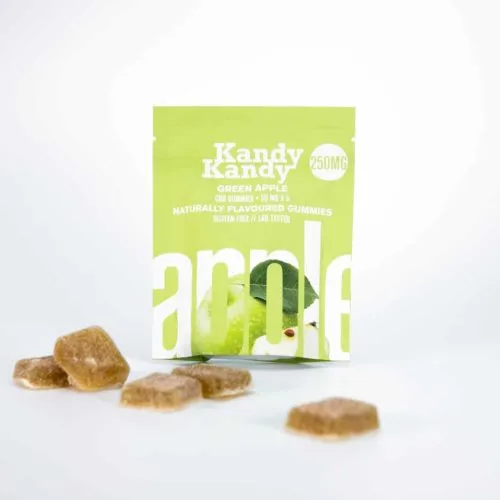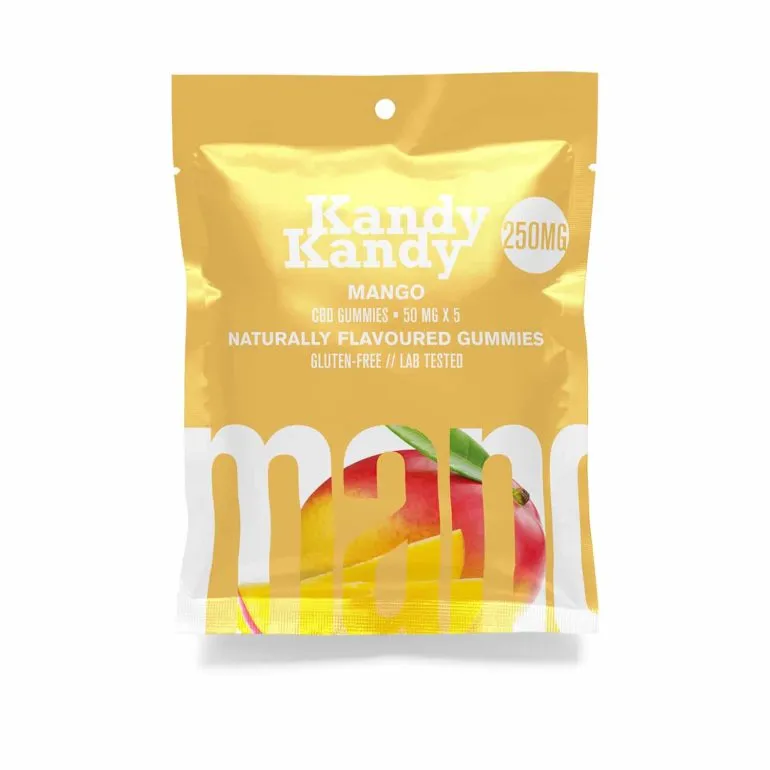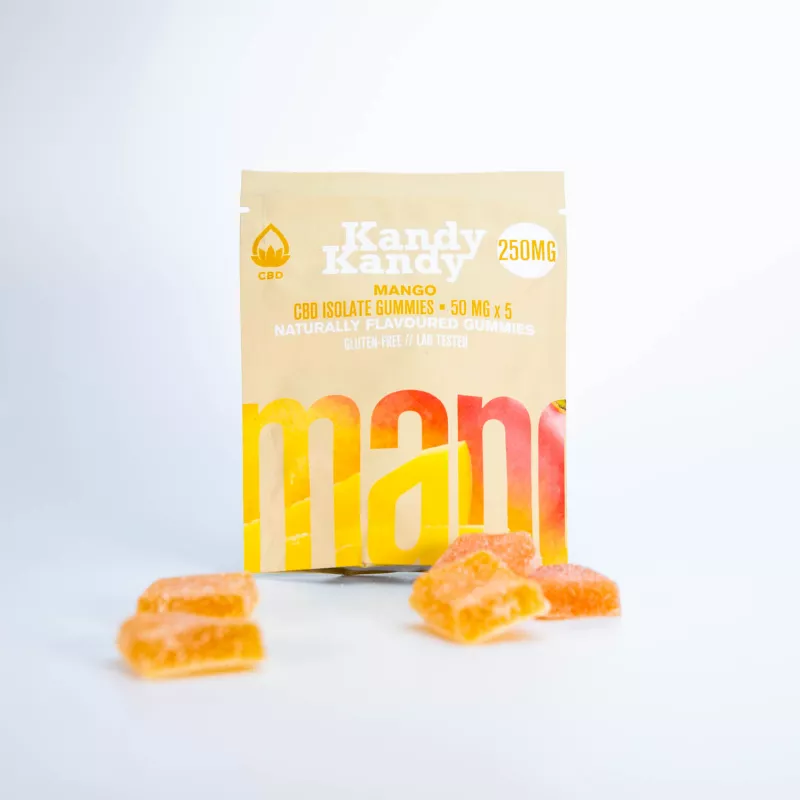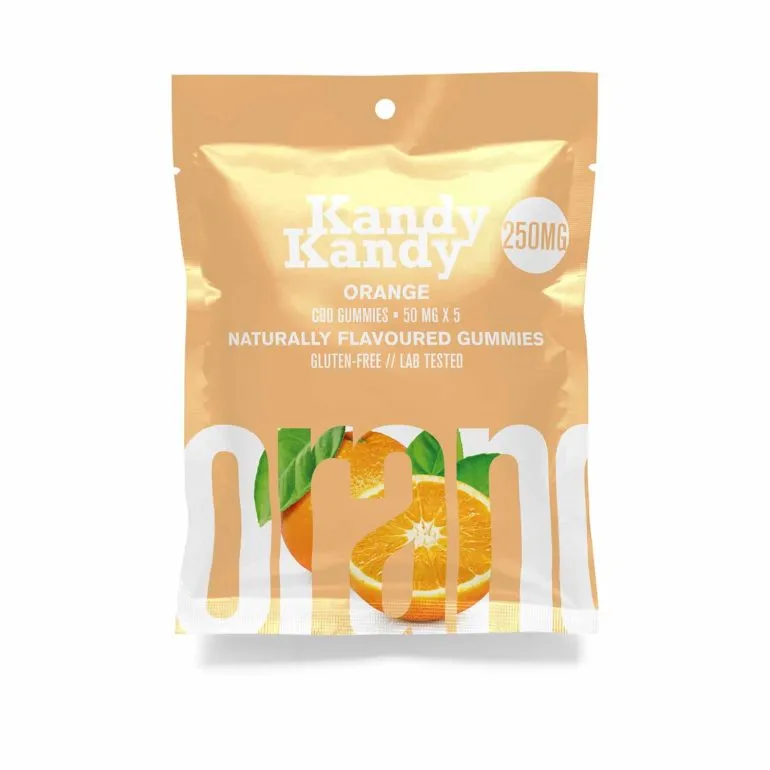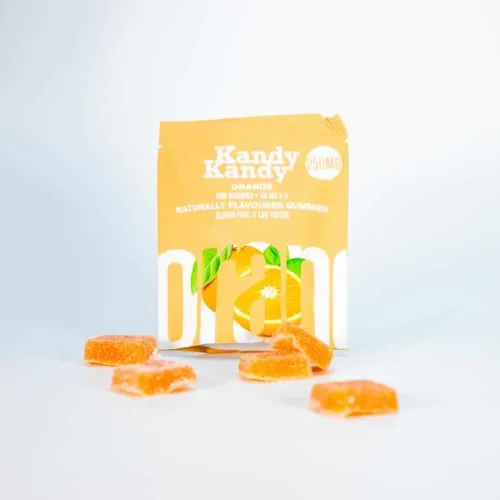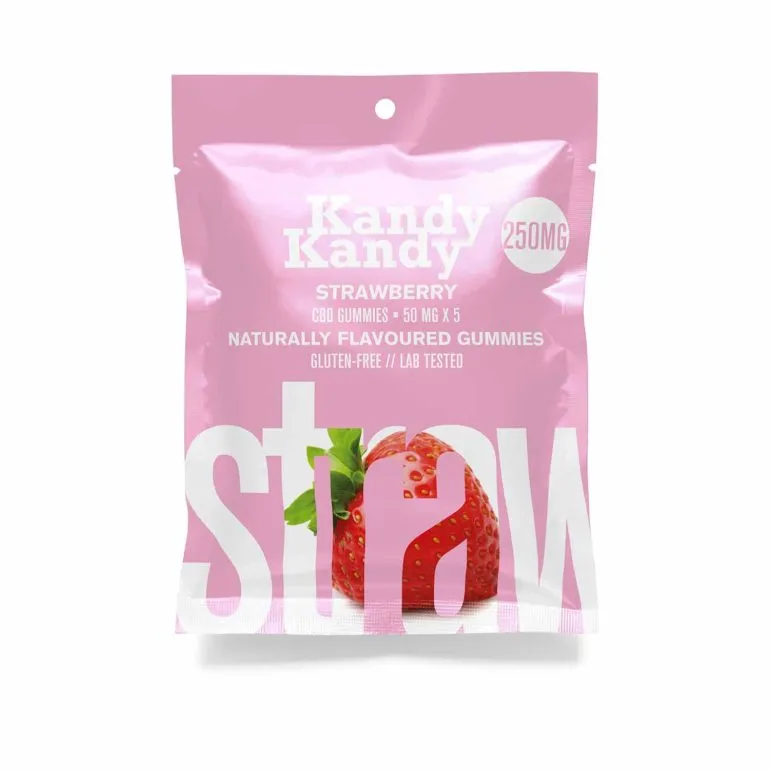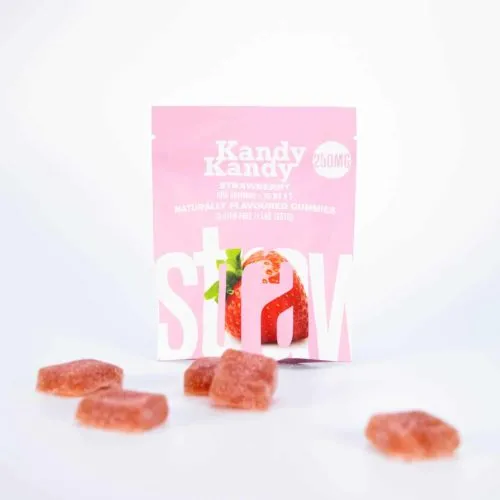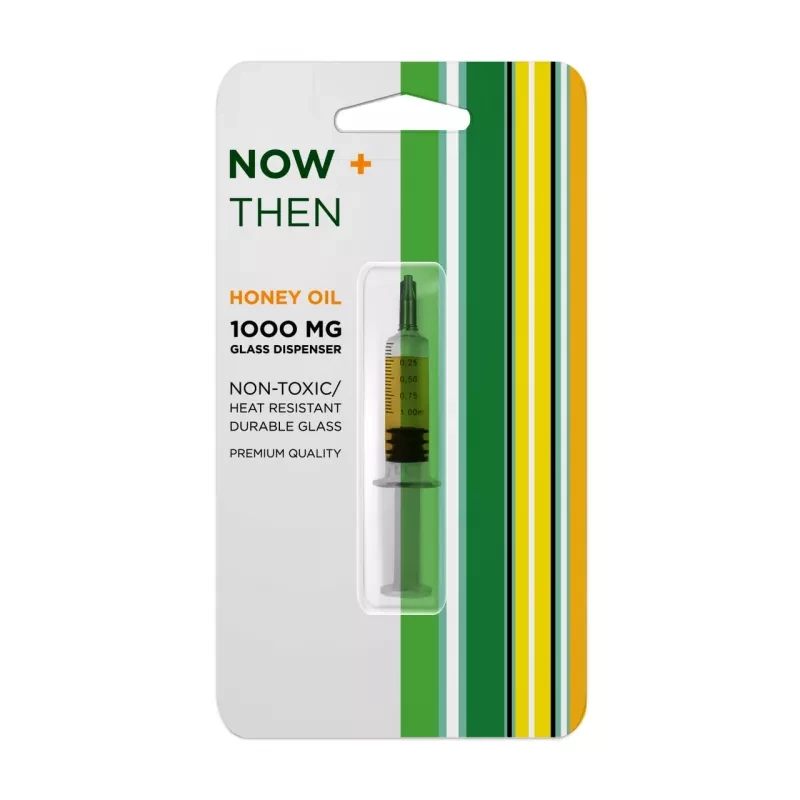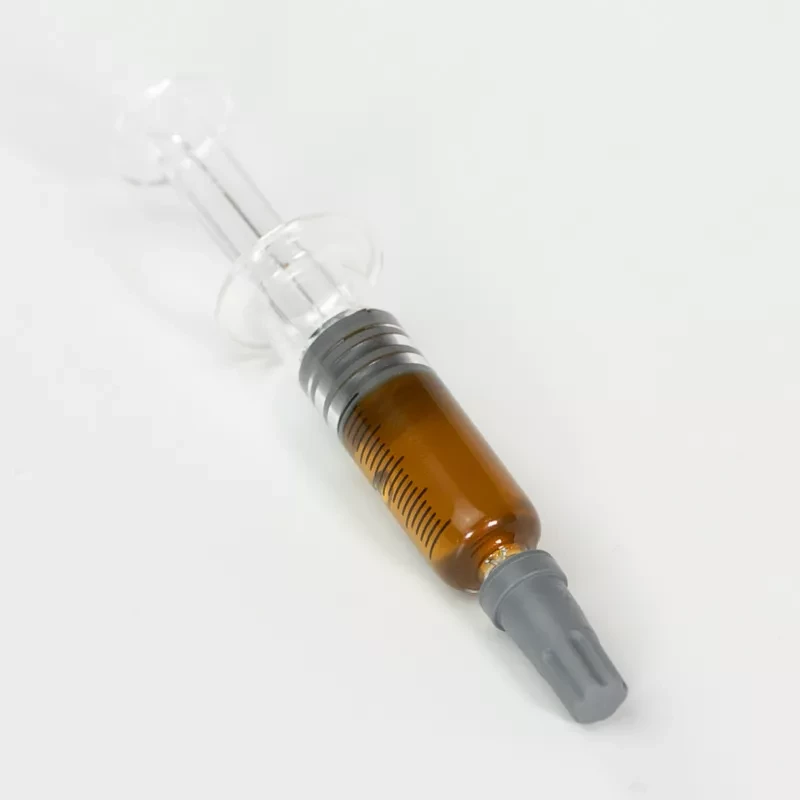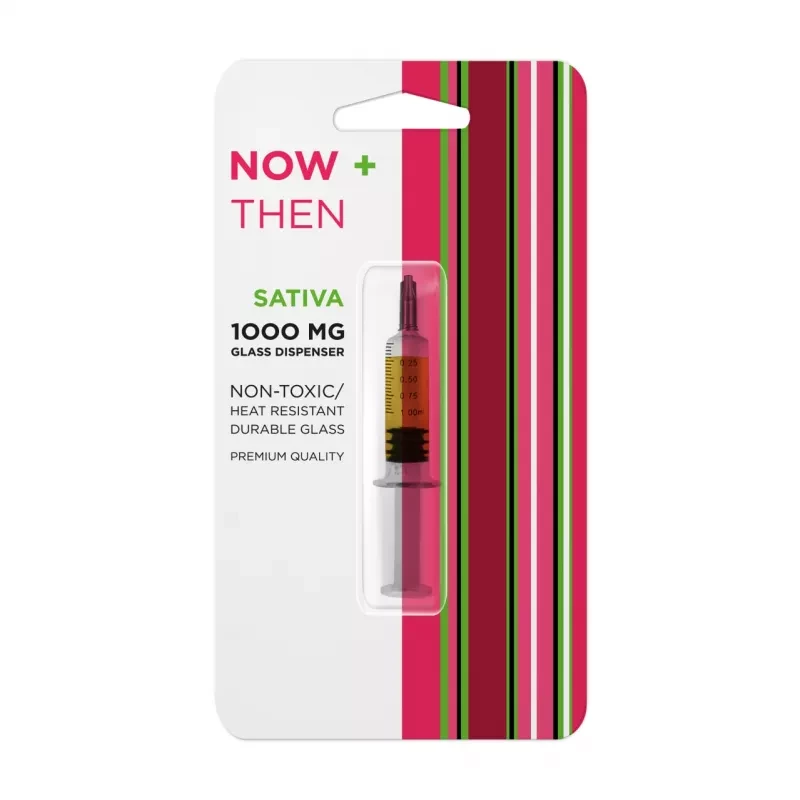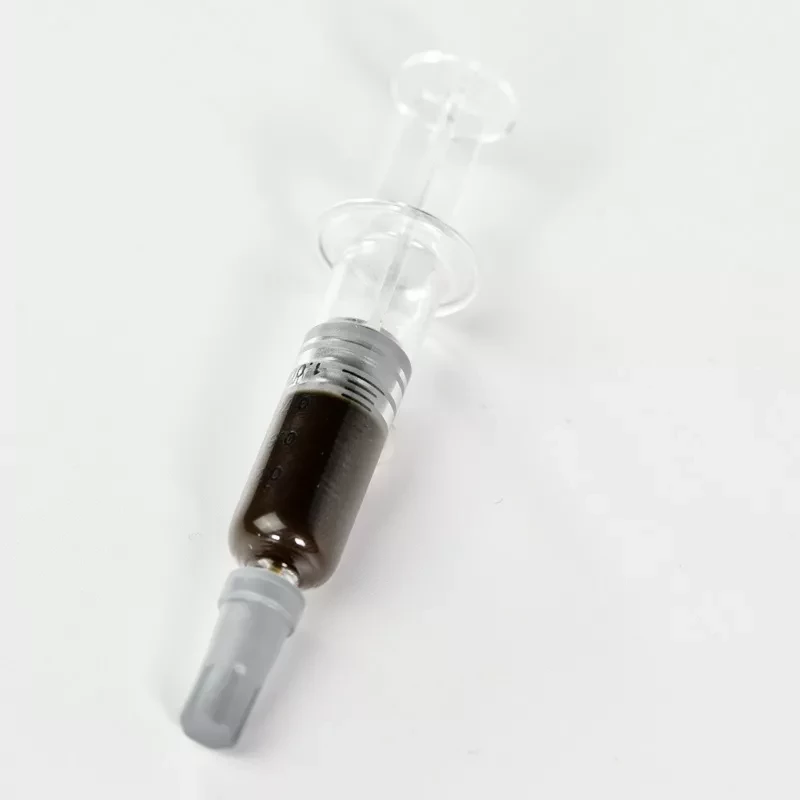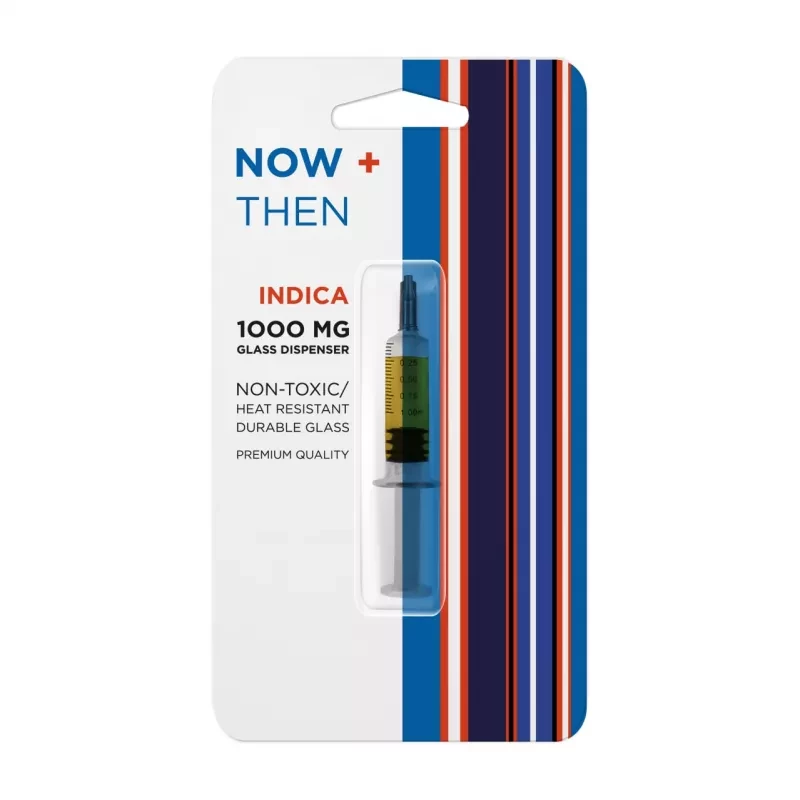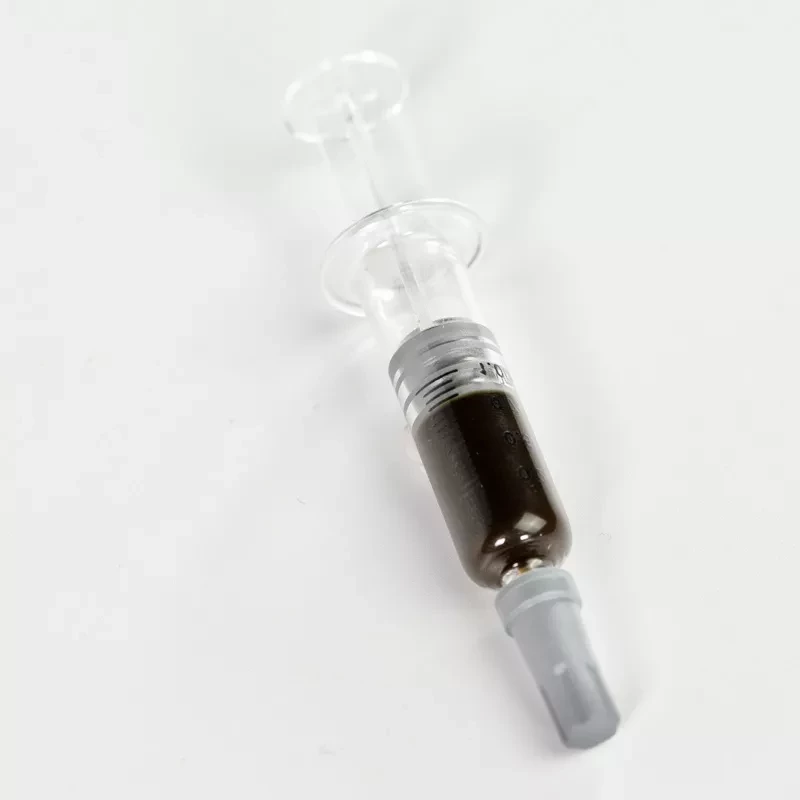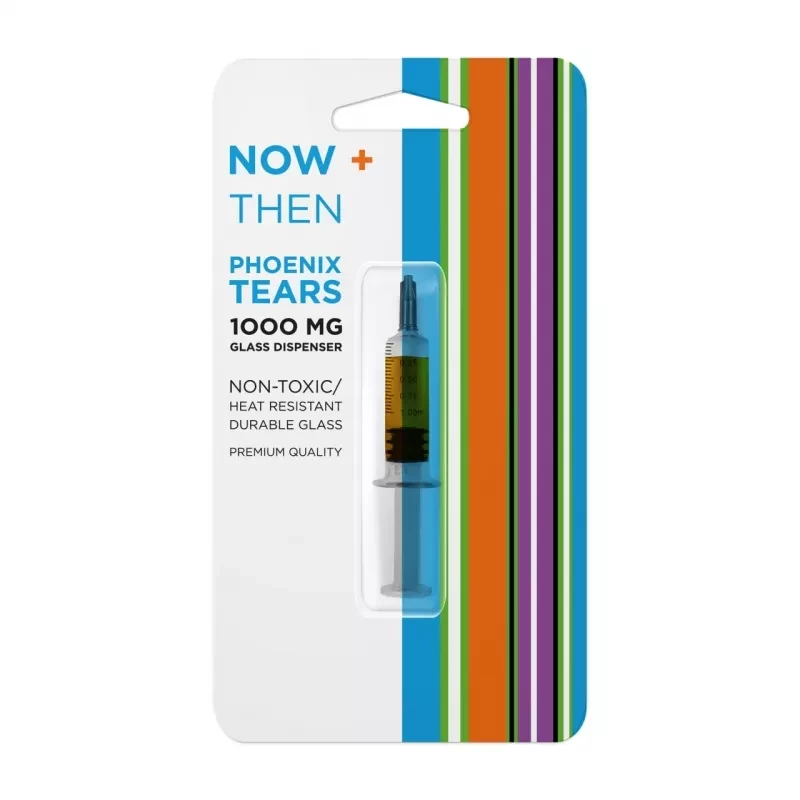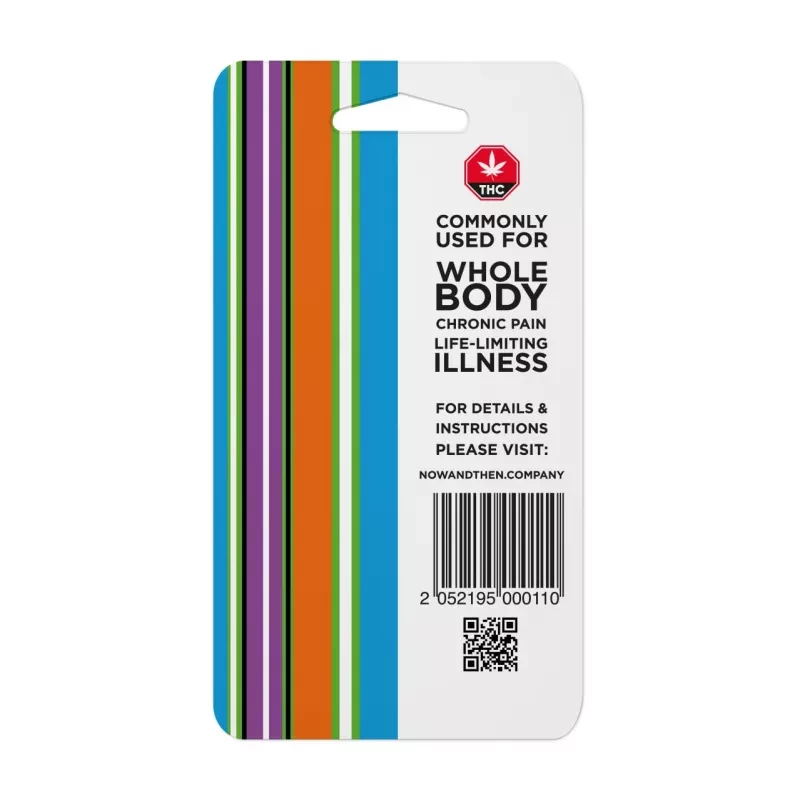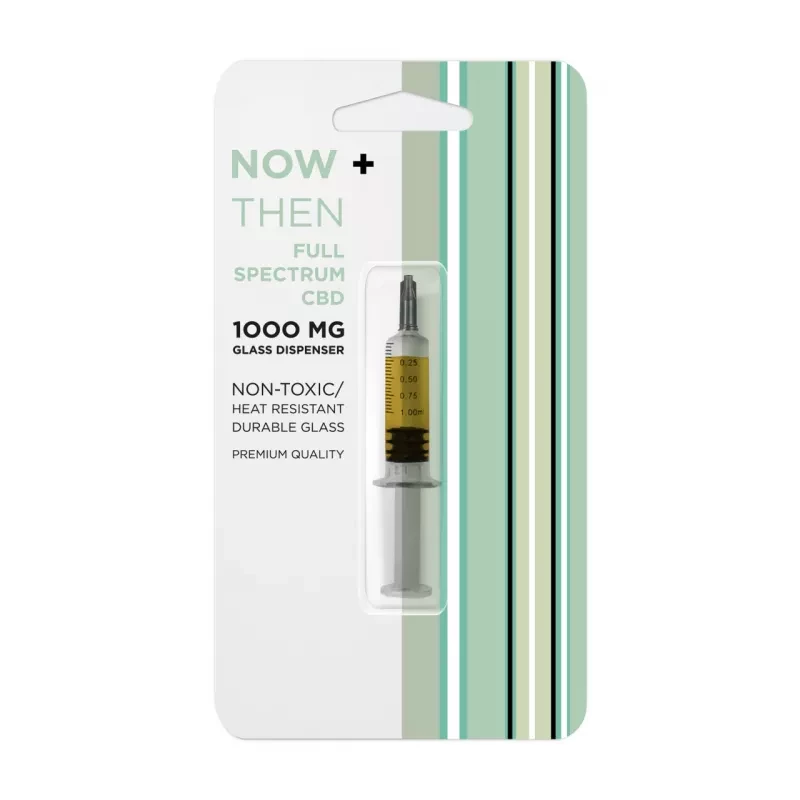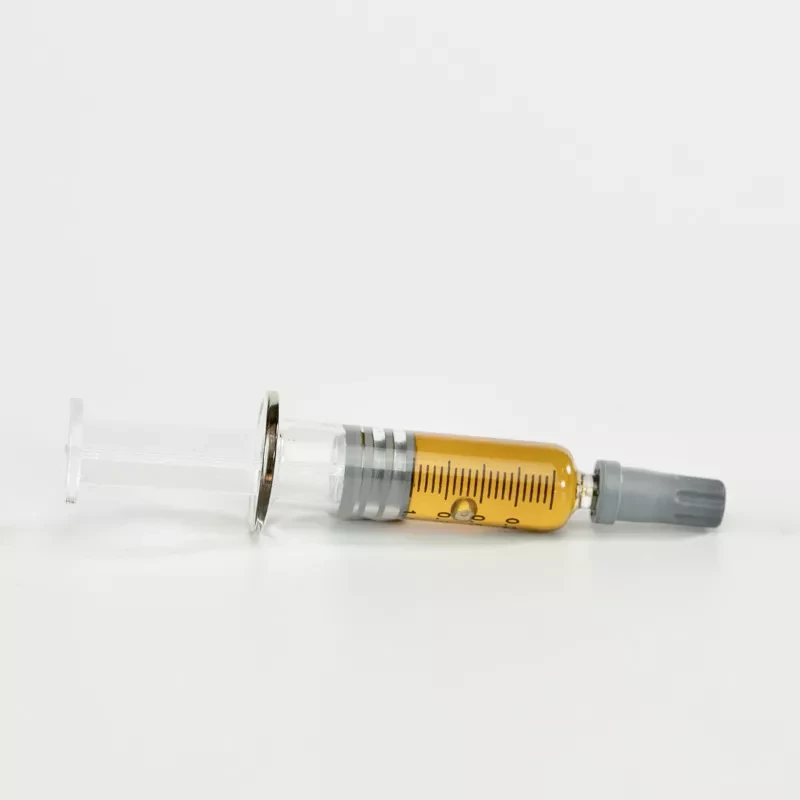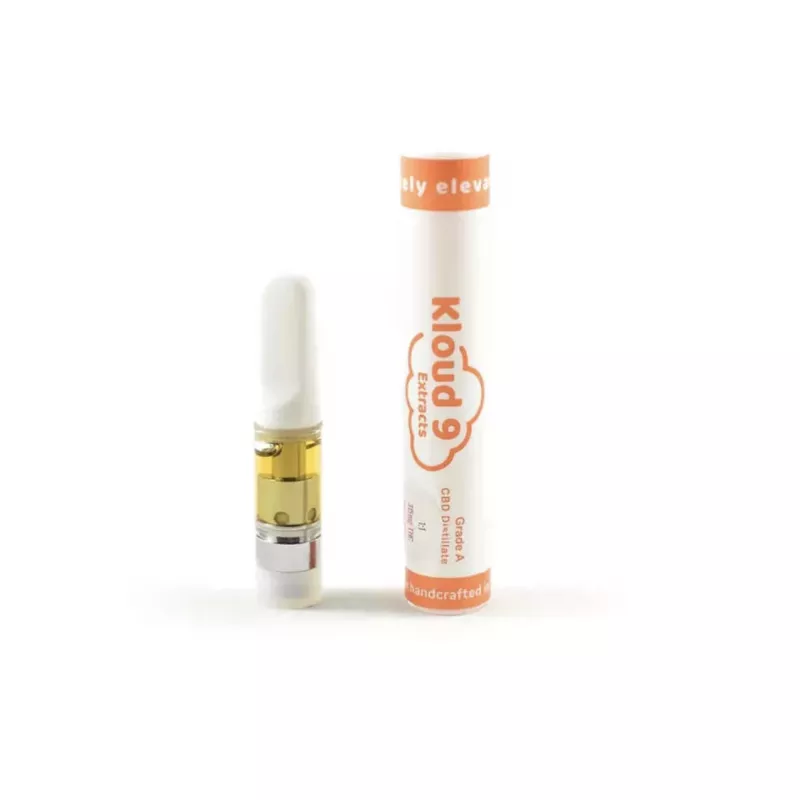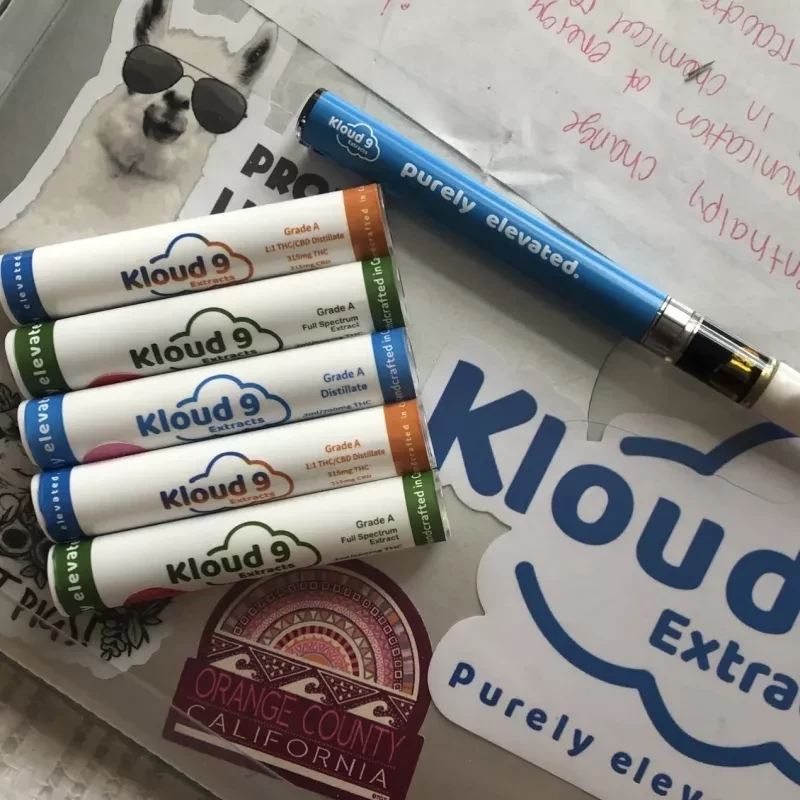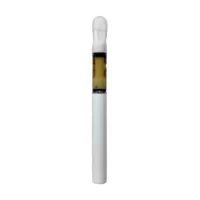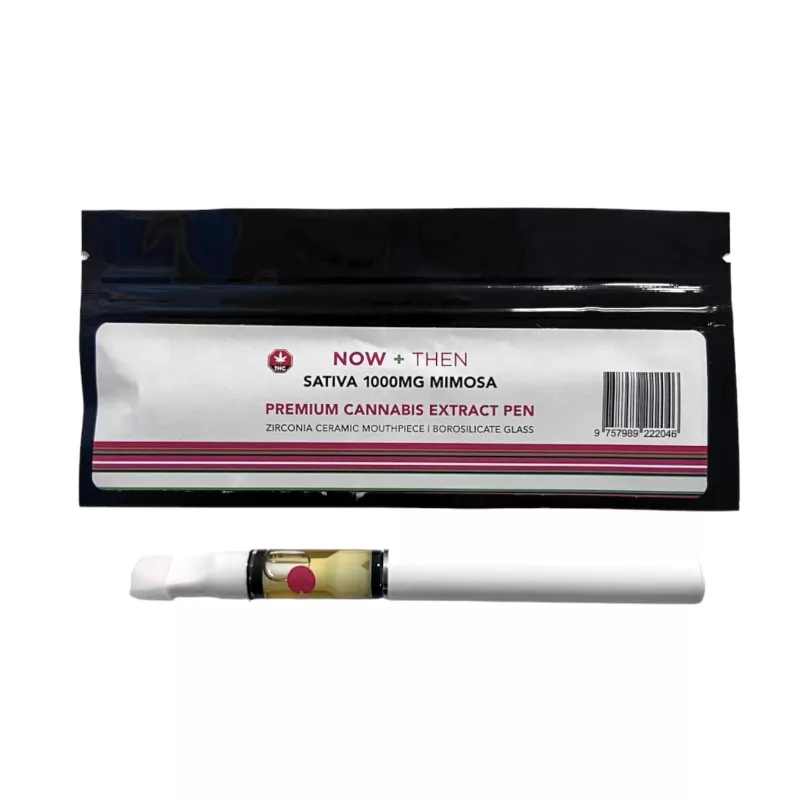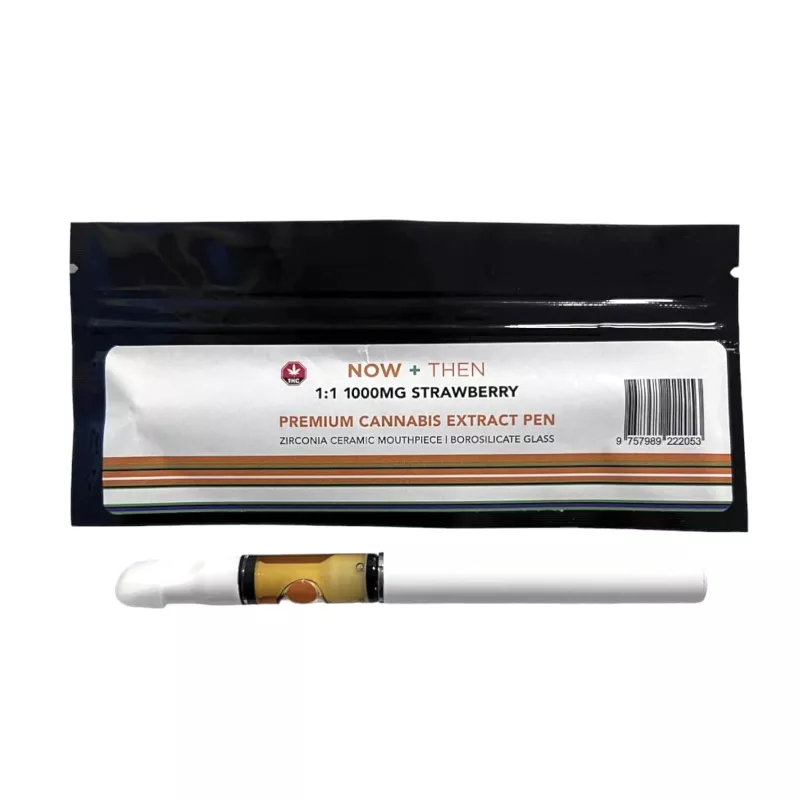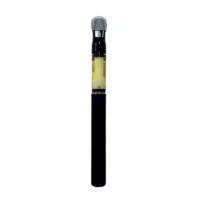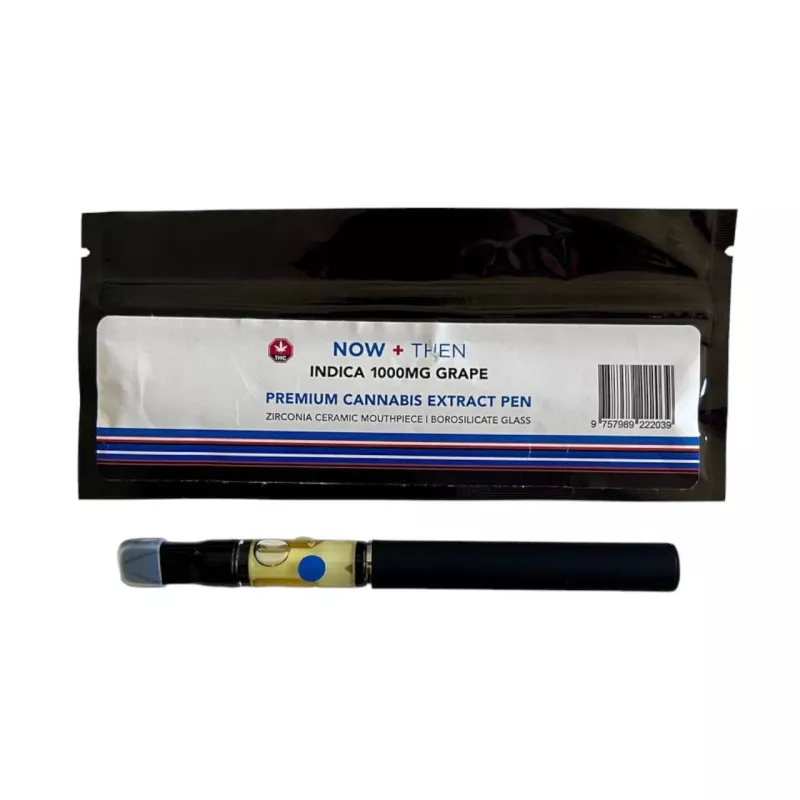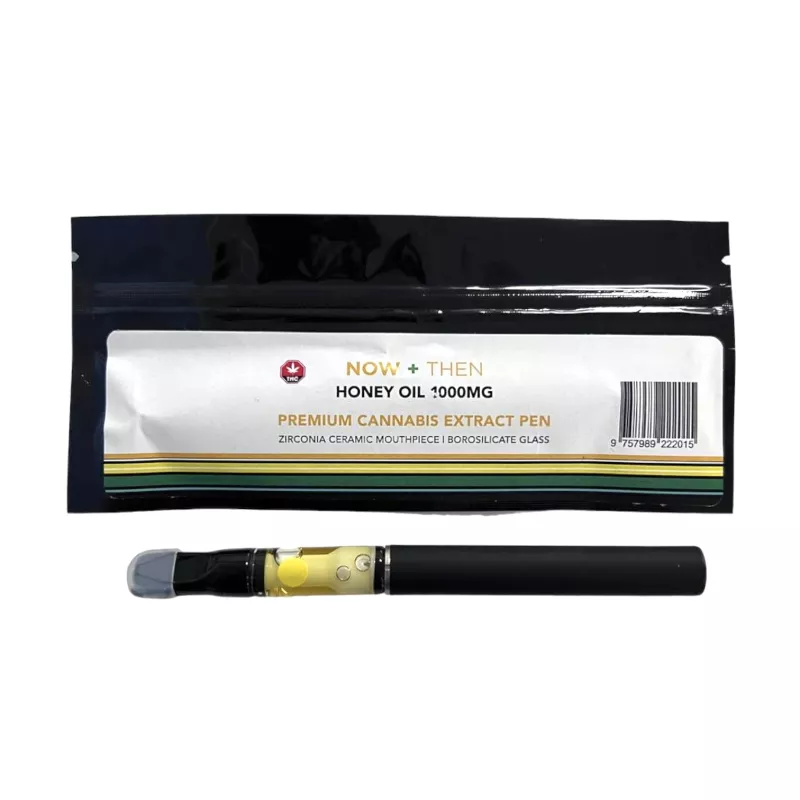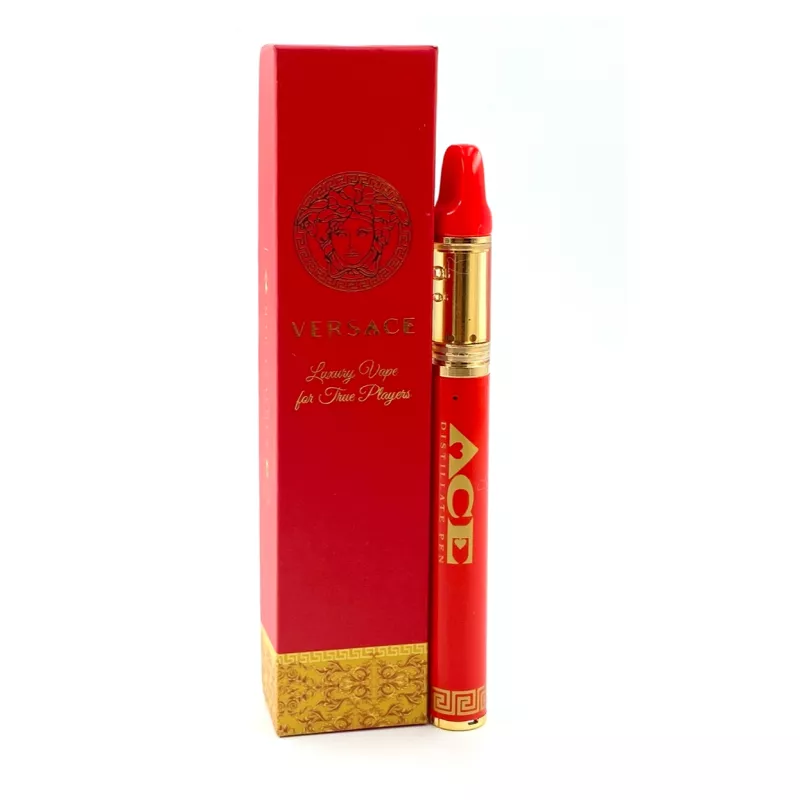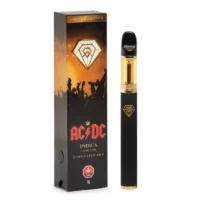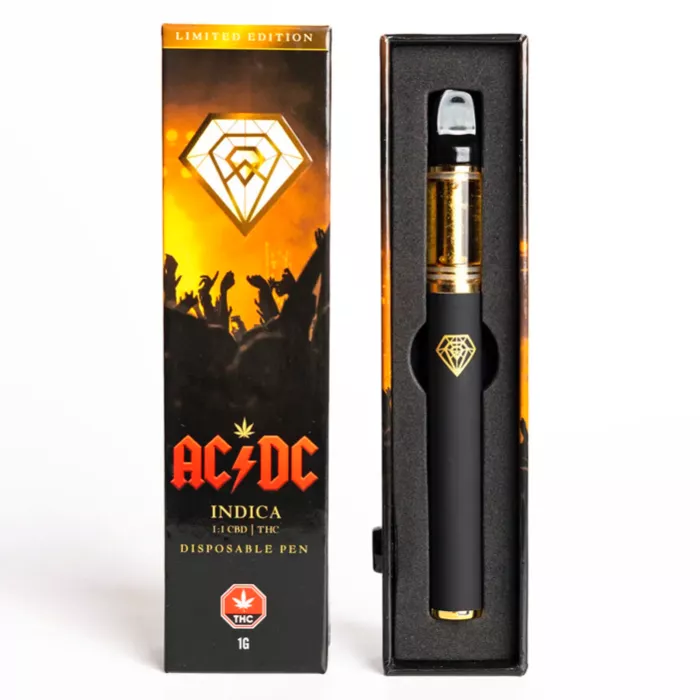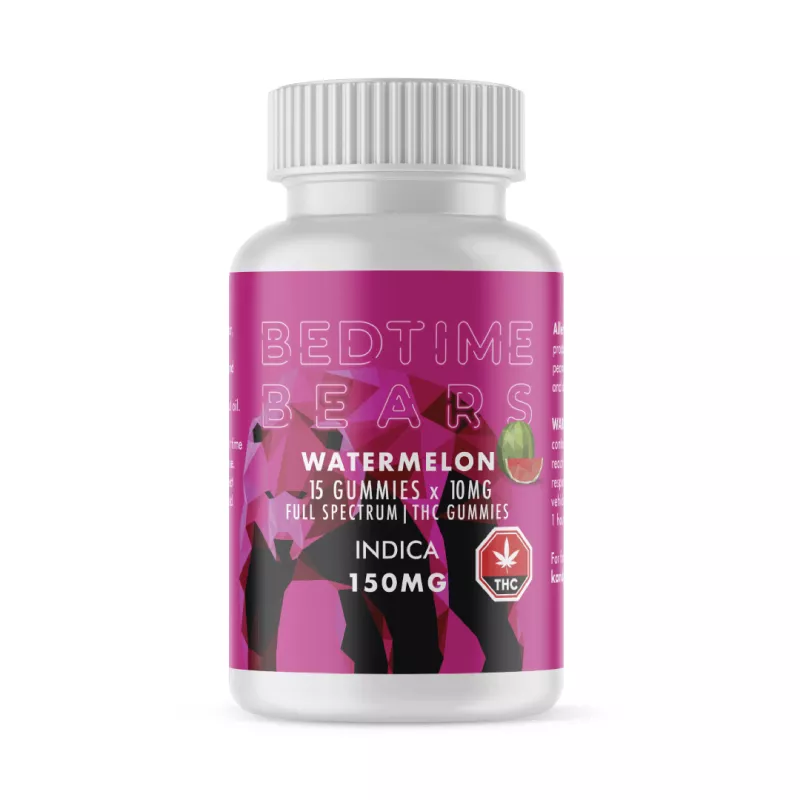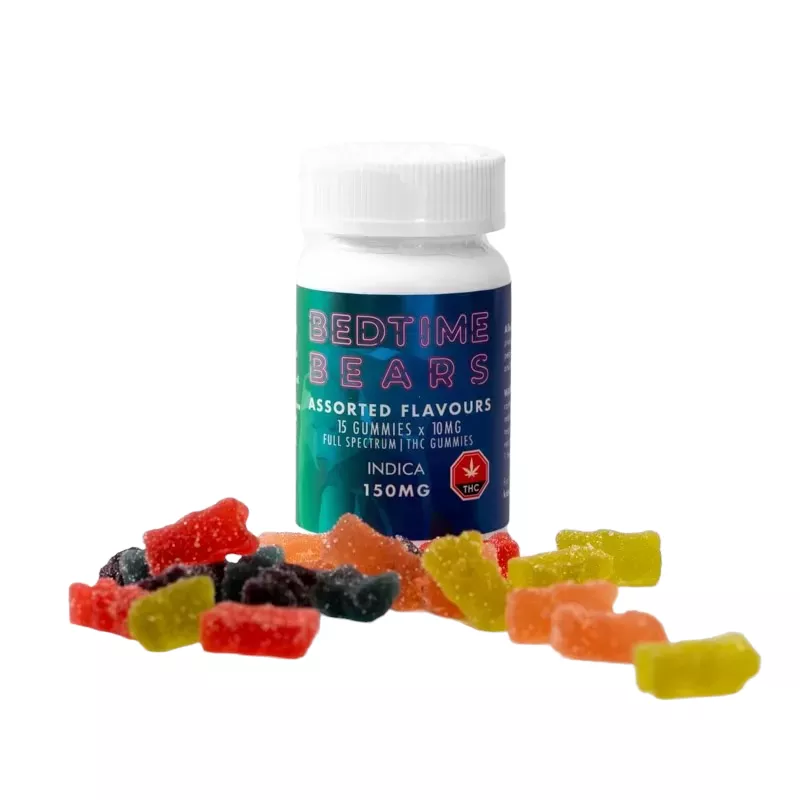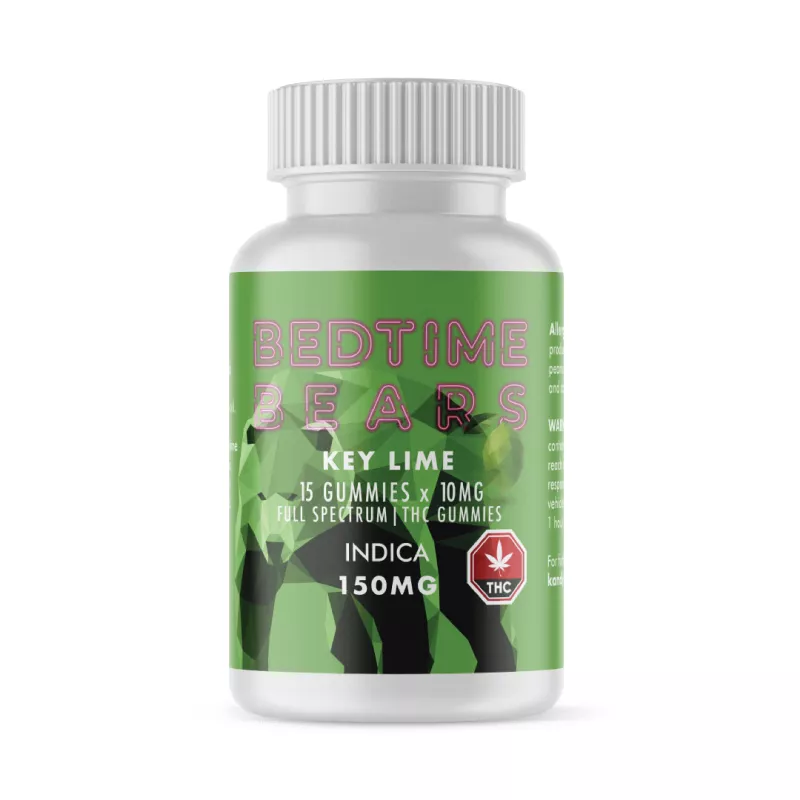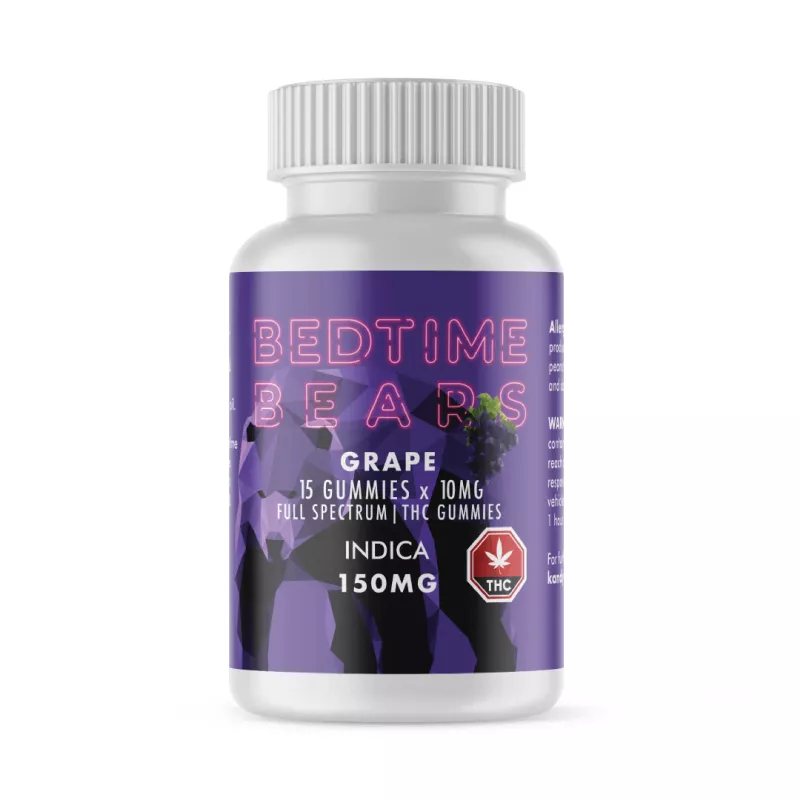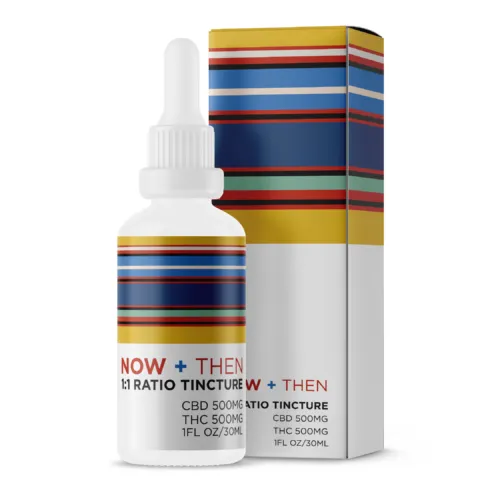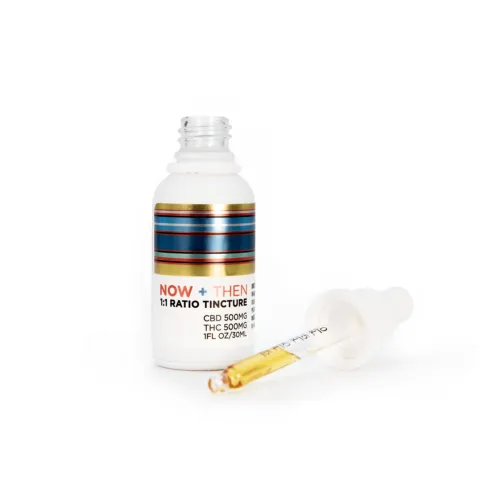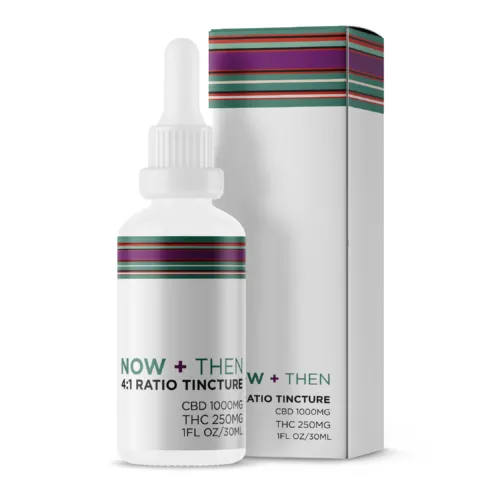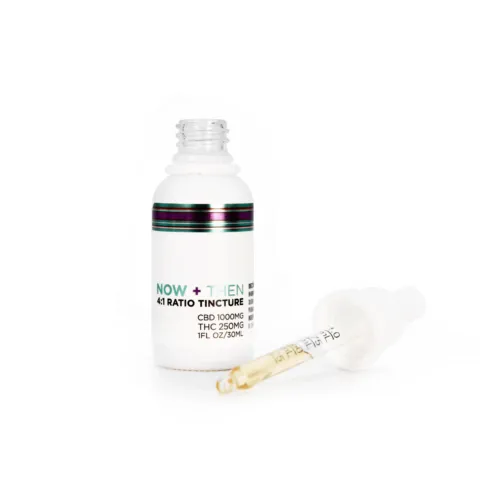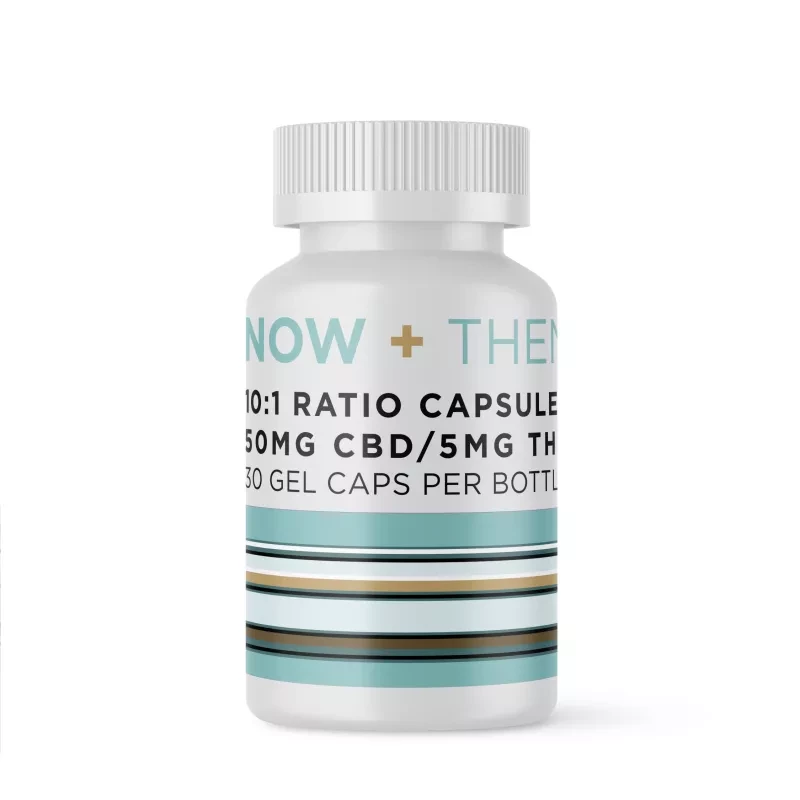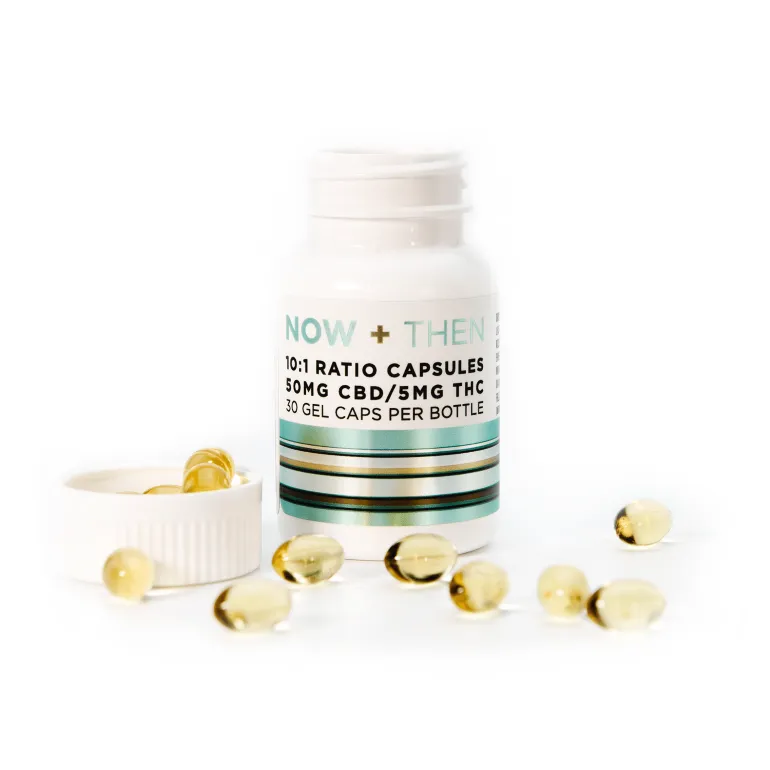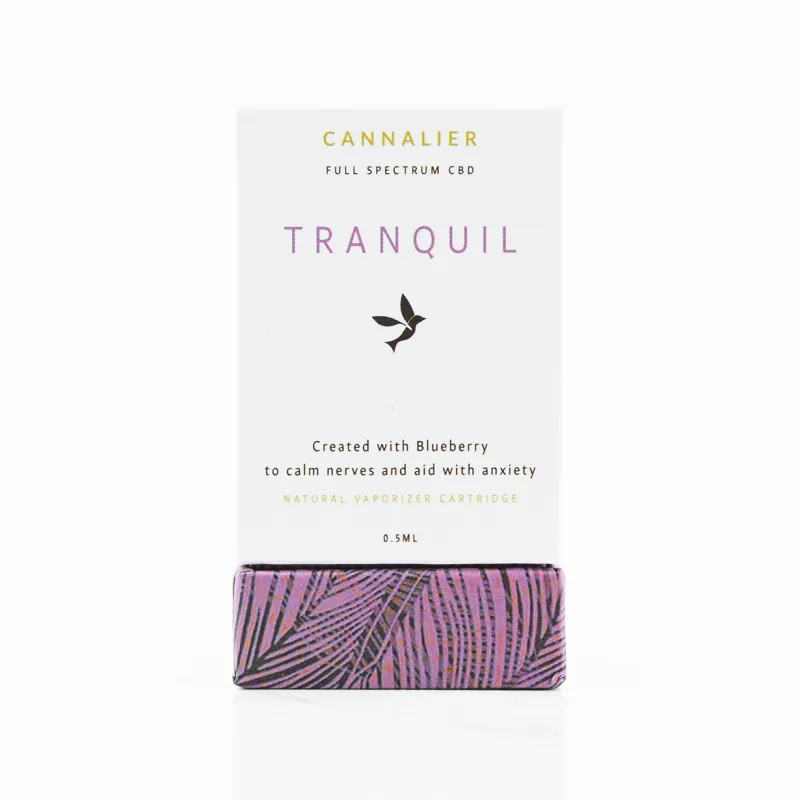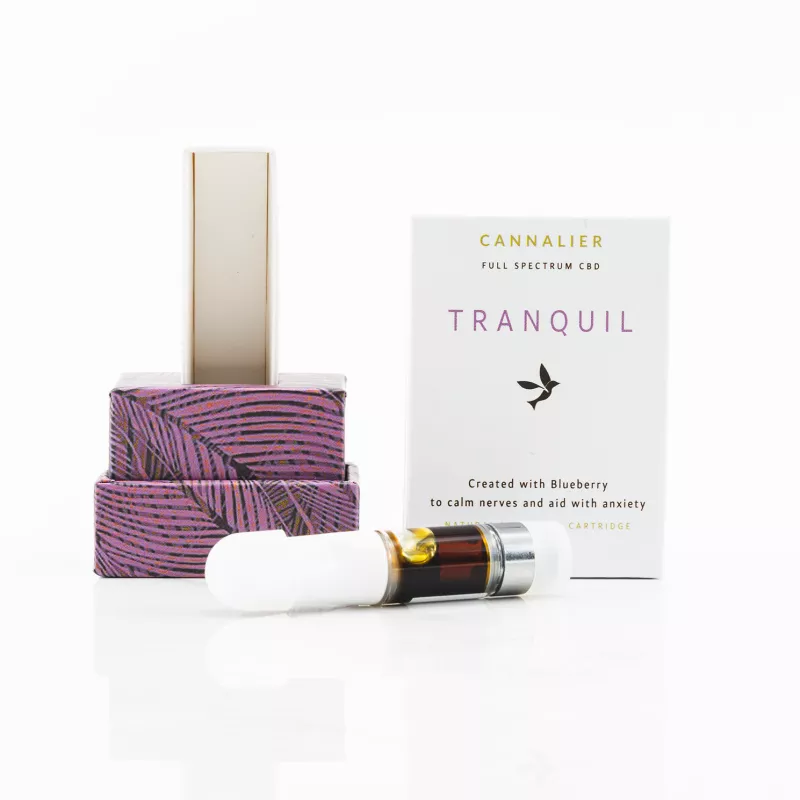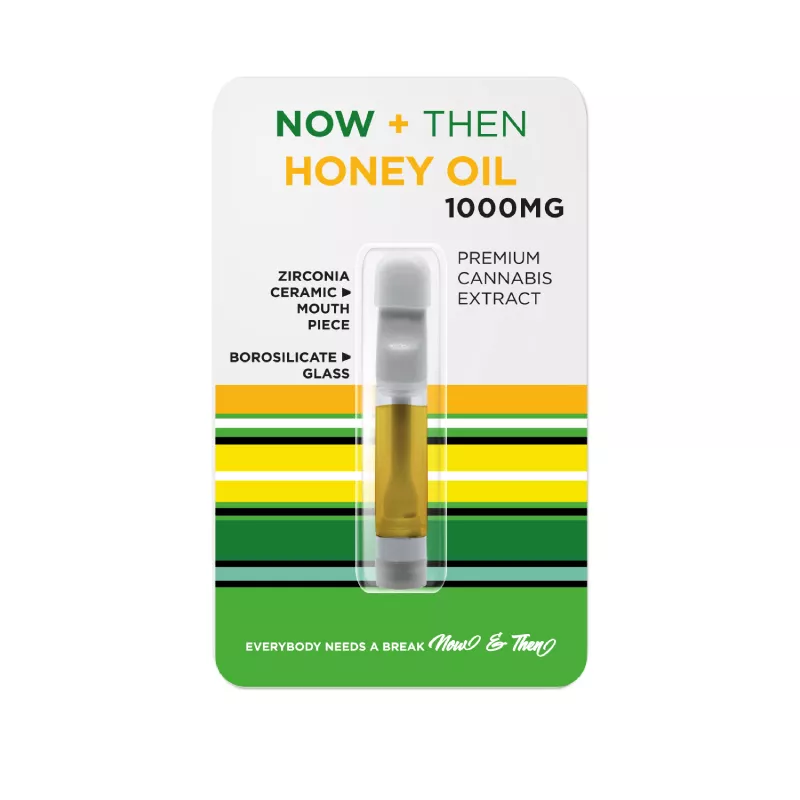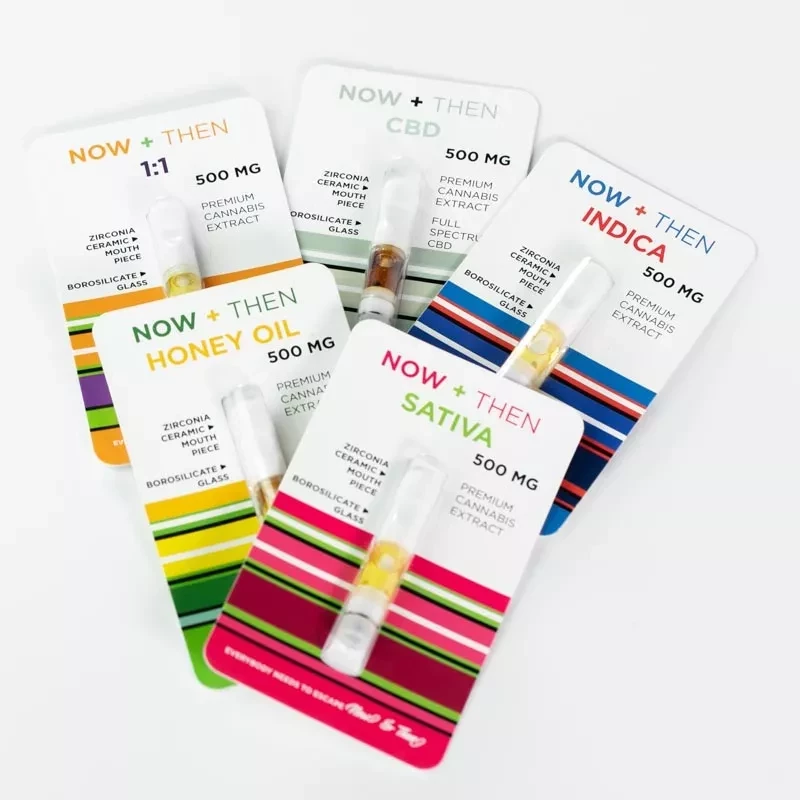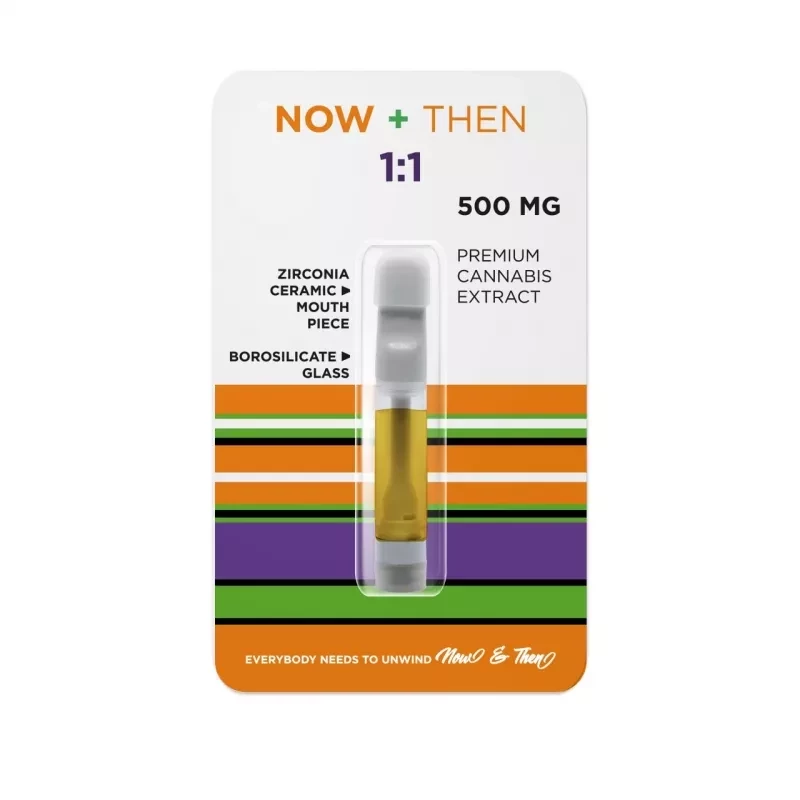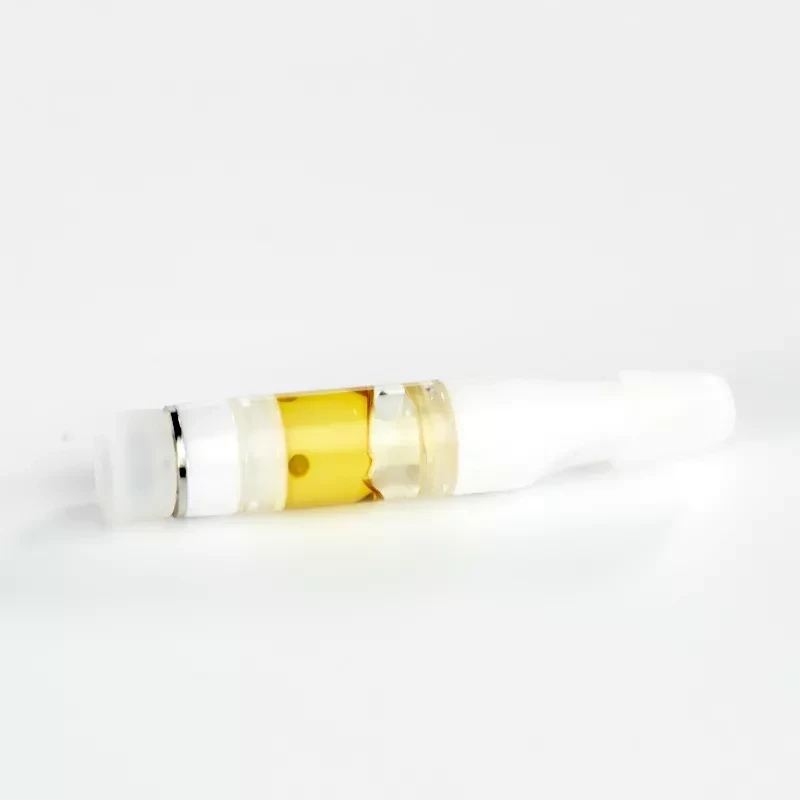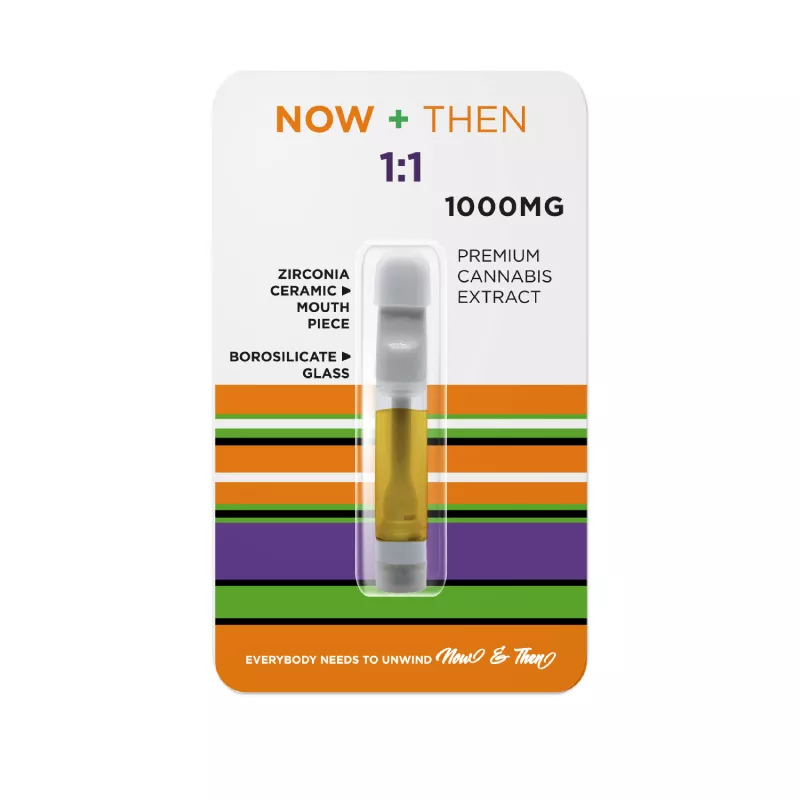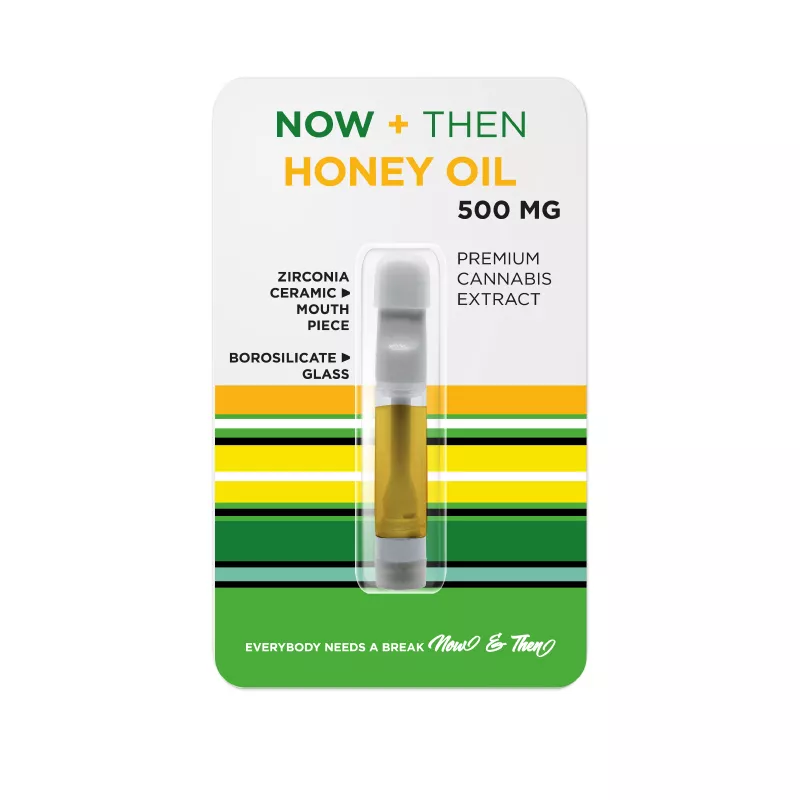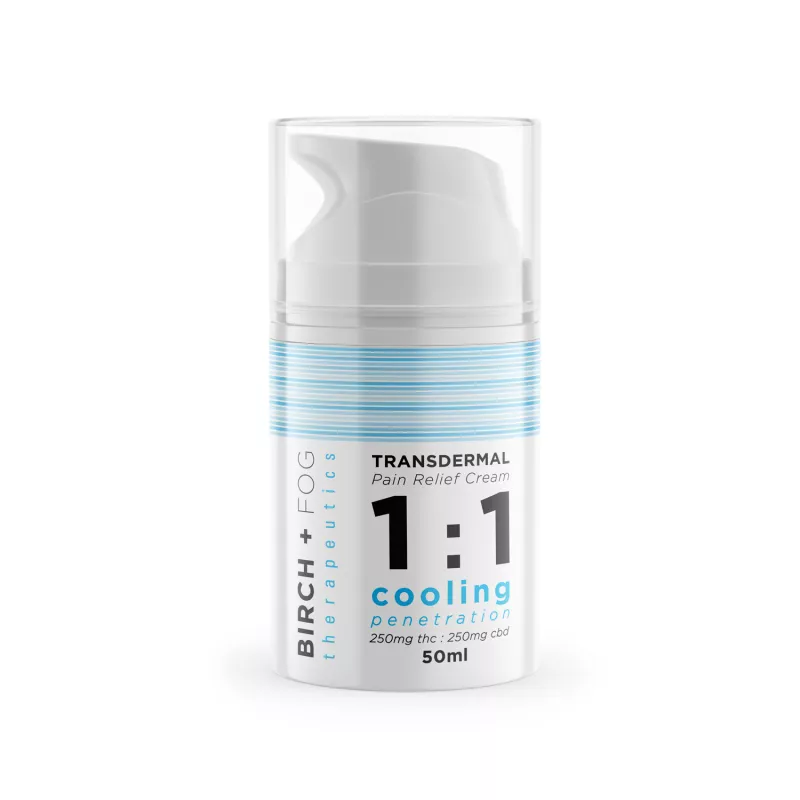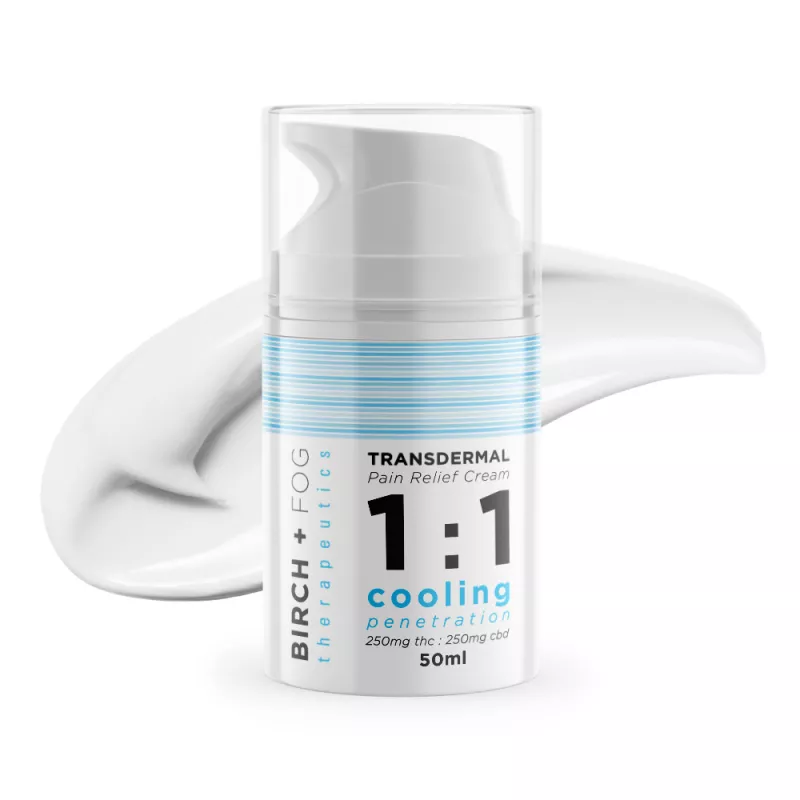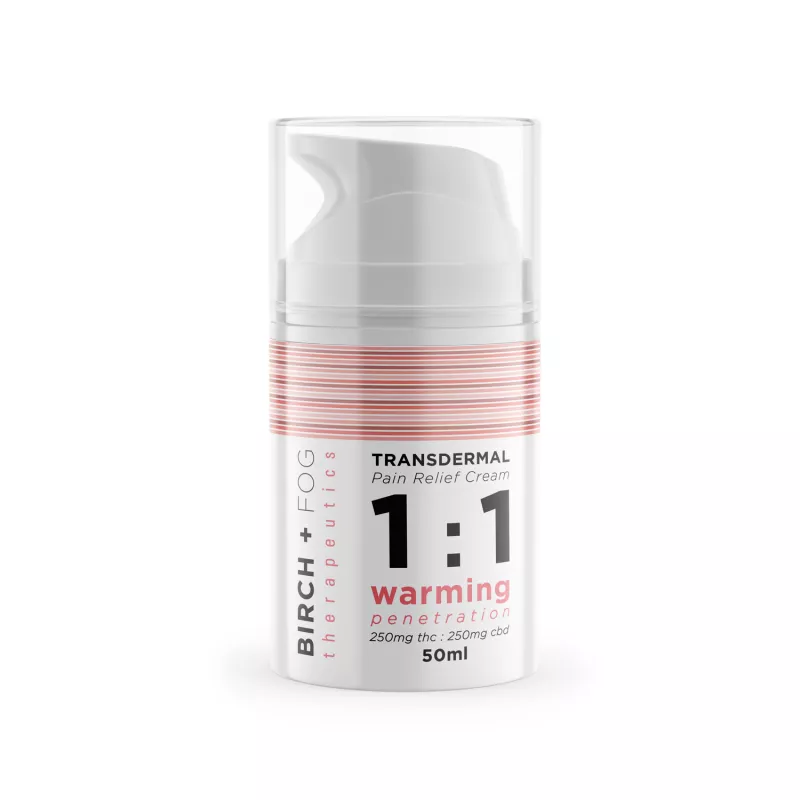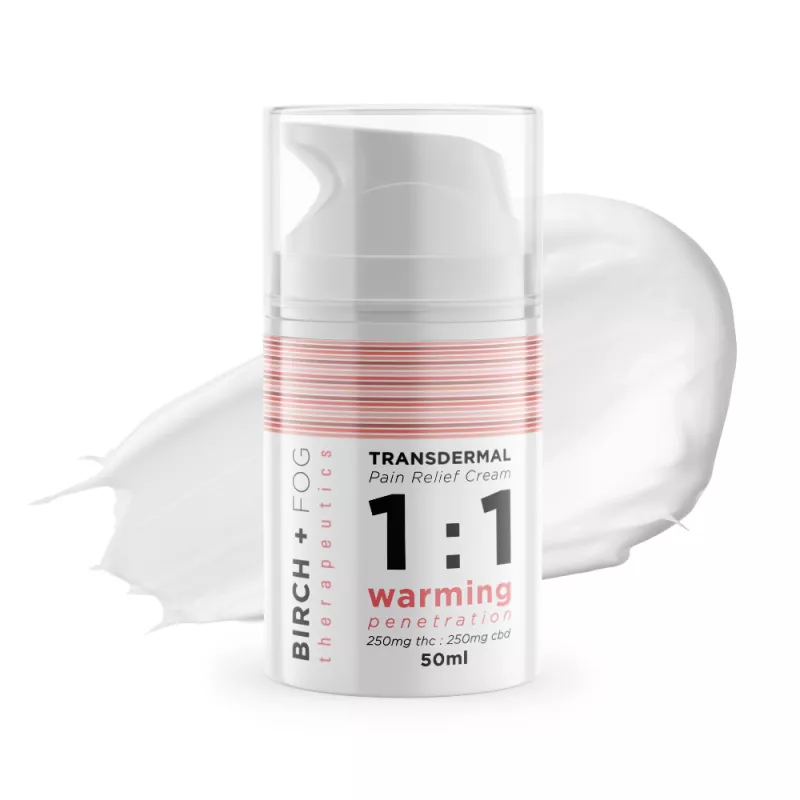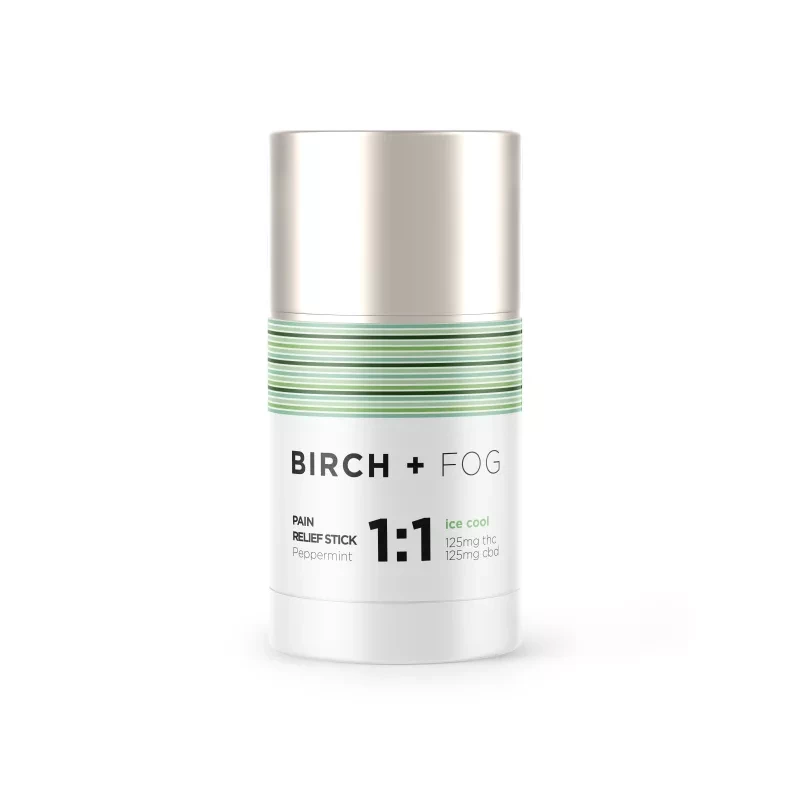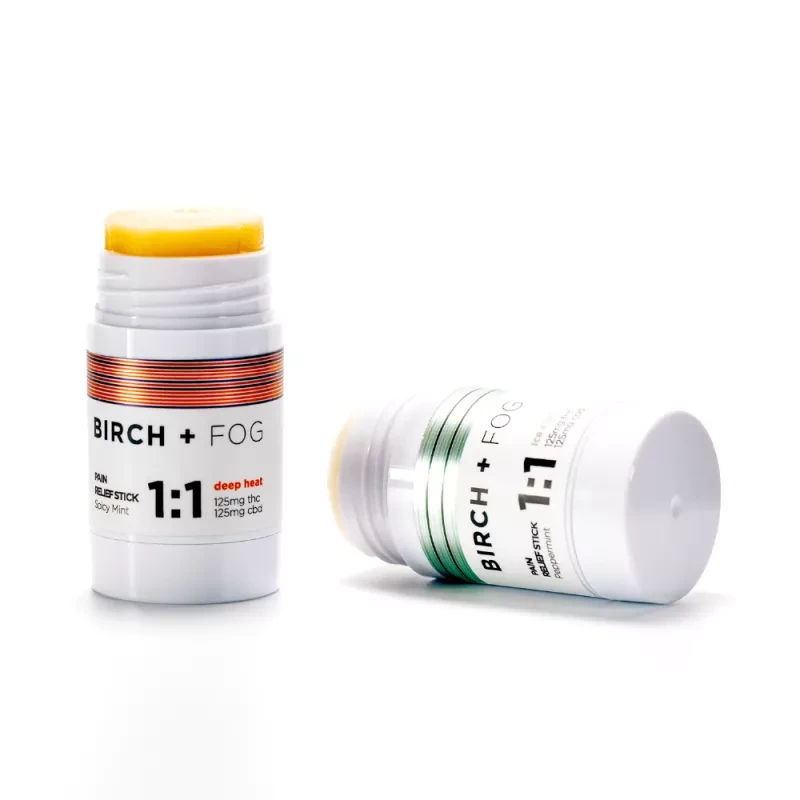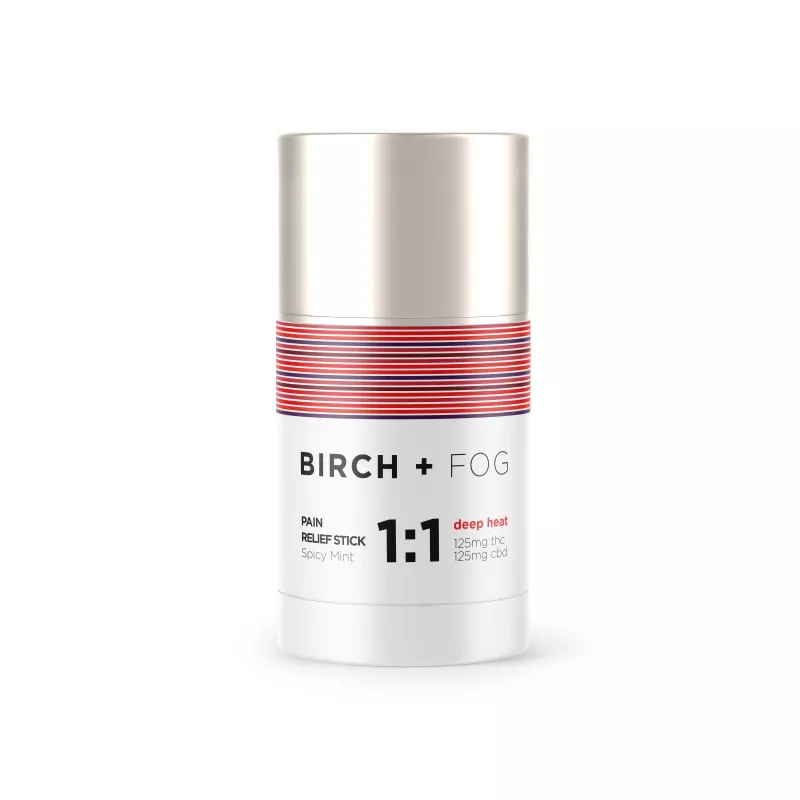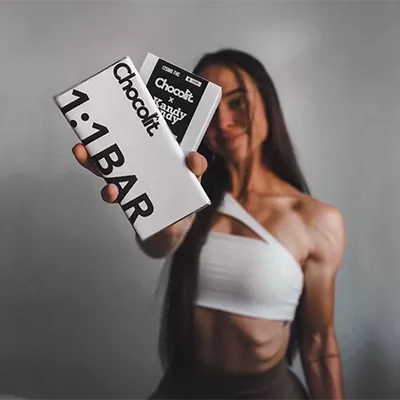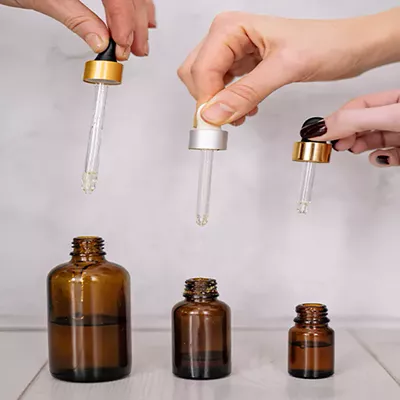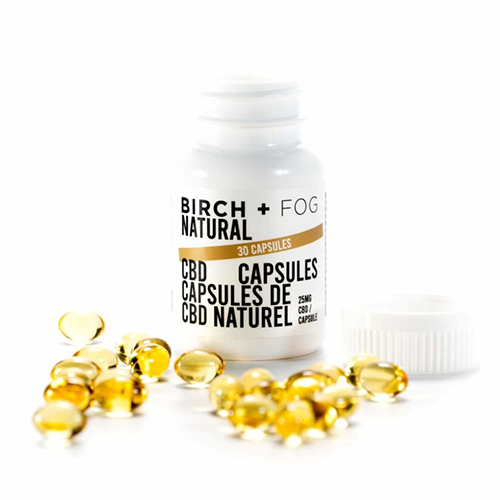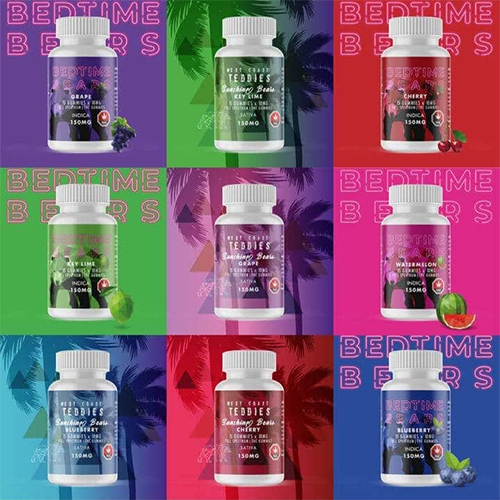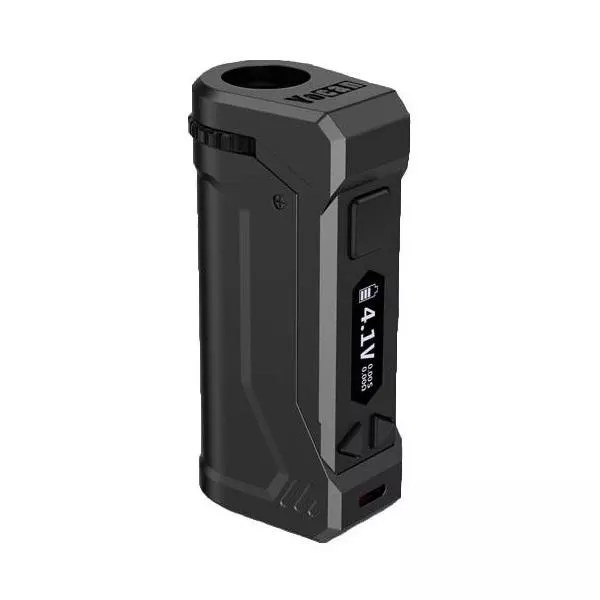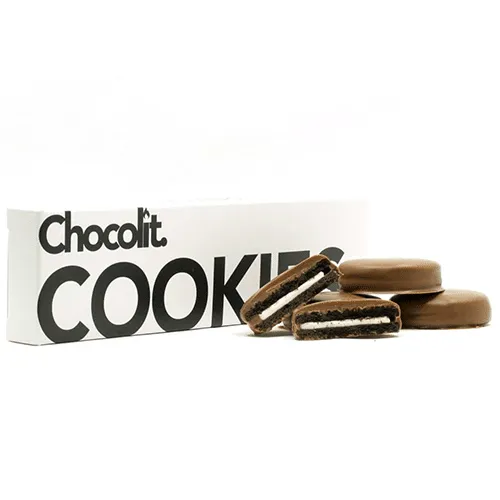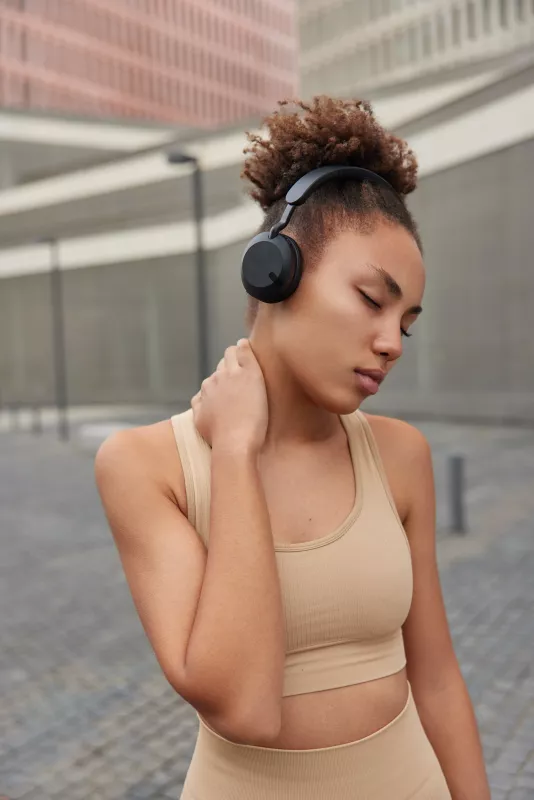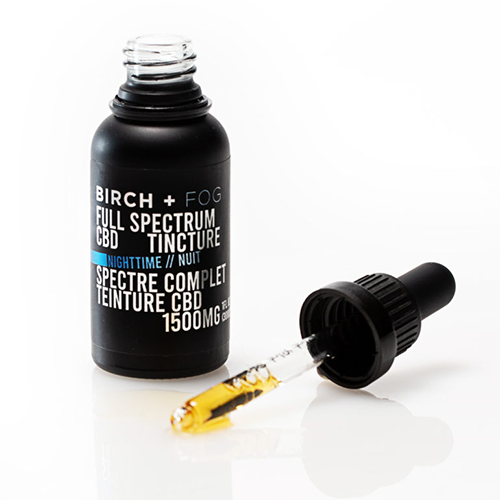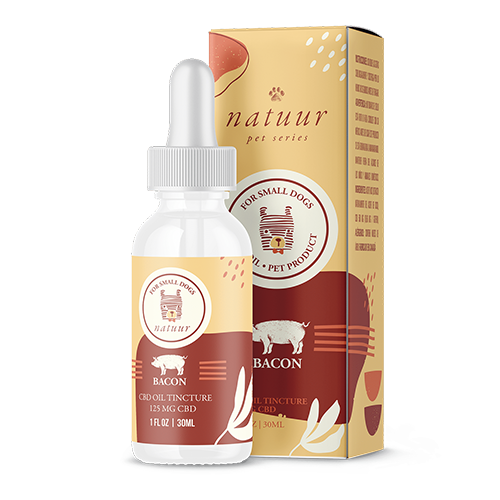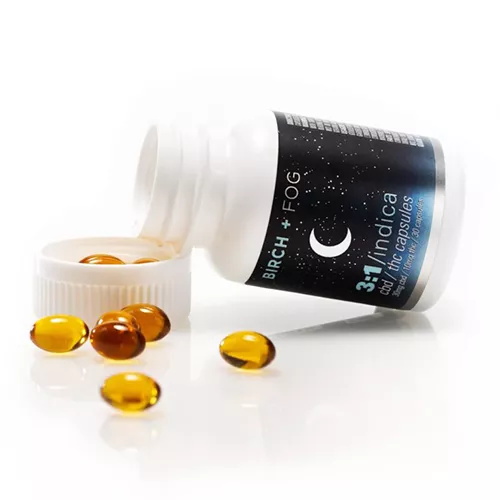- Shop All
- Type
- (144) THC>
- (75) CBD>
- Need
- Sleep>
- (21) Pain>
- (10) Anxiety>
- (6) Pets>
- (88) Edibles
- (14) CBD Edibles>
- (60) THC Edibles>
- (3) Ratio Edibles>
- (33) Hybrid Edibles>
- (87) Vegan>
- (5) Beverages>
- Strain
- (29) Indica>
- (24) Sativa>
- (47) Hybrid>
- (14) Tinctures
- (5) Anxiety Tinctures>
- (9) CBD Tincture>
- (1) Pain Tincture>
- (4) Ratio Tincture>
- (4) Sleep Tincture>
- (4) THC Tincture>
- (4) Capsules
- (1) CBD Capsules>
- (0) THC Capsules>
- (3) Ratio Capsules>
- Foggers
Top Selling THC Products
Shop THC-
Cbd : Thc Capsules 3:1 Ratio | Night Time - Birch + Fog
THC 900mg | CBD 300mg$70.00 -
Cbd : Thc Capsules 3:1 Ratio | Day Time - Birch + Fog
THC 900mg | CBD 300mg$70.00 -
Exotic Fruit High Dose THC Gummies - Liift
THC 3000mg | CBD 0mg$65.00 -
DEAL
4 Pack Sativa Thc Gummy Blokks - Kandy Kandy
THC 600mg | CBD 0mg$99.76 -
Watermelon Sativa Gummy Sunshine Bears - Kandy Kandy
THC 150mg | CBD 0mg$25.50 -
Key Lime Sativa Gummy Sunshine Bears - Kandy Kandy
THC 150mg | CBD 0mg$25.50 -
Grape Sativa Gummy Sunshine Bears - Kandy Kandy
THC 150mg | CBD 0mg$25.50 -
Cherry Sativa Gummy Sunshine Bears - Kandy Kandy
THC 150mg | CBD 0mg$25.50
Top Selling CBD Products
Shop CBD-
Day + Night CBD Tincture Duo - Birch + Fog
THC 50mg | CBD 500mg$70.00 -
Sour Blue Raspberry Daily CBD Gummies - Birch + Fog
THC 0mg | CBD 450mg$15.00 -
Daily Sour Cbd Gummies - Birch + Fog
THC 0mg | CBD 450mg$15.00 -
Full Spectrum Cbd Tincture | Night Time - Birch + Fog
THC 10mg | CBD 500mg$48.95 -
Green Apple Full Spectrum Cbd Gummies - Kandy Kandy
THC 10mg | CBD 250mg$26.00 -
Mango Full Spectrum Cbd Gummies - Kandy Kandy
THC 10mg | CBD 250mg$26.00 -
Orange Full Spectrum Cbd Gummies - Kandy Kandy
THC 10mg | CBD 250mg$26.00 -
Strawberry Full Spectrum Cbd Gummies - Kandy Kandy
THC 10mg | CBD 250mg$26.00
THC & CBD Edibles
Shop All Edibles-
Sour Blue Raspberry Daily CBD Gummies - Birch + Fog
THC 0mg | CBD 450mg$15.00 -
Daily Sour Cbd Gummies - Birch + Fog
THC 0mg | CBD 450mg$15.00 -
Exotic Fruit High Dose THC Gummies - Liift
THC 3000mg | CBD 0mg$65.00 -
DEAL
4 Pack Sativa Thc Gummy Blokks - Kandy Kandy
THC 600mg | CBD 0mg$99.76 -
Green Apple Full Spectrum Cbd Gummies - Kandy Kandy
THC 10mg | CBD 250mg$26.00 -
Mango Full Spectrum Cbd Gummies - Kandy Kandy
THC 10mg | CBD 250mg$26.00
THC & CBD Cartridges
Shop All Cartridges-
Honey Oil Glass Dispenser - Now + Then
THC 1000mg | CBD 0mg$30.00 -
Sativa Extract Glass Dispenser - Now + Then
THC 1000mg | CBD 0mg$28.00 -
Indica Extract Glass Dispenser - Now + Then
THC 1000mg | CBD 0mg$28.00 -
Phoenix Tears Glass Dispenser - Now + Then
THC 1000mg | CBD 0mg$26.00 -
Full Spectrum Cbd Extract Glass Dispenser - Now + Then
THC 10mg | CBD 1000mg$25.00 -
Awake Cbd Vape Cartridges - Kloud 9
THC 0mg | CBD 1000mg$33.00
THC & CBD Vape Pen
Shop All THC Vape Pens-
Mimosa Sativa THC Vape Pen - Now + Then
THC 1000mg | CBD 0mg$30.00 -
Strawberry Ratio THC Vape Pen - Now + Then
THC 500mg | CBD 500mg$30.00 -
Grape Indica THC Vape Pen - Now + Then
THC 1000mg | CBD 0mg$30.00 -
Honey Oil THC Vape Pen - Now + Then
THC 1000mg | CBD 0mg$30.00 -
Versace THC Vape Pen - Diamond
THC 1000mg | CBD 0mg$32.00 -
AC/DC RATIO Vape Pen - Diamond
THC 500mg | CBD 500mg$32.00
THC & CBD for Sleep
Shop All Sleep-
Day + Night CBD Tincture Duo - Birch + Fog
THC 50mg | CBD 500mg$70.00 -
Cbd : Thc Capsules 3:1 Ratio | Night Time - Birch + Fog
THC 900mg | CBD 300mg$70.00 -
Full Spectrum Cbd Tincture | Night Time - Birch + Fog
THC 10mg | CBD 500mg$48.95 -
Watermelon Indica Gummy Bedtime Bears - Kandy Kandy
THC 150mg | CBD 0mg$25.50 -
Key Lime Indica Gummy Bedtime Bears - Kandy Kandy
THC 150mg | CBD 0mg$25.50 -
Grape Indica Gummy Bedtime Bears - Kandy Kandy
THC 150mg | CBD 0mg$25.50
THC & CBD for Anxiety
Shop All Anxiety-
Full Spectrum Cbd Extract Glass Dispenser - Now + Then
THC 10mg | CBD 1000mg$25.00 -
1:1 Ratio Tincture - Now + Then
THC 500mg | CBD 500mg$60.00 -
4:1 Ratio Tincture - Now + Then
THC 250mg | CBD 1000mg$60.00 -
10:1 Ratio Capsules - Now + Then
THC 0mg | CBD 1500mg$65.00 -
Awake Cbd Vape Cartridges - Kloud 9
THC 0mg | CBD 1000mg$33.00 -
Tranquil Cbd Vape Cartridge - Cannalier
THC 0mg | CBD 500mg$32.00
Cannabis Deals
-
DEAL
1 Gram Honey Oil Vape Cartridge - Now + Then
THC 1000mg | CBD 0mg$32.00$28.80 -
DEAL
.5 Gram 1:1 Ratio Vape Cartridge - Now + Then
THC 500mg | CBD 0mg$24.00$21.60 -
DEAL
1 Gram 1:1 Ratio Vape Cartridge - Now + Then
THC 1000mg | CBD 0mg$32.00$28.80 -
DEAL
.5 Gram Honey Oil Vape Cartridge - Now + Then
THC 500mg | CBD 0mg$28.00$25.20
See All DealsNo products were found matching your selection.Birch+Fog
Browse All Birch + Fog-
Cooling 1:1 Transdermal Pain Relief Cream - Birch + Fog
THC 250mg | CBD 250mg$75.00 -
Warming 1:1 Transdermal Pain Relief Cream - Birch + Fog
THC 250mg | CBD 250mg$75.00 -
Peppermint 1:1 Pain Relief Stick - Birch + Fog
THC 125mg | CBD 125mg$44.95 -
Spicy Mint 1:1 Pain Relief Stick - Birch + Fog
THC 125mg | CBD 125mg$44.95
Refer A Friend
Make some money, Sign Up >Give $15, Get $15!Invite your friends to join Birch + FogThey get $15 off their first order!You get $15 for every friend that joins!!Everyday BIRCH+FOG Deals
Free Shipping over $125
Receive free shipping on all orders over $125, please note this is calculated after any discounts and before taxes.Shipping PolicyLeave any Review & win up to $500
Leave a review for any product you purchased at any time on any other site, and you are automatically entered in our monthly contest to win up to $500 of free BIRCH+FOG products!Review Contest DetailsFirst time orders get $15 off
Get $15 off your first order with us! All of our members also become eligible for exclusive giveaways, freebies, vip sales, and other goodies only you will know about!Sign UpRefer A Friend Give $15 ~ Get $15
Give anyone $15 off their first order, & you get $15 for everyone that joins! Simply pass out your referral link below anywhere you think someone will use it.Referral LinkBIRCH+FOG Wellness with CBDBirch + Fog is actively engaged in the creation of wellness-focused product solutions, looking beyond the market for standard CBD-forward cannabis products. CBD products are expected to account for more than 0.15 percent of the entire health and wellness market by 2028. With technological improvements and product innovation, CBD's potential for integration into the wellness sector is essentially infinite. Birch + Fog continues to partner with brands that cater to a whole new cohort of customers who have never used cannabis before.
Overview of CBD products
Imitations and fraudulent product claims weaken the market potential for enterprises focused on quality, while legislation lags behind customer demand. Many people are interested in CBD, but are unsure how to choose the best product for them because they are unfamiliar with the market. Consumer education and quality assurance are critical for firms investing in high-quality, compliant CBD products.
What's the deal with CBD?
Over 120 phytocannabinoids8, plant chemicals with the capacity to activate receptors in the endocannabinoid system, are found in cannabis (Cannabis sativa, L.). THC and CBD are the most widely used and studied cannabinoids, although research into the therapeutic potential of numerous lesser-known cannabinoids such cannabichromene (CBC) and cannabinol is ongoing (CBN). CBD continues to stand out in terms of its medicinal potential from a wellness standpoint.
Potential health advantages
CBD appears to provide a variety of possible health benefits, according to a number of preliminary research studies. The recent European Court of Justice decision designating CBD as a non-narcotic offers up new prospects for more comprehensive study.
Epidyolex, which is used as an additional therapy for seizures associated with Lennox-Gastaut and Dravet syndromes, is presently the only CBD-containing pharmaceutical product approved for use in the EU. Meanwhile, CBD has grown in popularity in the wellness industry due to its promise for pain reduction, relaxation, and inflammation relief.
CBD incorporation into wellness products
Miscibility is one of the challenges in using CBD oil into wellness goods: incorporating an oil-based ingredient into products that are typically water-based poses an issue of product separation. This can lead to inconsistencies in dose and erroneous labeling if not carefully handled.
Birch + Fog expands our own product lines
We're very thrilled to expand into the greater wellness business in order to address some of our clients' primary pain, anxiety, depression and general wellness issues. Our solution provides a broader view of how consumers meet their health demands, including cannabinoids as well as a wide range of other items. As we begin to look at the wellness market, cannabis and CBD are a big part of it. After all, in our quarterly consumer surveys, cannabis and CBD users say that cannabinoids are meeting their wellness demands. Check out our top 10 cbd products review here.
What's the Difference Between CBD and Cannabis?
Before we get started, it's important to understand the differences between cannabis and CBD, both in terms of legal status and effects. CBD refers to all legal hemp/cannabis products with less than 0.3 percent THC, whereas cannabis refers to THC-dominant goods offered in states where cannabis is legal. THC is the psychoactive ingredient in cannabis that gives the plant its distinct high. CBD is non-psychoactive, which means it has no mind-altering effects.
Cannabinoids and their Effects on Physical and Mental Health
Maintaining your body's functionality is an important part of remaining healthy. As we become older, we try to keep our physical bodies in good shape; this includes physical health, nutrition, fitness, and sleep. Physical health issues include keeping our bodies pain-free, wanting eight hours of sleep, and having enough vitamin B.
Our two key mental health problems are coping and flow. Coping refers to how people cope with life's challenges, such as the death of a loved one, starting a new career, or hearing terrible news. Flow is a mental state that is more than just coping; it is thriving and feeling connected to the world. Flow, sometimes known as being "in the zone," describes how smoothly someone glides through their day.
Physical relief, relaxation, and sleep are the most requested CBD product effects, according to our most recent user research.
On the other hand, cannabis consumers' top desired product effects are relaxation, sleep, and well-being.
The first element of wellbeing, physical health, is directly addressed by bodily relief and sleep. Consumers have a wide range of items to choose from that promise a pain-free body and a comfortable night's sleep, and many have found it in cannabis products. CBD and THC are available in a variety of forms, and the type of product matters. CBD gummies users, for example, are more likely to want to sleep, but CBD tincture users are more likely to want physical relief.
Consumers' desire for well-being and relaxation addresses the second element of wellness: mental health. Products for mental wellness must effectively assist consumers attain their desired mental state, whether it is to cope with or thrive in the world.
According to our cannabis consumer research, 47 percent of those who want to relax use cannabis to do so. In contrast, 64% of cannabis users who do not have any medical issues want to relax. Cannabis' psychotropic high is a well-known way to relax and de-stress. Despite the fact that CBD's effects are more mild, consumers continue to prefer effective products.
Beyond the Self and the Social
The remaining two wellness areas aren't as well-represented in CBD as they are in cannabis. The social part of wellbeing is concerned with our interpersonal relationships and community connections. Social issues can arise as a result of societal expectations of how things should be done or social pressures to conform.
In terms of social wellbeing, only a tiny number of CBD users say their products provide them with intimacy (9%) and enjoyment (12%). Meanwhile, 35% of cannabis users want to have fun, and another 19% want to feel connected.
The final area of wellbeing encompasses all aspects of wellness that contribute to our feeling of self. Each of us has a unique relationship with nature, spirituality, and the health of the planet. We can choose to engage with these aspects of life in order to gain a better understanding of ourselves through our interactions with “others.” Outside of the self, cannabis use has a stronger link to wellness. For example, 46% of cannabis users said they consume it while doing outdoor activities, maybe to strengthen their bond with nature. THC's altered condition has been linked to spirituality in popular culture. When you Google "cannabis usage in religion," you'll get a variety of claims about historic and modern-day spiritual cannabis use, but not CBD use.
Wellness in a broader sense
Cannabis and CBD are only two of the many ways to improve one's health. An online breathwork course - a completely other category of wellness items - could satisfy the same yearning for relaxation in some instances. We can observe how cannabis and CBD compete with a wide range of wellness services by understanding the practical effects a consumer desires. From a business perspective, we would love to fill every such need with our products, but from an actual wellness perspective, it's a much better idea to combine multiple techniques to address issues of distress in a meaningful lasting way that leads to wellness, and not just cope with pain or manage it. Wellness is the idea that we can move beyond it.
We have no business conflict with this approach, our product lines are so varied that our clients can benefit from the joy, relaxation and freedom our non-medical product lines offer.CBD and Anxiety, does it work?CBD has recently gained a lot of attention. CBD is suddenly appearing on the shelves of every health food store, and it appears that CBD manufacturers have no shortage of inventive ways to incorporate it into meals, treats and beverages. It can be used to treat a variety of health issues, including anxiety, according to them. So, do they have it right?
Let's have a look at a few key points brought to light by the research on CBD and anxiety.
What exactly is CBD?
Cannabidiol is the abbreviation for cannabidiol. It's one of a number of compounds contained in cannabis sativa plants, which include hemp and marijuana. Tetrahydrocannabinol (THC), another chemical found in these plants, is responsible for the “high” associated with marijuana. CBD is derived from hemp plants in many cases, but not all. THC levels in hemp are typically low, although THC levels in marijuana plants can be much greater.
CBD has been promoted as a cure for a variety of ailments in recent years, including:
Cancer
Alzheimer's disease is an illness that affects people of all
Parkinson's disease is a neurological disorder that affects people.
Anxiety Depression
Pain that lasts a long time
Only one CBD medicine, Epidiolex, has been licensed by the FDA for the treatment of two severe forms of epilepsy: Lennox-Gastaut Syndrome and Dravet Syndrome. The drug was also approved for the treatment of seizures caused by TB sclerosis complex.
CBD is being researched as a treatment for other ailments, but it has not yet been approved.
Can CBD assist with anxiety?
CBD's mechanism of action in the treatment of anxiety is unknown at this time. It may act by changing serotonin levels in the brain, according to some research. Serotonin is a neurotransmitter found in your body that helps you:
Mood
Sleep Digestion
Behavior
According to research, raising serotonin levels can aid in the treatment of anxiety. Certain drugs, such as antidepressants, work by controlling serotonin levels, and some research suggests that CBD works in a similar way as antidepressant and anti-anxiety treatments.
Can CBD aid in the treatment of depression?
CBD may assist with depression, according to some data. However, there haven't been many human investigations. To be certain, more investigation is required. CBD may cure depression and anxiety by modifying serotonin levels, according to researchers.
CBD may be safe to combine with antidepressants, but consult your doctor first.
What research has been done on CBD and anxiety?
A lot of research have looked into CBD as a treatment for anxiety as a result of its growing popularity.
CBD reduced anxiety and discomfort during public speaking in adults with social anxiety disorder, according to a 2011 study.
CBD was also proven to improve anxiety symptoms in persons with social anxiety disorder in a 2011 study.
CBD may help with generalized anxiety disorder, panic disorder, social anxiety disorder, obsessive-compulsive disorder, and post-traumatic stress disorder, according to an analysis of 49 research published in 2015. (PTSD).
In a 2019 study, 91 percent of 11 patients with PTSD reported reduced symptoms after ingesting CBD.
CBD was employed in a 2019 study to help persons suffering from anxiety and insomnia. In the first month, nearly 80% of patients reported better anxiety, and nearly 70% reported improved sleep, however the outcomes for sleep changed over time.
CBD did not reduce anxiety or paranoia, according to a 2017 study, and it actually worsened anxiety in some persons.
Although the outcomes are typically encouraging, there are a few points to consider. To begin with, a large number of these research have small sample sizes (even the ones with negative results). As a result, the findings may not be representative of the overall public. Second, these trials do not examine the long-term effects of CBD therapy for anxiety. This means we don't know if taking the medicine consistently reduces anxiety over time.
How much CBD should I take for anxiety?
There is no established CBD dosage for anxiety. People with social anxiety disorder benefit from doses of 300 mg to 600 mg, according to research. However, further research is required to find a beneficial dose.
CBD is available in a variety of forms and products when it comes to how to use it, including:
Oils
Capsules
Drops
Teas
Vapes
Candies
It's even possible to receive a shot of it in your latte.
What are the possible CBD side effects?
CBD has been reported to have low adverse effects in studies. However, patients who were given Epidiolex (which is approximately 100 percent pure CBD) had negative effects like:
Drowsiness
Fatigue
Appetite decreases
Insomnia
Diarrhea
In clinical trials, Epidiolex caused minor liver damage in some persons, according to the FDA.
CBD can also interact with warfarin (Coumadin), a blood-thinning medication, and it has the potential to interact with a variety of other pharmaceuticals, including:
Antidepressants
Benzodiazepines
Antihistamines
Opioids
Antipsychotics
Calcium channel blockers are drugs that block calcium channels in the body.
To learn more about how CBD interacts with other drugs, more research is needed.
The effects of CBD on pregnant and breastfeeding women are also unknown, and additional research is needed to evaluate whether using the products is safe for these women. Women who are pregnant or nursing should avoid using this product, according to the FDA. CBD products should be avoided. You might be wondering if CBD can truly make your anxiety worse rather than better. This, according to studies, is unlikely. CBD has been demonstrated to reduce anxiety or have no effect on anxiety even at large doses, whereas THC lowers anxiety and raises it at greater doses. CBD might theoretically make you uneasy if it contains a high dose of THC. However, if the THC level is minimal, there should be no problem.
Is it going to get me high?
You shouldn't get high if the CBD is pure.
CBD and THC both work on the same brain receptors (cannabinoid receptors). THC, on the other hand, is assumed to act on these receptors to a considerably higher extent than CBD, causing the mental and perception changes associated with marijuana.
Furthermore, the World Health Organization discovered that CBD does not appear to be addictive or produce the same type of reliance as other drugs of abuse.
Regardless of whether they declare it or not, some CBD products include THC. There's a risk you'll get a buzz if the CBD contains enough THC.
Is CBD a legal substance?
Yes, in Canada it is.
Takeaways to remember:
CBD is frequently promoted as a treatment for a variety of ailments, including anxiety.
CBD has been found to lower anxiety in recent trials, although further study is needed.
The FDA has only approved one CBD drug so far, and it is for the treatment of epilepsy.CBD and VapesVaping is one of the most common and effective ways to consume CBD. With such a wide variety of products on the market, it's crucial to understand which "CBD oil" products are suited for vaping and how to ensure their quality.
The Birch+Fog team is in a unique position to notice things that the normal consumer might overlook. We're also customers, but because of our position in the industry, we know what's going on behind the curtain of marketing.
This article will teach you all you need to know about CBD vapes and CBD vape juice, as well as how to use them effectively. One word of caution: if you take prescription drugs, talk to your doctor before adding CBD to your regimen.
What exactly is CBD?
CBD, or cannabidiol, is a cannabinoid that occurs naturally in hemp, a form of cannabis plant. Cannabidiol is well-known for its medicinal benefits, and its popularity has risen in recent years. CBD oil has a number of uses, including reducing inflammation, anxiety, sadness, pain, and epilepsy symptoms. Vape juice, edibles, CBD oil tinctures, pills, and lotions are all examples of CBD-infused items.
What exactly is CBD oil?
CBD oil, not to be confused with hemp seed oil, has been used as an oral tincture for a long time. It typically contains MCT oil (produced from coconuts) and should not be inhaled! Inhaling oil like that might cause major health problems like lipoid pneumonia, according to studies.
CBD tinctures, unlike CBD vape juice, are meant to be consumed. Unfortunately, many of them lack sufficient warning signs and are offered in dropper bottles similar to those used for e-juice.
There is a significant difference between CBD oil tinctures and CBD oil for inhalation. CBD tinctures contain oil, whereas CBD vape oil does not. Let's look at the many varieties of CBD that are suited for vaping.
CBD vape juice - CBD vape juice is also known as "CBD vape oil," however it does not contain any genuine oil. It's probably not suited for inhalation if it contains anything other than PG, VG, CBD extract, terpenes, and cannabinoids. It should include no actual oil and should mention vaping, vape juice, e-liquid, or e-juice on the label.
Cartridges containing CBD — These are slim disposable e-cig tanks loaded with CBD e-juice, similar to THC oil cartridges. (Some contain CBD distillate, which is extracted using CO2 or a solvent-based CBD extraction process.) They attach to a regular 510 battery and provide for a simple introduction to CBD vaping.
CBD strains with a high CBD content - CBD flower is the most natural form of CBD available. There are many high-quality cannabis strains with high levels of CBD and other cannabinoids. The best ones contain between 150 and 250 milligrams of CBD per gram of flower. They can be vaporized in a standard cannabis vaporizer or bought as pre-rolls.
I'm not sure what dosage I should take.
Unfortunately, there is no such thing as a “one-size-fits-all” CBD dosage. It is highly dependent on a number of parameters, including the symptoms being treated, the patient's weight, and tolerance. Furthermore, everyone's metabolism and endocannabinoid system are slightly different, resulting in individual results.
With each puff, a typical CBD vape cartridge containing 100 mg of CBD delivers roughly 1-2 mg CBD. Depending on your device and the intensity of your CBD vape juice, you'll be inhaling a little more CBD every puff if you're using a CBD vape pen or tank.
Starting low and working your way up is the best method to find your dosage. Start with the smallest dose, 1 to 2 mg of CBD, and wait six hours before taking the next dose. Increase your dosage by 5 mg every time you take it. Keep a close eye on how you're feeling after each dose. It might not be obvious straight away, or even the next day. Lock down that dosage and stick with it as soon as you notice beneficial effects.
The average CBD user consumes 10-30 mg of CBD per day. Some individuals use as much as 200-1000 mg per day for significant illnesses like pain and inflammation. More information on how to find your appropriate CBD dosage may be found in our entire guide.
What are the drawbacks of CBD vaping?
The study of CBD's negative effects is still in its early stages. Last year, a comprehensive investigation showed that CBD does have certain negative side effects. Mild sleepiness is the most commonly reported CBD side effect. This is more typical in first-time users and will go away with continued use.
High doses of CBD are the most common cause of drowsiness, however low to medium levels can actually have the opposite effect. Other negative effects were mild exhilaration, hunger, and red eyes. CBD's adverse effects are generally milder than those of many prescription medications.
Is it possible to get high from vaping CBD oil?
No, unless it's made from THC-laced marijuana, vaping CBD won't get you high. The majority of CBD used in vaping is produced from industrial hemp. It contains trace levels of THC (up to 0.3%), but not enough to make you high. For anyone worried about failing a drug test, there are various THC-free CBD e-liquids available.
Furthermore, by delaying your body from fully breaking down THC, CBD can actually reduce the high that THC creates. Take CBD oil for anxiety if you ever find yourself "too high." It can help you relax and lessen the paranoia that THC can produce.
Is it legal to use or not?
In designated vaping areas, yes. Although CBD seems to be ubiquitous, the law from one region to the next remains rather ambiguous. If you get caught with any hemp extraction where hemp is still not legal, or in context where it is legal to possess, smoke, but not transport, you will be treated like a drug smuggler, and arrested and charged and prosecuted to the fullest extent of their law. Learn the exact law before you use this or transport this into or out of the regions.
Its really best to not travel with it, and simply grab a disposable CBD vape kit when you get where you are going. You can also order one of our disposable vape pens and ship it to anywhere in Canada in advance of your travels, so its there when you arrive.
Vaping CBD is one of the simplest ways to get this valuable ingredient into your system.
Vaping provides simple and rapid relief for many people with chronic pain or other CBD-treated diseases. For beginner vapers, though, getting started might be a difficult undertaking. Is that disposable pen vape from the gas station down the street really the greatest option, with so many CBD brands to choose from? Most likely not.
Many retailers take advantage of inexperienced vapers. Newcomers frequently purchase costly equipment or, worse, a harmful or counterfeit item. Before making your first purchase, it's critical to gain a fundamental grasp of vaping and the components involved.
We'll also go over some of the health risks associated with vaping so you can decide whether or not this is the best way for you to take CBD. Some major injuries and even a few deaths have been linked to vaping in recent months, and we go over what is known and what isn't below.
How is it possible to vape CBD?
CBD is definitely everywhere these days, and it's being put to nearly everything. It's only logical to question if CBD can be vaped.
The short answer is that CBD can be vaped. To do so safely, you'll need special equipment as well as a certain type of CBD vape juice. To effectively inhale the vapor, you'll need CBD oil in a similar specialized form, just like people who vape nicotine products use specific vape juice.
In this article, we'll look at the many types of CBD vaping equipment available. Always purchase from a respected brand. CBD vape items are available in a variety of forms from many of our Top CBD Brands. Simple, disposable vapes and vape cartridges are available from these brands. The article below, on the other hand, will teach you a lot more about how to vape and whether or not it's the correct choice for you.
CBD Vaping's Advantages
Because of its potent health benefits, the hemp sector has exploded in recent years. Thousands of testimonies and some scientific studies claim that CBD can help with anxiety, sleeplessness, pain, inflammation, and epilepsy, among other mental and physical health issues. CBD advantages can be obtained through a variety of techniques, including eating it, ingesting it under the tongue, applying it to the skin, and more. Vaping, on the other hand, provides for quick absorption and a calming, effective CBD experience.
Inhaling CBD vape oil, on the other hand, is favored by many people. Here are a some of the advantages of
CBD vaping:
VAPING CBD REQUIRES QUICK ABSORPTION
Vaping CBD might be your best option if you're looking for immediate relief.
CBD vape oil absorbs CBD more quickly than other CBD products such as edibles and oils. This is due to the fact that CBD enters your bloodstream through your lungs rather than your digestive system. The medical effects of CBD vape oil are usually noticed right away, or within a few minutes. Vape oil is a good option for people who have anxiety episodes, short-term tension, or pain flare-ups because of its quick absorption rate.
When compared to other routes of ingestion, it's probable that inhaling CBD has a higher bioavailability, which means that more of the substance is taken into the body. According to the results of a study that evaluated the bioavailability of psychoactive cannabis across various intake techniques, inhalation of THC had an availability of 18 percent, whereas eating a THC cookie had a six percent availability. While the results of this study focused on THC bioavailability, they should be equivalent to CBD bioavailability. In terms of how they are absorbed by the body, the two substances are identical.
FEWER INGREDIENTS = HIGHER PURITY
Many CBD products on the market incorporate other natural substances to boost the health benefits, but some people prefer to stick to CBD alone.
CBD is usually found in its purest form in vape oils. A premium CBD vape oil will only have a modest number of components. Most CBD products contain 100 percent pure CBD extract, as well as VG and propylene glycol (PG). These two chemicals combine to bond the vape oil and create the clouds that are so popular in vaping. A flavor component may be present in pure CBD vape oils. If you want a pure and strong supplement with fewer added components, vaping CBD is one of the best options.
Pure CBD vape oils, unlike other vape products on the market, do not include nicotine or any other addicting substances. CBD is non-addictive and hasn't been connected to serious negative effects or overdosing. CBD is widely recognized as safe, and many people claim that it has a substantial impact on their health.
CBD VAPING ALLOWS FOR CUSTOMIZED DOSING
CBD gummies and pills, for example, contain a pre-measured amount of CBD. CBD vape oil gives you even another option for completely customizing your dosage. You can calculate how much vape oil to add and inhale to ingest the amount you desire with a few simple calculations.
You may get CBD vape oil in a variety of dosage levels, ranging from 25mg per bottle to 4,000mg per bottle. If you're just looking for a modest soothing effect, a tiny quantity of CBD would suffice. A powerful, high-potency dose of CBD can be used to treat moderate to severe health issues. If you wish to take different dosages of CBD depending on the day, vaping CBD is a wonderful alternative.
CBD VAPING IS RELAXING
Many people use CBD solely for its calming effects. Vaping produces smooth, pleasant clouds that softly permeate into your breath and lungs to encourage serenity, making it possibly the most relaxing way to ingest CBD. CBD vape oil is frequently flavored, making the taste and fragrance even more appealing.
CBD vapers can take a few puffs to relieve tension during the day or vape before bed to help them relax and fall asleep. Vaping's calm sensation blends with CBD's innate tranquility to produce deep relaxation.
It's not unusual for people to consume CBD in public or at work. While CBD is safe to take almost anywhere and at any time, some people may be uncomfortable taking a capsule or drops of oil while others are observing. Vaping CBD allows you to get your CBD dose on the move without having to bring out a tincture or bottle. Because CBD vape oil has no distinguishing fragrance or appearance, no one will know you're consuming it until you tell them. CBD may be incorporated into your everyday vaping regimen without causing any noticeable changes.
There is no right or wrong solution when it comes to CBD intake methods. You will most likely benefit from its therapeutic benefits regardless of how you take it. If you're looking for quick relaxation and convenience, vaping CBD is a great option.
What Makes CBD Vaping Suddenly So Popular?
When people first start vaping CBD, they often report an almost instantaneous effect.
It can take up to 30 minutes for edible versions to digest and enter the user's bloodstream. Waiting isn't always an option for people who use CBD to manage seizures, chronic pain, anxiety, or other comparable diseases.
Because vaping is one of the most bioavailable ways to absorb CBD, it works immediately. In this short video, we go through bioavailability and CBD in greater detail:
Vaping also allows people to ingest CBD in public while being discreet. A dose is never more than your jeans away with a tank or a vape pen.
An Overview of CBD Vaping: Know What You've Got
A battery, a heating element (also known as an atomizer), a mouthpiece, and a chamber to hold the material to be vaped are the four essential components of any vape. The heating element within the chamber vaporizes everything it comes into contact with, and the user inhales the vapor through the mouthpiece.
We're concerned with two unique sorts of vapes for CBD vaping from here on out. The most prevalent type of vape is a "tank style" vape, which uses a battery to heat a small disposable cartridge or refillable container. A pen-style vape, on the other hand, is often used for concentrates like CBD isolate.
CBD AND TANK-STYLE VAPES
The tank kind of vape produces the iconic billowing clouds that are synonymous with vaping. "Tank type" vapes are what they're called. E-liquid, which is made up of propylene glycol, vegetable glycerin, flavorings, and CBD, is required for tanks. To absorb the e-liquid into the coils, the heating coil is filled or wrapped with cotton, nylon, or silica wick.
When it comes to tank-style vapes, there are two types to choose from: disposable and refillable. Disposable vapes (also known as "cartomizers") are convenient and easy to find because they use prefilled, disposable cartridges. Some, on the other hand, are produced using less expensive materials and are of dubious quality. The coil and wick might burn out if used incorrectly, rendering the entire apparatus ineffective. Users can add their own e-liquid to a refillable vape, and the heating coils are frequently changeable.
Users have limited control over the metal used in the coil, the flavors used in the e-liquid, the quality of the CBD, or the base chemicals utilized in the e-liquid with disposable vapes.
For sophisticated users who want complete control over their vape gear, there are even more complex, rebuildable vapes. These, on the other hand, necessitate a greater level of understanding than the average user possesses or is prepared to expend.
CBD CONCENTRATES AND PEN STYLE VAPING
Concentrate vaping is made simple with pen-style vapes. It comprises of a chamber at the bottom with a metal heating coil that vaporizes concentrated CBD isolate placed directly on the coils.
The issue with vape pens is that as the coil burns out, it must be changed on a regular basis, and each one costs upwards of $20.
Furthermore, as the heating coil oxidizes and breaks down with frequent use, metal nanoparticles may get aerosolized in the vapor being inhaled. If you only use pure CBD isolates in your coils, you can lengthen their life.
TANKS VS. PENS
A refillable tank is the most prevalent type of vape for tobacco smokers. As a result, adding CBD to your tank or using a CBD e-juice may be simple. Disposable cartridges are a convenient and mess-free method to get started, notwithstanding their wastefulness.
If you want an extremely pure CBD experience, a refillable pen style vape that uses CBD concentrates instead of e-liquid is the ideal alternative. Pens are frequently sold in all-in-one packages on the internet. Replacement atomizers are available for purchase on the internet. Pens provide you more control over the materials in your vape and the toxins you inhale.
The maximum dissolving rate is the biggest disadvantage of utilizing CBD e-liquid in a tank or cart over pure concentrates. Without the use of harsh chemicals, the maximum amount of CBD that an e-liquid can hold is roughly 33mg/ml. This implies that in order to acquire the same quantity of CBD as you would with a pen, you'd have to take a lot more puffs.
CBD Vaping's Potential Health Risks
Some of the chemicals and materials used in vapes cause allergies in a small number of users, who develop allergies later. Metal particles and other harmful pollutants, like as lead and cadmium, were identified in trace concentrations in commercially available vapes in several studies. There have also been a few cases of significant injuries, including death, as a result of vaping.
This is why it's critical to do your research before starting to vape in order to prevent any potential allergens or pollutants. These dangers will become better known and easier to mitigate as technology and legislation advance. Below, we'll go over what we know about each of these dangers in further detail.
As always, we must emphasize that we are not doctors or medical experts. Visit the most recent studies and, if in doubt, consult your doctor.
REPORTS OF DEATH AND LUNG DAMAGE FROM VAPING AND VITAMIN E ACETATE
During the summer of 2019, there were reports of major lung damage and even deaths among vape users. Most, if not all, of these problems appear to be caused by a single substance: vitamin E acetate.
It's worth noting that vitamin E is commonly found in skin care products, supplements, and other wellness goods. In this form, it's extremely safe. However, it appears that this is not the case with vaping.
According to reports, some vape users experienced serious, long-term consequences, including lung damage. Even more sadly, the vaping crisis resulted in several deaths.
It indicates that vitamin E acetate was to blame for the most, if not all, of the harm produced by vaping. Certain terpene-based compounds have also been linked to harm, according to some media.
While initial reports were contradictory, it appears that all of the victims purchased psychoactive cannabis (THC) vape cartridges on the illegal market. “Drinkers had to worry about getting sick and dying from ‘bathtub gin,'” Leafly's David Downs compared the situation to alcohol prohibition. People will be safer if everything is legalized.
While we understand why some people opt to buy cannabis on the black market for medical or recreational purposes, we can only advise that black market vape cartridges be avoided until further notice.
Despite the fact that CBD products were not involved in the end, customers should proceed with care. Keep in mind that CBD is not a controlled substance. There is no government organization that approves each product's ingredients. Always be cautious when choosing brands, reading ingredient lists, and checking third-party lab reports.
ARE METALS HAZARDOUS TO ONE'S HEALTH? WHAT SHOULD I KNOW ABOUT CBD VAPING?
The heating coil is the most important component in pen-style concentration vapes. Titanium, stainless steel, Kanthal (an iron, chromium, and aluminum alloy), nickel-chromium alloy, and pure nickel wire are commonly used. Kanthal, grade 1 titanium, or stainless steel are used in the majority of commercially available vapes.
Researchers found that “overall exposure to metals from electronic cigarette use is not expected to be of significant health concern for smokers switching to electronic cigarette use, but is an unnecessary source of exposure for never-smokers,” according to a study published in the International Journal of Environmental Research and Public Health.
While the metal levels in the aerosolized vapors were much below the permissible exposure levels, vapers are nevertheless ingesting metal nanoparticles that they would not otherwise be ingesting. It's critical to learn about the materials used in any vaporizer you intend to buy. You must also purchase it from a reliable vendor. Many retailers sell counterfeit vape hardware made of substandard materials.
ALTERNATIVE COILS MAY STILL BE A RISK
According to the study, using a vape composed of stainless steel and borosilicate glass can help to reduce impurities. Vape manufacturers often identify the materials used in their products on their websites and on the packaging. It's usually safest to use a vaporizer with cotton or quartz wick with a titanium, stainless steel, or Kanthal heating coil. Nickel and nickel-chromium coils should be avoided totally since nickel compounds have been classified as carcinogenic, and 10% to 20% of the population is susceptible to nickel.
An outer coating of metal oxide occurs when metal wire is repeatedly heated and cooled. The oxidized layer of metal nanoparticles on the coils can contaminate the vapor when liquid comes into contact with them. These particles are subsequently inhaled by the user. Skip forward to the section on vaping alternatives if you wish to completely avoid these pollutants. If you still want to vape, you should brush up on your knowledge of oxidation and wiring.
Titanium dioxide is the most common oxide found on titanium wire. This chemical is widely found in cosmetics. It caused DNA damage in mice, according to researchers. Although chromium oxides and ions are produced by both Kanthal and stainless steel wire, the carcinogenic chromium ion, chromium VI, was not identified in aerosolized vapor.
Many vapes nowadays claim to have quartz or ceramic heating components. However, exposed wire wrapped around a ceramic or quartz core is still common. Metal pollutants will still seep into the inhaled vapor from vapes like these.
CBD VAPE OIL MAY CONTAIN ALLERGENS
Propylene glycol and vegetable glycerin are the two major ingredients in CBD e-liquid. If you have a sensitivity to either of these compounds, you may have sinus discomfort, nausea, or a headache after using them. Individuals with more severe allergies may suffer hives, edema, or breathing difficulties. Fortunately, these substances are so common that many people are already allergic to them.
Propylene glycol and vegetable glycerin are ubiquitous chemicals in vaporizers, cosmetics, hair products, food, beverages, cigarettes, medicine, and a variety of other items. Vegetable glycerin allergy is quite uncommon. The majority of reactions are caused by an allergy to the plant oil from which vegetable glycerin is made. Propylene glycol allergies, on the other hand, are far more common, yet they can be avoided completely.
While pure vegetable glycerin liquids are available, most vapes' wicking does not readily absorb it. A rebuildable atomizer, or RBA, is required for pure vegetable glycerin juice, which is beyond the scope of this introduction. Pure vegetable glycerin is also difficult to combine with CBD. Cannabidiol crystals tend to precipitate out of the liquid. The addition of polyethylene glycol to vegetable glycerin allows more CBD to dissolve into the liquid, but it is exceedingly bitter and unpleasant.
CBD Vaping Alternatives
This essay is primarily about vaping and how to make it as safe as possible for beginning users. Even so, there are a variety of ways to consume CBD.
1 HEMP FLOWER DABBING OR SMOKING
You can smoke high-CBD hemp strains if you need immediate relief. A more typical water pipe can be used to vape concentrated CBD isolates or high-CBD kief. The downside is that you can't do it in public without appearing to be a "drug user."
Hemp flowers that can be smoked are becoming more widely available. Pre-rolled hemp cigarettes and joints, as well as loose hemp buds for pipe smoking, are available. While hemp flower won't get you high, it can be a quick and effective way to get a high dosage of CBD and feel its effects right away. You may even produce your own CBD oil with hemp flower.
CBD can also be ingested through a method known as dabbing. The stem of a glass water pipe is first affixed to a quartz dish. The dish is then heated, most commonly with a blowtorch or a heating coil. The heat causes the CBD isolate in the quartz dish to evaporate, allowing the user to inhale it. This is a much healthier way of eating. Water is the only chemical that can contaminate CBD vapor. Quartz is also a non-reactive and long-lasting substance.
2 EAT YOUR CBD RATHER THAN VAPE IT
Edibles, pills, and topical lotions are a terrific choice if you don't mind waiting or need immediate relief. CBD drops or tinctures, on the other hand, are simple to use and act quickly. CBD may be easily added to practically any food that people eat.
3 CBD INHALERS
CBD inhalers are already available from a few brands. These resemble an asthma inhaler in appearance. Similarly, this type of CBD may have immediate effects. Inhalers are an intriguing and relatively inconspicuous alternative to vaping CBD because of these features.
Is Vaping CBD Worth The Risks To Your Health?
Nonsmokers who want to vape CBD should be aware about the potential health hazards. At the same time, compared to traditional modes of smoking, there is reduced exposure to pollutants. In smokers, short- and mid-term research on the health implications of vaping have found no notable negative effects.
CBD is always an option, whether or not vaping is good for you. You can make a more informed decision now that you know more about vaping. Nonetheless, further research should be conducted. Before you buy anything, read product reviews, watch YouTube videos, read Reddit threads, and do some research. It's a significant red flag if you can't discover any information about a product. Don't fall for it!
The long-term implications of vaping are still being researched by scientists. Vaping offers certain health dangers as we wait for their research and legislation to catch up with new technologies. The technology is still too new to claim with certainty that it is fully safe.
We'll keep an eye on reports of health dangers and new advances in vaping technology, and we'll update this article as needed.CBD and EdiblesThe CBD Edibles sector is thriving, but how effective is it?
The questionable wellness trend is everywhere, from CBD bath bubbles to CBD lattes to CBD-infused gym gear. CBD is being examined for its impact on sleep, anxiety, and inflammation without the psychoactive effects of THC, the chemical in cannabis that causes the "high" feeling pot is known for.
CBD is advertised as a cure-all due to interest in its unknown properties. CBD shots added to drinks, for example, claim to help people relax, enhance their mood, and reduce pain. CBD has been clinically proved to relieve anxiety, reduce inflammation, and treat epilepsy at extremely high dosages, but it isn't the miraculous pill that it is touted as.
Here's everything you should know about CBD edibles:
But here's the deal: CBD has been clinically demonstrated to be beneficial at very high doses when taken orally. CBD could be used to treat individuals with anxiety problems, according to a 2015 study from New York University, although dosages ranged from 300 to 600 mg. Another study conducted by the University of So Paulo in 2017 found that individuals were less worried about public speaking after taking a 300 mg dosage of CBD orally, but not after taking a 100 mg dose.
On the other hand, consumer products typically vary from 5 to 25 mg.
To feel less worried beyond the placebo effect, you may need to ingest a handful of CBD capsules. "The present retail pricing of CBD would make the use of 600 mg/dose financially prohibitive," according to a research about insomnia and anxiety published in The Permanente Journal.
Why is the dosage so high while THC edibles may put you to sleep with just 10 mg? It all boils down to bioavailability, or the quantity of a drug absorbed by your body that has an active impact. CBD, like any other medicine, must travel through your bloodstream to reach the rest of your body in order to be effective. When you take a CBD capsule, it's absorbed by your digestive system, then circulated through your bloodstream, where it has an effect on your brain. When opposed to inhaling CBD, orally ingested CBD has a relatively poor bioavailability, so you'd have to take a lot of capsules to receive the same impact as vaping it.
The actual oral bioavailability of CBD is unknown; a 2009 study published in Chemistry & Biodiversity estimated it to be between 4 and 20 percent. That means that if you take 100 mg of CBD, your bloodstream may only have 20 mg. You'd get much less CBD into your circulation because most consumer products contain CBD levels of less than 25 mg.
The "first pass effect" occurs when the liver breaks down certain substances so thoroughly that they no longer have an effect on the body. THC metabolizes into a more potent hallucinogenic molecule when it passes through the liver. CBD, on the other hand, is sensitive to the liver's initial pass, but unlike THC, it is not broken down into anything more potent. While 10 mg of THC can lull you into binge-watching nature documentaries, CBD taken orally is less effective.
So, which CBD edibles are effective? Here's a summary of the current items on the market.
CBD gummies and capsules:
Do CBD gummies have any effect?
CBD tablets, capsules, and gummies are frequently sold as daily vitamins or sleep aids. Doses can range from 5 mg per dose to 50 mg per serving.
Daniele Piomelli, head of the University of California, Irvine's Institute for the Study of Cannabis, is suspicious of low-dose CBD products. When asked about low-dose CBD capsules, Piomelli passionately stated, "You will need around 20 of them to perform anything that is of use." "And why would you do something like that? After all, what else could be in those pills?"
He's also concerned about hidden substances in edibles that aren't stated on product labels.
Alex Capano, the first person to acquire a Ph.D. in cannabis studies and the chief science officer of hemp business Ananda Hemp, suggests eating more than 5 mg for oral dosages, but cautions that not all candies are created effectively.
"Some businesses spray CBD isolate on the gummy and it doesn't cling at all," she explained, "so it has to be infused uniformly." "As a result, they'll need more complex production."
Some CBD edibles also include supplements such as melatonin, which regulates sleep cycles, and L-theanine, which can produce relaxation without drowsiness. Is it the CBD or the vitamins that are effective in those cases?
It's important to note that if you're looking for pain treatment, CBD alone might not be enough. Even if you don't want to get high, researchers have shown that CBD combined with a small amount of THC is more helpful for pain relief. The entourage effect, which is thought to increase both CBD and THC's therapeutic applications because they're functioning together, may also be beneficial in "whole plant" or "full spectrum" products that comprise other cannabinoids and terpenes.
Verdict:
Skip the CBD capsules, tablets, and gummies unless you buy the right dosage products to get rid of your anxiety. There haven't been any clear studies on the use of CBD capsules to treat other conditions including pain and inflammation, and the majority of "evidence" of its effectiveness has been anecdotal. You don't have to completely dismiss it, but you shouldn't be unhappy if it doesn't work out.
CBD-infused beverages
CBD-infused beverages may be found all over the place. How effective, though, are they?
CBD-infused water, CBD tea, and, oh god, CBD beer are all things you've definitely come across.
Do you recall the entire bioavailability thing? It's the same old story. Drinking a container of juice laced with 25 mg of CBD may keep you hydrated, but it's unlikely that you'll notice any anti-inflammatory effects. A bottle of CBD-infused water with 10 to 25 milligrams of CBD costs around $5.
CBD-infused beer should be consumed with extreme caution. Mixing alcohol with CBD, according to Piomelli, is like "sledding on a very, very risky path," because combining any two substances can result in results that are "nastier than alcohol itself."
"Look, I'm glad to have a glass of wine or even a shot of whiskey now and then," he remarked, "but once you start combining the stuff, we have no idea what's going on."
"When you're eating CBD orally, that's not a lot of CBD to get any effects," Capano said. Still, she points out that the liver processes both alcohol and marijuana, so it's the same as drinking and taking a Tylenol. Even if the negative effects aren't severe, it's still a danger.
While some CBD drinks may make you feel relaxed, it's possible that this isn't due to the CBD. Adaptogens are used to increase the alleged effects of CBD, according to one business. Adaptogens include fungi, roots, and herbs that are claimed to alleviate stress in health goods. Many infused drinks include extracts from plants like ginseng and reishi mushrooms, which are used in Eastern medicine to boost mood. It, like drinks containing very low levels of CBD, is scientifically dubious.
CBD is also fat soluble, meaning it will not dissolve in water. It'll stick to the plastic bottle rather than dissolve in the liquid. Clear packaging will shorten the shelf life of CBD because it is sensitive to sunlight.
Conclusion: Because of the limited bioavailability of CBD, infused drinks are unlikely to be helpful. It won't injure you as long as it's not mixed with alcohol, but it'll almost certainly be an overpriced drink.
Food laced with CBD:
Your aches and pains are unlikely to be relieved by CBD-infused food. While THC edibles have a reputation for being almost too powerful for first-timers, CBD is not broken down in the same way by the digestive system.
Take, for example, Carl's Jr.'s CBD-infused burger, which was offered for 420 in 2019. It's improbable that customers were affected by only 5 milligrams of CBD.
"You lose a lot of that active element to your digestive system when you eat it in a sandwich or a latte," Capano added. "It won't injure you, and it'll be a waste of money."
CBD is fat soluble, as previously stated. A carrier oil, such as hemp seed oil or coconut oil, aids in the absorption of cannabinoids. Because there is minimal oversight in the business, most companies are deceptive about CBD potency, according to Capano. For example, 5 mg might be 5 mg of carrier oil, not 5 mg of pure CBD.
Verdict:
You may experience indigestion, but this is most likely due to the junk food (although too much CBD can give you diarrhea, according to the FDA). Infused meals are unlikely to provide the therapeutic effects that CBD has been shown to provide.
Shots of CBD added to a beverage:
Is the extra $5 for a CBD shot in your drink worth it?
CBD and water don't get along. "It's oil-based by nature," Capano explained, "so it can just adhere to the mug and not even get in your mouth." Because CBD is difficult to keep stable in high amounts of liquid, she believes CBD shots in beverages are at least as good as most "infused" drinks. It has a probability of still being effective in a smaller shot that is later added to a drink. Capano added, "It's probably not enough."
If you decide to add CBD to your latte, make sure you understand how much you're getting and how pure the shot is. You're better off drinking plain coffee if it's merely 5 mg. You might feel something if it's 25 mg.
Verdict:
Lattes might help you get the energy you need to go through the day. CBD may provide you with the boost you require to overcome your aches and pains. However, it's generally best to treat them independently.
Sublingual CBD products
If CBD is taken beneath the tongue, it is likely to be the most effective.
Our digestive systems are tough for a reason: they're meant to break down the food we consume. A CBD gummy, for example, will pass through saliva, stomach acid, bile, the liver, and finally the bloodstream to reach every other part of the body. Try putting CBD under your tongue to get around all of that.
Capano believes that "anything that has such quick bloodstream absorption" has a better probability of working. The "best way to absorb CBD" is through tinctures, sprays, and lozenges.
The sublingual gland, located just behind the tongue, aids in the production of saliva. Because it is dispersed through the thin mucous membrane that covers the underside of the tongue, any drug given to it will be absorbed into the bloodstream more rapidly and effectively. It bypasses the entire digestive system and goes straight to the circulation.
Remember the term "bioavailability"? According to a 2002 study, CBD taken sublingually has a bioavailability of 13 to 19 percent. Bioavailability was reported to be as high as 35% in a 2012 research. It's worth noting that food delivery methods only have a bioavailability of 4 to 20%.
Because the amount of CBD you get per drop varies depending on the product concentration, it's best to start small and work your way up.
Conclusion: It's not ideal, but using a spray or an under-the-tongue strip gives you a higher chance of feeling the effects of CBD than any other oral technique. If you don't mind the flavor, tinctures, which are concentrated and delivered by droppers, are another option.
Don't be fooled by the snake oil - CBD may have health benefits, but the market is still young and uncontrolled. Our company has taken the guess work out of the cbd market and only provides the top brands that manufacture in the correct way that you need to actually benefit from the CBD.
CBD is definitely a valid alternative if you want to try something new for your anxiety or aching muscles.
CBD edibles are a also good alternative if you want to avoid inhaling.
Here are 11 wonderful benefits of CBD edibles to give you the lowdown on why these sweet delights are so great:
11 CBD edibles offer long-term relief
CBD edibles provide a number of advantages over smoking marijuana or using a CBD vaporizer.
While CBD edibles take a while to kick in (between 30 minutes and two hours), the end result is relief that lasts much longer than inhalation.
The active ingredient of CBD is blended with other consumables as a CBD edible.
This implies that as food is digested, CBD is released slowly over a long period of time.
The end effect is a CBD experience that lasts a long time.
CBD edibles, in fact, can last two to four hours longer than CBD inhalation.
10 CBD is not psychoactive
Although CBD is a cannabis ingredient, many people are shocked to learn that it does not produce a psychoactive "high."
Instead, the cannabis provides users with a pleasant mood boost as well as a feeling of positive, aroused energy.
CBD edibles can provide long-term relief from moderate ailments and daily stressors due to its long-lasting nature.
These would be an excellent choice for anyone looking to reap the advantages of cannabis without the psychoactive high.
9 CBD edibles are simple to prepare
While some people choose to make their own cannabutter or infused cooking oils, CBD edibles are quite easy to prepare.
For an added antioxidant boost, different CBD extractions can be applied to cooked and baked foods.
CBD crystals, which are manufactured from purified and isolated CBD, are now widely available in cannabis dispensaries and online.
It's worth noting, however, that separated CBD is less effective than whole-plant cannabis.
CBD-infused MCT oil tinctures are also useful to keep on hand.
Both of these products are simple to dose, allowing you to have more control over the amount of CBD in each serving.
8 There's a lower chance of lung inflammation
While vaporizers are more popular than ever before, the long-term effects of inhaling hot oil are yet unknown.
Thinning agents like as propylene glycol (PG) and polyethylene glycol (PEG) are commonly found in vapor pens (PEG).
When heated to temperatures exceeding 436 degrees Fahrenheit, these thinning agents may release hazardous carcinogens, according to research (224).
While it is possible to acquire vapor pens without these ingredients, CBD edibles are a great method to avoid inhaling possibly harmful substances.
This prevents inflammation of the lungs.
7 Increased plant synergy is possible
Cannabis isn't the only medicinal plant available.
Evidence suggests that the herb's components, including as CBD, combine with other plant molecules to cause increased effects.
Linalool, for example, is an aroma molecule found in lavender.
Linalool is a terpene, which is a type of chemical.
Terpenes are scent molecules found in many plants that give them their distinct aroma.
Cannabis, as you may expect, includes a lot of terpenes.
When producing CBD edibles at home, including other beneficial plants in your recipe may assist to control the cannabinoid's effects.
Linalool, a component of lavender, is recognized to have relaxing properties.
The calming benefits of each herbal cure may be amplified by mixing CBD into a lavender tea or dessert.
Isn't it incredible?
6 They can be found on the internet
Another fantastic advantage of CBD edibles?
They can be found on the internet.
While the exact restrictions on CBD are a little hazy, numerous companies sell CBD online and send it all over the country.
CBD is available in a few European nations as well.
CBD delicacies for sale on the internet are "hemp-derived." Cannabis and hemp are the same plant.
When discussing cultivars of the plant that produce psychoactive THC, however, the term cannabis is frequently used.
Hemp is commonly farmed for fiber and seed, but the word has recently been given to cannabis cultivars that are strong in CBD and low in THC.
Hemp is cannabis that contains less than 0.3 percent THC in the United States.
This type of cannabis is used to make hemp goods that are sold online.
5 CBD counteracts THC's intoxicating effects
Worried about going a little too high for your liking?
CBD edibles may assist to counteract the psychoactive effects of THC.
Bit edibles take a while to kick in, combining CBD with THC is a wonderful method to keep the euphoric effects in check.
CBD has been shown to reduce the intoxicating effects of THC, making what could be an unpleasant experience for some more bearable.
Those looking for a mild psychoactive high can mix and match pre-dosed THC and CBD edibles.
4 CBD edibles are simple to administer
When you inhale CBD through a vape pen or cigarette, it's difficult to know exactly how much CBD you're getting each time.
Many CBD edibles are sold in pre-dosed doses, allowing you to determine how much CBD you've consumed and how much you'll need to consume in order to achieve your goals.
3 Edibles are unobtrusive
Some CBD products are inconvenient or impossible to use.
Even pocket vaporizers can get rather large, so pulling out a pen vape to receive your daily dose may not always be handy.
Those who require pain relief on a lengthy flight or a boost in focus during the workplace will welcome the ability to quickly pop a CBD gummy and go back to work.
There's no need to take a break from vaping.
2 CBD has a low risk of side effects and is well tolerated
In excessive amounts, CBD can cause some side effects.
Indeed, there is evidence that high-dose CBD may boost the effects of prescription drugs, necessitating a reduction in dosage for users.
CBD, on the other hand, is generally well tolerated, and even high doses of the cannabinoid have little negative effects.
CBD was found to be safe at a wide range of doses in both healthy and epileptic research participants, according to a 2006 study published in the Brazilian Journal of Medical and Biological Research.
1 CBD edibles are a great all-around treatment
Researchers are looking at possible applications for CBD in medicine.
Clinical trials have already shown that CBD-based pharmaceutical medications are effective in treating certain kinds of epilepsy.
You do not, however, need to be suffering from a significant medical condition to get the benefits of CBD.
CBD edibles may also be useful as a supplement for people suffering from minor or first-aid-related diseases.
After a minor injury, headache, or joint pain, many people use ibuprofen or another anti-inflammatory medicine. CBD, on the other hand, has been discovered to work in a similar fashion to over-the-counter treatments while avoiding some of the negative side effects such as stomach ulcers and gastrointestinal bleeding. Doesn't that sound like a step up?CBD and PainChronic pain is frequently stated when health care workers are asked about the most difficult ailment to manage.
Chronic pain is a complicated and multidimensional sensation by its very nature. Our unique biology, temperament, social context, and past experiences all influence how we perceive pain. If you or a loved one is dealing with chronic pain, you understand how difficult it can be.
People are always looking for new, non-addictive pain relief options. Pain management practitioners and their patients are looking for effective and safer alternatives to opioids to reduce pain, given the persistent problems of chronic pain treatment and the implications of the opioid epidemic. With the legalization of marijuana in many jurisdictions and the resulting cultural acceptance of the drug for both recreational and medical purposes, there has been a surge in interest in using cannabis, specifically CBD to treat a wide range of medical issues, including pain.
Cannabinoids, terpenoids, and flavonoids are the three main components of cannabis (which is most typically obtained from Cannabis indica and Cannabis sativa plants). While there are over a hundred distinct cannabinoids, tetrahydrocannabinol (THC) and cannabidiol (CBD) are the two most common (CBD). There have been less scientific research on the medical use of CBD, a non-psychoactive component of the cannabis plant, in the past since the psychoactive (euphoric “getting high”) component of the plant, THC, has received more attention.
What is the rationale for utilizing cannabis to treat chronic pain?
Without the euphoric effects of THC, CBD is emerging as a promising medicinal agent for treating pain, inflammation, seizures, and anxiety. Our understanding of CBD's involvement in pain management is still developing, but data from animal research suggests that CBD relieves pain via interacting with and modulating the endocannabinoid, inflammatory, and nociceptive (pain sensing) systems. Cannabinoid receptors interact with our own naturally occurring cannabinoids in the endocannabinoid system. Many activities in the body are regulated by this system, including metabolism and appetite, mood and anxiety, and pain perception.
What evidence do we have that CBD works in humans?
CBD is an appealing possibility for pain relief because of its encouraging outcomes in animal models, as well as its relative safety, non-psychoactive characteristics, and limited potential for addiction. Unfortunately, human research on the usefulness of CBD are lacking. However, there are a plethora of commercials touting CBD's miraculous properties, and it's commonly marketed as a cure-all potion that can treat anything from diabetes to depression to cancer to chronic pain to even your dog's nervousness!
The FDA has only approved pharmaceutical CBD as an additional therapy for the treatment of a specific and uncommon form of epilepsy. CBD is not currently licensed for the treatment of pain in the United States. However, Health Canada has approved a combination drug (containing both THC and CBD in a 1:1 ratio) for prescription for some forms of pain, including central neuropathic pain in multiple sclerosis and cancer pain unresponsive to optimal opioid therapy. There are presently no high-quality research studies that support the use of CBD alone for pain relief.
Overview
CBD is a cannabinoid, a type of substance found naturally in cannabis (marijuana and hemp) plants. CBD does not produce the “high” sensation that many people associate with cannabis. Tetrahydrocannabinol (THC), a distinct form of cannabinoid, is responsible for this sensation.
To control their symptoms, some persons with chronic pain utilize topical CBD products, particularly CBD oil. CBD oil has been shown to help with pain, inflammation, and overall discomfort associated with a range of health issues.
CBD products and pain management have been the subject of promising studies.
CBD may be a viable alternative for patients who suffer from chronic pain and rely on drugs like opioids, which can be addictive and have several adverse effects. More research is needed, however, to confirm CBD oil's and other products' pain-relieving properties.
Epidiolex, an epilepsy medicine, is the only CBD product on the market that has been approved by the Food and Drug Administration (FDA).
There are no nonprescription CBD products that have been authorized by the FDA. They aren't subject to the same purity and dose restrictions as other drugs.
Continue reading to learn more about CBD's possible pain-relieving properties. You can also discuss it with your doctor to determine if it's a viable choice for you.
CBD is used to treat chronic pain
The endocannabinoid system is a cell-signaling system found in everyone (ECS).
CBD, according to some researchers, interacts with endocannabinoid receptors in the brain and immune system, which are a key component of the ECS.
Receptors are little proteins found on the surface of your cells. They receive chemical messages from various stimuli and assist your cells in responding.
This reaction has anti-inflammatory and pain-relieving properties, which aid in pain management. This suggests that CBD oil and other CBD-based treatments may help those who suffer from chronic pain, such as chronic back pain.
A 2018 study looked at how effective CBD is at treating chronic pain. The review looked at trials that took place between 1975 and March of this year. These research looked at a variety of pains, including:
cancer discomfort
neuropathic discomfort
fibromyalgia
Researchers determined that CBD was effective in overall pain treatment and had no harmful side effects based on these investigations.
CBD can help with arthritic pain alleviation
In a 2016 study, Trusted Source looked examined the effects of CBD on arthritis in rats.
CBD gel was applied to rats for four days in a row. Each day, the rats were given 0.6, 3.1, 6.2, or 62.3 milligrams (mg). In the damaged joints of the rats, the researchers noticed a reduction in inflammation and overall pain. There were no noticeable negative consequences.
The pain scores of rats given low dosages of 0.6 or 3.1 mg did not improve. The researchers discovered that 6.2 mg/day was an effective level for reducing discomfort and edema in rats.
Furthermore, animals receiving 62.3 mg/day showed similar results to rats receiving 6.2 mg/day. They did not experience less pain after receiving a significantly higher amount.
CBD gel's anti-inflammatory and pain-relieving properties could aid those with arthritis. More human research, on the other hand, are required.
CBD can help in cancer treatment
CBD is also used by some cancer patients. CBD has been demonstrated in studies on mice to help reduce malignant tumors. The majority of human studies, on the other hand, have looked into the effect of CBD in managing pain associated with cancer and cancer therapy.
CBD has been suggested by the National Cancer Institute (NCI) as a feasible solution for minimizing chemotherapy adverse effects such as:
discomfort, vomiting, and a loss of appetite
Research participants received oral sprays of a THC-CBD compound in a 2010 study on cancer-related pain. Opioids were utilized in conjunction with the THC-CBD extract. The extract provided more effective pain alleviation than the opioids alone, according to one study.
A similar conclusion was reported in a 2013 study on THC and THC-CBD oral sprays. Many of the same researchers that worked on the 2010 study contributed to this one. More proof is still required.
Migraine treatment with CBD
There are few studies on CBD and migraines. CBD is also studied when it is combined with THC, rather than when it is used alone, according to the present research.
According to the findings of a 2017 study, CBD and THC can help migraine sufferers experience less acute and intense pain.
Some participants in this two-phase trial were given a mixture of two drugs. One of the compounds had 9% CBD and almost negligible THC. THC was present in the other molecule in a concentration of 19%. Oral dosing was used.
When the doses were less than 100 mg, there was no effect on pain in phase I. Acute discomfort was reduced by 55% when the doses were increased to 200 mg.
In phase II, participants who received a mixture of CBD and THC chemicals experienced a 40.4 percent reduction in migraine attacks. The dosage was 200 milligrams per day.
The combination of chemicals was somewhat more effective than 25 mg of tricyclic antidepressant amitriptyline. In the trial, amitriptyline reduced migraine attacks by 40.1 percent.
Participants with cluster headaches experienced relief from pain by combining CBD and THC components, but only if they had a history of migraines as a youngster.
CBD's negative consequences
CBD has no known side effects, and most topical CBD products do not enter the bloodstream.
However, there are some probable negative effects, such as:
fatigue
diarrhea
alterations in appetite
alterations in weight
CBD may interact with the following substances:
a few over-the-counter (OTC) medications
medication on prescription
supplements for the diet
If any of your drugs or supplements have a “grapefruit warning,” proceed with caution. Both grapefruit and CBD interfere with enzymes involved in drug metabolism.
CBD, like other medications and supplements, has the potential to cause liver damage.
CBD-rich cannabis extract raised the risk of liver damage in mice, according to one study. Some of the mice, on the other hand, had been force-fed extremely huge amounts of CBD-rich cannabis extract.
Takeaway
While there isn't enough evidence to support CBD or CBD oil as the preferred means of pain relief, researchers agree that these products have a lot of promise.
CBD products may be able to provide comfort for many people suffering from chronic pain without creating intoxication or addiction.CBD TincturesDespite its newfound prominence in our collective consciousness, CBD has been providing its calming properties since the 1980s, according to some estimates, and as far back as the ancient world, according to others.
With it came a seemingly limitless list of formulations, ranging from capsules and oils to lotions and seltzer, each promising a more effective amount of CBD than the previous.
Tinctures, on the other hand, are cloaked in mystery, in part due to their apothecary-style packaging, but more likely due to the way they're administered: a few drops beneath the tongue at a time.
Let's get to the bottom of the CBD tincture mystery, but first, a quick primer on CBD...
What exactly is used in a CBD Tincture?
The cannabis plant contains hundreds of compounds, including more than 120 cannabinoids. THC, which generates the euphoric effects or "high" that people get from marijuana, and cannabidiol, or CBD, which has anti-inflammatory, anti-seizure, anxiety-relieving, and analgesic characteristics, are the two most well-known cannabinoids.
On a plant level, the two compounds are diametrically opposed, with CBD acting as a type of buffer against THC's effects. It's like a yin and yang. The high is caused by THC, while CBD has no effect.
So, what exactly are tinctures?
An herbal tincture is created by extracting components from a plant—in this example, the cannabis plant—using a mixture of alcohol and water.
Instead of alcohol, you may come across extracts called tinctures that use glycerin, vinegar, or oil as the solvent. Although they are alcohol-free, they may not always have the same power as an alcohol-water extract.
What are the benefits of consuming CBD tinctures and how are they made?
CBD tinctures are primarily used to reduce anxiety and discomfort and are often produced from high CBD hemp strains with 60 to 70% alcohol. Tinctures are easy to use, have a long shelf life, and are quickly absorbed when administered under the tongue. Increase or decrease the quantity of drops consumed to modify the dosage.
Despite the fact that CBD preparations of all kinds show a lot of promise, Hill thinks there is still a lot of research to be done.
At this time, the pace and scope of research simply haven't kept up with the level of interest. Many of cannabidiol's medical applications are based solely on animal research, or have no studies as all. So that's where the issue arises.
So, are there any negative consequences?
In the end, [CBD] is a relatively harmless chemical. However, we still need to learn a lot more about it, such as how it interacts with other treatments and what the long-term implications are,” he says. And, maybe most importantly, he is concerned about: “Sometimes people want to utilize it instead of evidence-based treatment, which might be a clinical problem in some cases.
Which is better: CBD tincture or CBD oil?
A tincture, according to Low Dog, may provide a wider range of chemicals from hemp than an oil extraction. “Hemp oil is generally preferred over tincture by consumers who are sensitive to alcohol. While both can be applied topically, she claims that hemp oil is “generally easier to apply and less irritating.”
You should be aware of what you're getting: A CBD lotion applied to the skin will not be absorbed into the bloodstream. Like other over-the-counter treatments, it can act as a local anti-inflammatory... CBD, on the other hand, may not provide any more relief than other products, and it will almost certainly be far more expensive.
How can you be sure of what you're getting? What should you be on the lookout for?
Quality is always a concern, especially in a new business like the cannabis industry. Only 30% of commercially accessible CBD products were appropriately labeled, according to a 2017 study published in the Journal of the American Medical Association.
Many of them had more CBD than they were intended to, while others had none at all. He recommends buying organic and broad-spectrum cannabis, which includes the whole range of phytocannabinoids but not THC, because the cannabis plant is a bio-accumulator and will be influenced by heavy metals and toxins in the soil.
You'll probably come across material on CBD tinctures while investigating cannabidiol (CBD) oil. You might be wondering if the two names refer to the same thing. They don't, but it's a simple error to make.
Many firms used the phrases interchangeably when the hemp/CBD market began. The dropper style bottle became identified with a ‘tincture.'
While CBD oils and tinctures are packaged similarly, there are some significant differences. Here's what you should know about the differences between CBD oils and CBD tinctures so you can choose the right option for you.
What exactly is CBD supposed to do?
CBD is one of the numerous active chemicals discovered in cannabis. CBD, unlike tetrahydrocannabinol (THC), has no psychoactive properties, so you won't get "high" from it.
Although research is limited, CBD may have medicinal potential. These include:
pain alleviation
anxiety relief
depression treatment
a few kinds of seizures
acne
Different CBD products, including as oils and tinctures, provide different ways to gain access to these potential advantages.
What exactly is CBD oil made of?
CBD oil is often made up of a mix of CBD extract and an inert carrier oil such as medium-chain triglyceride (MCT) coconut oil.
CBD, as well as other components such as terpenes and flavonoids, are extracted from the plant material to manufacture CBD oil. “These oils are often extracted using a technology known as supercritical CO2, which preserves the plant's purity, sustainability, and bioavailability,” Markus explains.
After the appropriate chemicals have been extracted, the carrier oil is added. Essential oils are sometimes used to add flavor.
What is the difference between a CBD tincture and a CBD oil?
A CBD tincture is a liquid extract that is based on alcohol. The inherent ingredients of the cannabis plant are extracted with high-proof alcohol, which is also used in the finished product.
CBD in alcohol-based drinks will typically comprise 60 to 70 percent alcohol. Alcohol-based tinctures, on the whole, have a longer shelf life (3 to 5 years) but have a highly harsh taste. Tinctures are frequently blended with sweeteners, flavorings, or vegetable glycerin to conceal the bitterness. Depending on the product's objective, some companies may also include vitamins, herbal extracts, or supplements such as melatonin.
Is one superior than the other?
CBD oils and CBD tinctures can both be beneficial. The most significant distinction is between the manufacturing technique and the base ingredient. It's crucial to think about your preferences and goals while determining which one is ideal for you.
While some people may prefer CBD oil over an alcohol-based tincture because of the taste, others may prefer an alcohol-based tincture owing to stomach sensitivity from eating oil. A CBD oil often has fewer components than a CBD tincture. If you're allergic to alcohol, an oil might be a better option for you.
How do you take CBD tinctures and oils?
CBD oils can be used orally; however, the effects of CBD oils can take up to two hours to appear. For the fastest and most efficient absorption, CBD tinctures are taken sublingually, or under the tongue. CBD oils and tinctures can also be added to meals and drinks for oral consumption.
Some CBD oils can even be administered topically, or directly to the skin, depending on the carrier oil. CBD products targeted for topical usage, on the other hand, are typically utilized for on-the-spot relief rather than full-body effects.
Applying a CBD tincture topically is ineffective, so don't waste your money by rubbing it on your skin.
Finding a good CBD tincture or oil
Just because CBD oils and tinctures are available at mall kiosks and drugstores doesn't imply they're all safe. Because the Food and Drug Administration (FDA) does not regulate CBD in the same manner that it regulates medicines and supplements, it's critical to purchase carefully.
It's critical to choose a reliable CBD manufacturer that gives current and complete certificates of analysis (COA) for all of their goods, regardless of the type of CBD product you're contemplating. COAs should include the following information:
Potency
The amount of CBD (and, if applicable, THC) mentioned on the COA should correspond to the amount listed on the label. Because batches differ, there's a chance it won't be an exact match. However, if it's off by more than 10% to 20%, it's probably advisable to go with a different product.
Profile of cannabinoids A minor quantity of THC will be present in full-spectrum products (typically less than 0.3 percent). THC should not be present in broad-spectrum products, but they may contain other cannabinoids (such as cannabigerol (CBG) or cannabinol (CBN)) and terpenes. CBD isolates should only have CBD in them.
Contaminants
These will vary, but be sure the product has been checked for heavy metals, pesticides, and molds at the very least. Look for a COA that is less than a year old. Some companies will even give certificates of authenticity (COAs) for each batch of merchandise they sell. Aside from looking for a company that gives COAs, it's also vital to choose one that is entirely upfront about its hemp sources (organic, U.S.-grown hemp is best) and manufacturing procedures. Examine the brand's history, including whether or not it has received any HEALTH CANADA warning letters.
Do your homework and ask lots of questions. Don't trust a brand solely because an influencer recommended you to! That suggestion was most certainly paid for. Ask yourself, "Would I share this with Mom or Grandma?".
CBD can also be consumed in other ways
There are various methods to explore CBD if a CBD oil or tincture does not appeal to you.
Edibles. Edibles, which come in a number of forms like as gummies, mints, and truffles, are a covert method to take CBD. Eating CBD, on the other hand, requires it to transit through the digestive system, delaying the onset of effects. It takes 2 to 3 hours to notice the effects, and absorption rates range from 20% to 30%.
Topicals
These items are meant to be applied to your skin directly. If you're looking to treat certain skin issues or discomfort in a specific area, CBD-infused lotions, salves, creams, balms, and transdermal patches can help.
Side effects and safety
CBD is currently regarded as a safe substance. Some people, however, encounter negative side effects, such as: Changes in weight or appetite due to exhaustion or diarrhea
It's a good idea to see your doctor before trying CBD, especially if you're taking any drugs or supplements. Some of these may interact with CBD.
In addition, a 2020 study discovered that taking CBD by mouth with high-fat meals can significantly raise CBD blood concentrations, implying a higher risk of negative effects.
Takeaway
CBD oils and CBD tinctures are two different products, despite the fact that the phrases are commonly used interchangeably.
CBD oils typically contain only two ingredients: CBD and a carrier oil. CBD tinctures are alcohol-based preparations that steep the plant material in high-proof alcohol. The solution is then filtered and bottled, along with other components for flavor or specialized benefits.CBD and PetsWhen it comes to CBD oil for dogs, as with any other pet wellness craze, there is a lot of information flying around the internet, and it's tough to know what's true and what's not. Of course, you want to do what's best for your dog, so what do I need to know about CBD oil for dogs?
What Is CBD Oil for Pets and How Does It Work?
Cannabidiol, or CBD, is a chemical component found in cannabis and hemp. It's important to note that CBD oil does not usually include delta-9-tetrahydrocannabinol (THC), the psychotropic component in marijuana. In fact, the majority of CBD products are made from hemp rather than marijuana.
What Effect Does CBD Have on Dogs?
There hasn't been a scientific study on how CBD affects dogs yet. Cannabinoids interact with endocannabinoid receptors in the central and peripheral neurological systems, which assist maintain bodily equilibrium and keep it in a normal healthy state, according to scientists.
What Dog Health Issues Can CBD Oil Help With?
While there is no solid scientific evidence that CBD can relieve pain, especially neuropathic pain, or assist control seizures in dogs, there is anecdotal evidence from dog owners that it can.
CBD is also utilized for anti-inflammatory characteristics, cardiac benefits, anti-nausea effects, hunger stimulation, anti-anxiety effects, and maybe anti-cancer advantages, according to Dr. Klein, though there is no definitive proof on this usage.
The AKC Canine Health Foundation (CHF) is funding a study at Colorado State University's College of Veterinary Medicine and Biomedical Sciences to see if CBD can help dogs with epilepsy who are resistant to other treatments. The CHF expects that this will be the first study to gather scientific data on CBD's usage in dogs suffering from this illness.
CBD's Potential Negative Effects on Dogs
While there is no scientific evidence of CBD's adverse effects in dogs, there are possible side effects based on how CBD affects humans. Make sure you're getting the right dosage to avoid any unpleasant side effects.
Dry mouth: CBD has been proven in studies to reduce saliva production. This might reflect in increased thirst in dogs.
High dosages of CBD have been shown to induce a brief reduction in blood pressure. Even though the dip is minor, it may cause light-headedness for a brief period of time.
Drowsiness: CBD has been used to treat anxiety in dogs. CBD's relaxing effect might produce sleepiness in some people, especially when consuming greater doses.
CBD Oil for Dogs: What Are the Consequences?
The safety and dangers of CBD use in dogs have yet to be investigated. CBD has not been approved by the US Food and Drug Administration, therefore there is no dose guideline available. As a result, we have no idea what dosage might be toxic. Any drug or supplement has the potential to cause a negative reaction. When giving your dog something new, it's always a good idea to start with minimal doses and then closely monitor the results. Also, please consult your veterinarian before taking any action.
CBD products are available on the market.
If you and your veterinarian decide to explore CBD as a treatment for your dog, there are a few things to consider before buying CBD oil. Not all oils are created equal; for the best results, go for high-quality CBD oil.
Look for organic products. If the CBD oil isn't organic, it should at the very least be free of pesticides, fungicides, and solvents.
Don't just shop for the lowest price. Higher prices are usually connected with higher quality and purity. Toxic compounds such as pesticides, herbicides, and heavy metals may be present in a less expensive option. Check to see if your CBD oil has any additions.
Get the report. A certificate certifying the level of CBD in the product should be provided by the manufacturer. Many CBD products only have trace quantities of CBD in them. You'll also want to make sure the product has little or no THC.
CBD is available as a liquid. You can buy CBD dog treats, but the ideal way to give it to your dog is in the form of an oil or tincture. You can modify your dog's medication drop by drop this way.
CBD's Health Benefits for Pets
What's the big deal with CBD oil these days? The legalization of marijuana in many places has sparked interest in the possible health advantages of marijuana-related products. In the future years, we are likely to see continued interest in CBD, as well as an increase in study into its uses and efficacy.
But how does this help pets?
Cannabinoids interact with endocannabinoid receptors in our pets' neurological system, according to studies. This, in turn, aids in the maintenance of their general health.
Here are some of the most notable CBD oil benefits for pets:
An effective analgesic
Body pain in pets can be caused by a variety of circumstances, including surgery, fractures, age, and so on. CBD oil can successfully relieve pain and treat chronic conditions when used on a regular basis.
Anti-inflammatory
CBD functions as an anti-inflammatory oil due to its therapeutic characteristics. It improves the immune system's ability to respond to a wide range of physiological conditions.
Anxiety is reduced
Our pets, like us, go through periods of anxiety. Thunderstorms, separation, and car anxiety can all have serious consequences for their health. Pets may try to flee or jump out the window in extreme instances. CBD taken orally as advised by a veterinarian can gradually calm them down.
Skin and coat that are in good shape
The skin is the largest organ and requires daily attention. Lack of nourishment, skin allergies, or ticks can all wreak havoc on your pet's skin and coat. The use of CBD oil as a topical solution for your pet's health needs has shown encouraging outcomes in terms of increasing the fur texture.
Bone and joint health are aided
Our pets' worst foe, arthritic discomfort, becomes more prevalent as they age. When it comes to treating senior pets with arthritis, CBD oil is just as effective. Because some breeds are predisposed to arthritic pain, massage and CBD oil usage from adulthood (after consulting with your physician) can have a favorable influence on their bone and joint health.
If you're giving your pet CBD as a treat, the recommended serving size mentioned on the product box should be enough. You can either drop the oil dropper directly into your pet's mouth or squeeze the dropper if it's an oil. To alleviate any feelings of being overwhelmed, feed your pet their favorite treat shortly afterward. If none of the aforementioned methods work, you can simply add CBD oil to your pet's food.
How Much CBD Should I Give My Pet?
The dose should, in theory, be based on your pet's weight and the CBD concentration of the oil tincture. Because every pet reacts differently, you should keep an eye on your pet for a few hours after consumption.
How Long Does CBD Take To Take Effect?
It takes about 30 to 45 minutes to get started, and four to seven weeks to see notable benefits. Because there are fewer ingredients for pets to break down initially, oils tend to kick in a little faster than treats. There is no difference in effectiveness between oils and treats when you have so many options for your adoring pet.
Natuur developed a line of full spectrum pure hemp oils that are free of pet-harmful chemicals. Their certified organic oil is specifically made for animals and is third-party evaluated for consistency and purity. Natuur offers low-cost products to assist pets to cope with anxiety, pain, and other ailments.CBD and SleepA good night's sleep is critical for your overall health and happiness. Adults should get seven to nine hours of sleep each night, according to experts. You will feel well-rested and have more energy the next day if you get enough sleep. A good night's sleep also assists with memory formation, muscle and tissue growth and repair, and illness prevention.
Unfortunately, for some sleepers, falling asleep and staying asleep can be challenging. Seventy percent of those polled said they don't get the necessary amount of sleep, and nearly one-third of questioned workers sleep less than six hours every night4. There are a variety of approaches to getting better sleep and avoiding sleep debt. Improved sleep hygiene, prescription sleep aids, and natural sleep aids are all options.
Taking cannabidiol (CBD), a cannabis derivative, is one increasingly popular technique for sleeping better. CBD is often used to help people sleep better and feel less anxious. However, CBD regulation in the United States is restricted, and more research is needed to fully understand the effects of CBD on sleep and other physical and mental health issues.
Cannabis and Cannabinoids are two terms used to describe cannabis and cannabinoids.
While you may identify the green, narrow-leafed plant by a variety of slang terms, it is technically known as Cannabis sativa5. The term "cannabis" can be used to refer to any plant-based substance. Cannabis plants contain a variety of chemical substances, including a family of molecules known as "cannabinoids."
Researchers have principally investigated two cannabinoids, tetrahydrocannabinol (THC) and cannabidiol (CBD), out of more than 100 that appear to have the biggest impact on humans.
What Is Tetrahydrocannabinol (THC) and How Does It Work?
THC is the cannabinoid that causes the most well-known effects of cannabis, such as "getting high." The term "marijuana" refers to the THC-containing portions of the Cannabis sativa plant.
Hemp refers to cannabis plants and derivatives with a THC content of less than 0.3 percent (THC).
What Is Cannabidiol (CBD) and How Does It Work?
When isolated from hemp and promoted according to relevant legislation, CBD, the other generally known cannabinoid, can be legally sold in the United States. CBD does not have the same intoxicating qualities as THC and does not provide the same effects. CBD also does not have any side effects that could lead to reliance or abuse.
CBD is becoming increasingly popular in the United States. While CBD has been linked to a variety of health advantages, the scientific legitimacy of its efficacy is still debated in most circumstances.
Is CBD approved by the FDA?
In the United States, just a few cannabis-derived or cannabis-related drug items have been approved by the FDA:
Epidiolex
The FDA approved this oral CBD solution11 as the first medicine containing a refined cannabis-derived ingredient. For patients ages two and above, the medicine is licensed for seizure treatment in rare and severe forms of epilepsy, Dravet syndrome, Lennox-Gastaut syndrome, and tuberous sclerosis complex. Epidiolex has been demonstrated to lessen other types of seizures, but it has not yet been licensed by the FDA to treat them.
Syndros and Marinol
Dronabinol, a synthetic version of THC, is present in these two medicines. They are available in the form of capsules or oral solutions. Because dronabinol affects the portion of the brain that regulates hunger, nausea, and vomiting, it has a variety of therapeutic applications. Treatment of nausea and vomiting in chemotherapy patients, as well as weight loss in HIV patients, are among these applications.
Cesamet
Nabilone, a synthetic molecule with a molecular structure similar to THC, is included in Cesamet. This pill, like dronabinol, affects the region of the brain that controls nausea and vomiting. The drug is given to chemotherapy patients who haven't reacted to previous anti-nausea and anti-vomiting medications.
Other CBD medicinal items have not been approved by the FDA. The FDA has not determined the safety and efficacy of cannabis or CBD in the treatment of any specific disease or condition.
CBD is available in a variety of forms:
Medications for the mouth, such as the FDA-approved medication Epidiolex
Beneath-the-tongue sprays are oral sprays that are placed under the tongue.
Oils and tinctures are also known as drops or droplets.
To use in a vaping pen, vapes and vape liquids
Gummies, chocolates, and cookies, as well as coffees and teas, are examples of edible products.
Capsules and pills
Lotions, creams, patches, gels, and ointments are examples of topical remedies.
What Are the Most Common CBD Doses?
The FDA does not regulate the dose of non-drug CBD products other than Epidiolex. As a result, the level of CBD in various products varies greatly.
According to studies, daily doses of 300 mg of CBD can be taken safely for up to six months. Taking up to 1,500 mg daily was well tolerated by individuals, according to one research review. A follow-up study indicated that taking 1,500 mg twice a day for four weeks had no harmful consequences.
Unfortunately, the amount of CBD mentioned on a product label is not always the amount contained in the product, which might lead to customers taking more or less CBD than they planned. According to a study of 84 CBD products marketed online, 26% of the products had less CBD than the label claimed. According to the same investigation, approximately 43% of the goods were under-labeled, meaning they included much more CBD than the label indicated.
While larger doses of CBD do not appear to have any major side effects, these products may also include higher THC levels than stated on the label. Other CBD products could contain THC that isn't mentioned on the label. These goods include THC, which can have intoxicating effects, which may or may not be desired.
What Are the Side Effects of CBD?
CBD has been shown to have a soothing impact on the nervous system in studies. Because CBD impacts the serotonin pathway, it can also affect mood. The outcome varies from person to person and is dependent on the product kind and dose.
CBD, unlike THC, does not cause a “high” sensation. CBD does not create THC-like effects in large amounts. Furthermore, CBD has been shown in a few trials to lessen THC's high effects.
Patients do not experience withdrawal symptoms after using CBD for a short period of time, according to studies.
What Kinds of Health Issues Can CBD Help With?
CBD's efficacy in the treatment of epilepsy has been well-documented thus far. CBD may also help treat schizophrenia and substance use disorders, according to preliminary research.
There is currently inadequate study to assess the efficacy of CBD in treating other diseases. However, preliminary research suggests that CBD may aid with insomnia22, REM sleep behavior disorder23, and excessive daytime sleepiness disorder24. CBD may also help people sleep better and feel less anxious, according to preliminary study.
What Are the CBD Risks?
The majority of CBD treatments and products have minor side effects. Epidiolex users, for example, may develop diarrhea or other gastrointestinal problems. When taking CBD, some people may suffer from sleepiness. Other undesirable effects associated with CBD could be the result of a drug interaction between CBD and the patient's other drugs.
What Is CBD's Role in Sleep Disorders?
The effects of CBD on sleep disturbances are still being studied. Some patients who take CBD for chronic pain claim that it helps them sleep better. It's unclear whether these people sleep better as a result of the pain treatment or because CBD has a direct effect on their sleep.
Other preliminary research on CBD and sleep issues has yielded promising results. However, not everyone benefits from CBD use in the same way, and different dosages may have different effects. Low amounts of CBD are energizing, whereas high levels of CBD are sedating, according to research. The technique and dose of CBD administration can also account for differences in experience. More research is needed to gain a better understanding of CBD as a sleep problem treatment.
CBD and Anxiety
Anxiety, while not a sleep disorder in and of itself, can exacerbate poor sleep quality, insufficient sleep, and sleep disorders. Early research suggests that CBD can be utilized to treat anxiety-related diseases since it relaxes the nervous system. Within a month, nearly 80% of participants who took CBD to treat anxiety reported lower anxiety levels, according to one study. Sleep quality increased for more than 65 percent of participants at first, but thereafter fluctuated.
CBD and Insomnia
Insomniacs have trouble getting asleep and keeping asleep at night25. This condition affects daytime wakefulness, concentration, and mood. People with insomnia may have anxiety about getting insufficient sleep as a result of their history of poor sleep, which can lead to increased restlessness at night26.
Given the possible benefits of CBD in the treatment of anxiety, it's thought that CBD could also aid with insomnia-related anxiety. A new pilot study27 of CBD and THC use in adults with insomnia indicated by a physician is also underway. The study's findings will provide further information about CBD's impact on insomnia.
REM CBD and Sleep Behavior Disorder
During the rapid eye movement (REM) period of sleep, people with REM sleep behavior disorder talk and make violent movements28. The problem is more common in older people who have neurological disorders like Alzheimer's or Parkinson's.
CBD helped treat the symptoms of REM sleep behavior disorder in a small trial of four Parkinson's disease patients. The patients had disorder symptoms 2–7 times per week before starting CBD. Symptoms appeared 0–1 time each week after using CBD. More research is needed, but these preliminary findings point to CBD as a potential treatment for REM sleep behavior disorder.
CBD and Excessive Daytime Sleepiness Disorder
Excessive daytime drowsiness problems makes it difficult to stay awake throughout normal daytime hours. CBD may be one answer for getting up on time and staying awake. CBD appears to operate as a wake-inducing agent in animal studies. Other research, on the other hand, implies that CBD acts as a sedative. More research is needed to see how different CBD doses and methods affect wakefulness and sleepiness.
Is CBD Compatible With Other Prescriptions?
CBD may interfere with other medications that a person is taking. CBD, in particular, can make it more difficult for the liver to break down some drugs. Additionally, combining CBD with other herbs or supplements may cause the patient to get drowsy.
Consult your doctor before using any CBD product. Let your doctor know if you're using any drugs, herbs, or supplements so they can see if CBD could create an adverse reaction. Your doctor will be able to tell you whether CBD is a good fit for your health goals.
The cannabis plant has long been utilized for medical and recreational uses. The effects on the brain are caused by compounds in the plant called cannabinoids, the two most abundant of which are tetrahydrocannabinol (THC) and cannabidiol (CBD) (CBD).
THC and CBD are both intoxicating, but they have different effects on the brain. CBD, unlike THC, has no psychoactive effects.
High doses of CBD, according to recent preliminary research, may indeed help with sleep.
A study indicated that a CBD dosage of 160 milligrams (mg) enhanced sleep duration when compared to a placebo. The researchers also discovered that the placebo, 5 mg of the insomnia medicine nitrazepam, and 40, 80, and 160 mg of CBD all assisted the subjects in falling asleep.
Cortisol, the stress hormone, usually peaks in the morning, but persons who suffer from insomnia may have high cortisol levels at night. Having high cortisol levels at night is linked to an increased frequency of nightly awakenings, even if you don't have insomnia.
In one study on the effects of CBD, researchers discovered that when subjects consumed 300 or 600 mg of CBD oil, cortisol levels dropped dramatically. These findings show that CBD inhibits cortisol release, possibly functioning as a sedative.
In a more recent study on CBD and sleep, 103 people with anxiety or poor sleep were recruited. The researchers looked at the effects of CBD in combination with other prescription drugs.
Doses of CBD ranged from 25 to 175 mg. The researchers discovered that 25 mg Trusted Source was the most beneficial dosage for anxiety, but greater dosages were required for disrupted sleep.
The researchers followed up with the participants on a monthly basis for the duration of the three-month trial. At the first follow-up, 66.7 percent said their sleep had improved, whereas 25% said it had gotten worse. At the second stage, 56.1 percent of participants said their sleep had improved, while 26.8% said it had gotten worse.
The researchers conclude that while CBD may aid sleep in the short term, the effects may not be long-lasting.
CBD's side effects and other dangers
CBD appears to be well tolerated based on the existing research.
Some people have reported fatigue and mental drowsiness after using CBD, although researchers believe this is due to the amount.
A big retrospective study found that taking 10–400 mg of CBD per day for a long time and via various methods had no adverse effects on individuals. Other researchers claim that even high doses of up to 1,500 mg per day were well tolerated.
However, more research is needed to determine whether CBD consumption has long-term hazards.
There have been no cases of lethal CBD overdoses yet. Some researchers may be concerned about CBD abuse, but data on serious side effects is few.
According to one study, high CBD doses of 400–700 mg of CBD can aggravate cognitive deficiencies in persons with schizophrenia. Combining CBD and THC, on the other hand, may help with cognition.
In experiments conducted in cell cultures, researchers have found that CBD can have other negative consequences, such as abnormalities in cell viability.
Decreased fertilization capacity lowered activity of P-glycoprotein and other drug transporters decreased inhibition of drug metabolism in the liver
If these effects on drug metabolism and transportation are validated, CBD may interact with other drugs. In general, additional research is required.
CBD has a variety of other applications
CBD has a number of features that could make it an appealing medicinal agent.
Its effects on anxiety and depression are of particular concern to researchers.
Epidiolex is the first CBD-based pharmaceutical approved by the Food and Drug Administration (FDA), and it's used to treat rare and severe kinds of epilepsy.
Sativex is a CBD and THC combo medicine intended to aid people with multiple sclerosis with spasticity. The FDA, on the other hand, has not cleared its usage in the United States.
CBD may also help cure or prevent: chronic pain, according to researchers.
Addiction to opioids
depression
Acne and associated inflammatory skin disorders in some people
However, CBD's ability to address these disorders is unknown, and more research is required.
Behavioral therapy is the cornerstone of insomnia treatment. Some strategies that work Relaxation techniques are an example of a reliable source.
regulation of stimuli treatment
sleep hygiene practices sleep restriction therapy
cognitive reorganization with paradoxical aim treatment
It's possible that some folks will still require medicine. For adults, doctors may prescribe doxepin or recommend controlled-release melatonin.
They might also suggest a Z-drug, which is a type of prescription that helps individuals stay asleep. Zolpidem (Ambien), eszopiclone (Lunesta), and zaleplon are among them (Sonata).
Benzodiazepines can help people sleep, but because of their significant potential for addiction, doctors do not advocate them as a sleep aid.
Antihistamines are another sedative medicine that people use to help them sleep.
atypical antipsychotics antiepileptics
Doctors, on the other hand, do not prescribe these as sleep aids unless they are required for another reason.
When should you see a doctor?
Insomnia is prevalent, especially among the elderly and those with significant medical or psychological conditions.
Anyone who is having problems sleeping should consult a doctor rather than self-medicate. A person may be going through the following:
Having difficulty going asleep and staying asleep
sleep deprivation
The best treatment depends on the type of sleeping problem, but a doctor may suggest behavioral therapy, medicine, or a mix of the two.
Anyone who suspects they are taking too many sleep aids or is having sedative side effects should consult a doctor.
Insomnia is a frequent ailment for which doctors often prescribe behavioral adjustments, often in conjunction with prescription medications.
Some people use CBD to treat their sleeping problems. CBD appears to be generally harmless, while research into its effects, especially over time, is lacking.
Doctors aren't sure if CBD helps people sleep, but some data suggests it might.
More research is needed to determine the most effective way to take CBD and the appropriate dosage to help sleep.Latestfrom B+FBe the first to know about exciting new products, special events, seasonal offers, and much moreOur Collective
Wellness to your doorstepCopyright © 2024 All Rights Reserved | BIRCH + FOG[gtranslate]Save your cart?
x

